The New Jersey Landscape
Winter

Contractor
- February 2024
The
Official Publication of the New Jersey Landscape Contractors Association



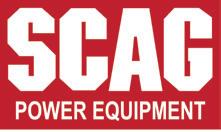


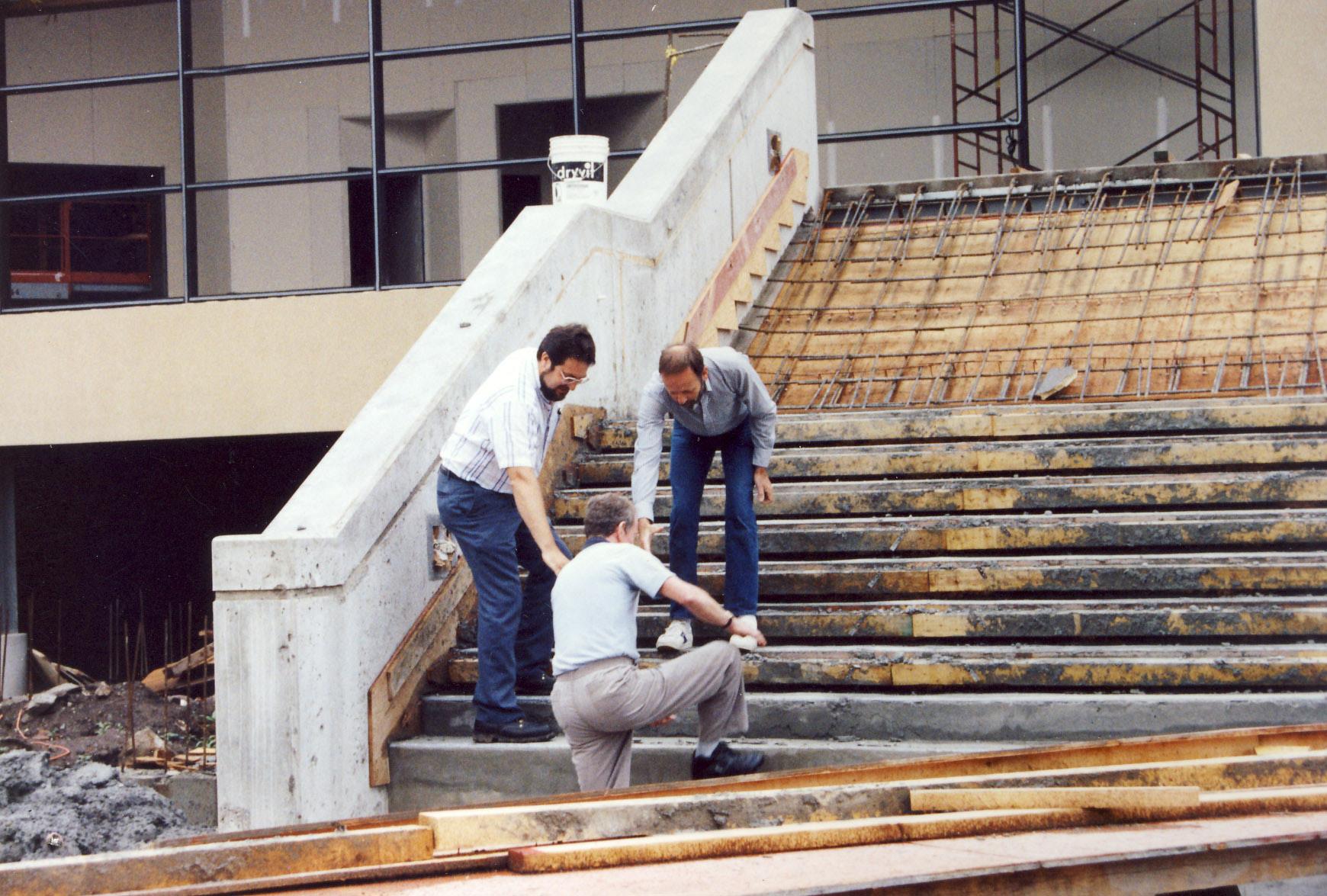
Table of Contents
President’s Message
In Memoriam
Letter from the Editor
2023 Landscape Achievement Award Winners
The Importance of Trade Shows
Landscape New Jersey 2024
Turf Talk
Maintenance Manager Bonus Program
Snow and Ice Creates Slip & Falls...and That Ain’t All
Meet the 2024 Board
We Have a Situation
Landscape AlterNATIVES: Purple Pitcher Plant (Sarracenia purpurea)
Holiday Gala Gallery
The Robots Are Coming...The Future of the Landscape Industry
Preventing FMCSA Violations
Selecting Alternatives to Boxwood
www.NJLCA.org
Tipping the Marketing Scales
Being a Woman in the Green Industry
Welcome Members
Sustainability at Crystal Springs Golf Resort
Tales from the Landscape Side
Know Your Value
What is Longleaf Pine Straw Mulch?
Harvest the Low-Hanging Fruit
While Cleaning Up
NJ Ornamental Horticulture Symposium: Yesterday, Today and Tomorrow
Associate Focus: Plant Detectives
Contractor Focus: American Beauty Landscape Design
What Lies Beneath: The A-901 Process
Advertiser Index

Publisher/Editor:
Contributing
McPeek |
Marsiglia | Colin Milde |
Morreale |
| Vincent Simeone | Bill Strock | Gail Woolcott | Steven Yergeau
NJLCA Combined Board
President | Richard Goldstein, CLT
Vice President | Richard Andreu
Treasurer | Adam Reisboard
Chairman of the Board | Bob Pedatella
Director | Tom Barillo
Director | Taylor Corbett
Director | Kevin Dulio
Director | Justin Flatow
Director | George Futterknecht, CLT
Director | Shawn Kukol
Associate Director | David Gaynor
Associate Director | Rawn Leegwater
Associate Director | Wade Slover
Associate Director | AJ Tudda
Advisor | Dr. Steve Fischer, Bergen Comm. College
Advisor | Dr. James Murphy, Rutgers University
The New Jersey Landscape Contractor magazine is published triennially. 600 print copies are distributed to members and over 4,000 digital issues are sent to professionals in the Green Industry of New Jersey, as well as educational and governmental institutions. Subscription rates: $45.00 per year; $15.00 per copy. New Jersey residents only, please add 7% sales tax.
To advertise in The New Jersey Landscape Contractor, please contact Gail Woolcott at (201) 703-3600 or e-mail gwoolcott@njlca.org.
Article and photo submissions are encouraged and may be sent to NJLCA at the above address. Publisher assumes no responsibility for safekeeping or return of photos or manuscripts, and reserves all rights to edit material submitted for publication.
© 2021 New Jersey Landscape Contractors Association. All rights reserved. The contents of this publication may not be reproduced by any means, in whole or in part, without the prior written consent of the publisher. The opinions expressed in articles do not necessarily represent the opinions of the NJLCA.
Published By The New Jersey Landscape Contractor magazine is the official publication of the New Jersey Landscape Contractors Association, dedicated to the professional landscape industry of New Jersey. NJLCA was founded in 1966 as the Bergen County Landscape Contractors Association, and is today comprised of over 550 member companies throughout New Jersey. New Jersey Landscape Contractors Association 465 Mola Blvd, Ste. 2, Elmwood Park, NJ 07407 Phone | 201-703-3600 -- Fax | 201-703-3776 E-mail | info@njlca.org Visit our website at www.NJLCA.org
Gail E. Woolcott Social Media/Marketing Coordinator: Angela Christou
Assistant: Maria Albuquerque
Administrative
Writers
Carpenter | Steven Cesare, PhD. | William Errickson
Joel Flagler | Charles Gamarekian
Jared
Richard Gaynor
Rich Goldstein
Mark
Anna
Greg
|
|
Gavzy |
|
|
Graser | Shannon Herbst | Roger Locandro |
Nicole
Anthony
Anthony Russo
PUBLISHED February 2024 4 4 5 6 27 30 35 36 41 42 43 45 46 49 52 54 57 57 58 59 61 62 63 64 66 68 69 70 70 3
1990 Trade Show Committee Members Glenn Bergemann, Skip Powers and Joe Schwarz climbing the steps of the then under-construction Meadowlands Expo Center (formerly Meadowlands Convention Center) which has served as the home of Landscape New Jersey since 1990.
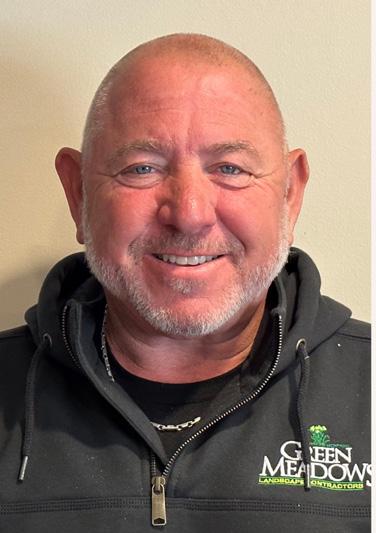
We’re super excited to invite and welcome you to Landscape New Jersey 2024 as part of this vibrant community of innovators and entrepreneurs. Get ready to dive into a world of cool gadgets, gamechanging tech, and inspiring conversations. Whether you’re a seasoned pro or just starting out, there’s something here for everyone to discover and explore.
This year’s lineup is off the charts, featuring a mix of up-and-coming startups and big-name players from across industries. Soak up the energy, chat with industry leaders, and maybe even stumble upon your next big partnership. This is your chance to connect,
President’s Message
collaborate, and take your business to new heights.
So, grab a lanyard and a bag, stroll through the booths, and soak it all in. Whether you’re here for the latest trends or just to hang out with fellow green and outdoor living industry professionals, we’re excited to have you along for the ride at this, our biggest show ever! Let’s make some magic happen together!
Landscape New Jersey has always been the official-unofficial kick off to the spring season. This year, remember, your work is more than just shaping outdoor spaces – it’s about crafting environments that breathe life, beauty, and harmony into the world around us. As stewards of nature’s canvas, you have the remarkable ability to transform ordinary landscapes into
In memoriam...

The NJLCA and landscape community sadly lost a great member, Glenn Jacobsen, President and Founder of Jacobsen Landscape Design & Construction.
Glenn Jacobsen passed away on Jan. 8, 2024, at the age of 65, after a battle with glioblastoma brain cancer. Glenn founded Jacobsen Landscape Design & Construction in 1979.
Like many others in the industry, Jacobsen got his start mowing neighborhood lawns. He built his Midland Park, New Jersey-based
company into a nationally recognized organization before retiring in 2021.
Glenn is remembered for a lifetime of service and leadership - through a devotion to his family, his strong Christian faith, and as an entrepreneur and businessman. He was happiest when surrounded by his family, friends, and dogs, vacationing at Wolf Lake, traveling and adventure seeking, volunteering for causes that mattered to him, and charting open waters on a sailboat.
His passion was for serving others through his church and local ministries. He was an active member of Cornerstone Christian Church and committed his time, expertise, and philanthropy to many faith-based organizations, including Star of Hope Ministries, Servant’s Heart Ministries, Shiloh Bible Camp, 12th Rock Sports, and Clinton Bible Fellowship.
Glenn founded Jacobsen Landscape Design & Construction in 1979 and over forty-two years built the company into a nationally recognized landscape design
breathtaking vistas that inspire awe and wonder. Whether you’re sculpting gardens, designing parks, or taming urban jungles, your passion and expertise are the driving forces behind creating spaces that not only captivate the eye but also touch the soul.
Your dedication to your craft is a testament to the power of creativity and the profound impact it can have on the human experience. As you continue to shape the world one landscape at a time, keep creating and never underestimate the transformative power of a well-designed landscape.
Sincerely,
 Richard Goldstein, President
Richard Goldstein, President
firm until his retirement in 2021. He is regarded as an industry trailblazer who helped lead the professionalization of the landscape field through decades of involvement with national and state associations, including as President of the National Association of Landscape Professionals (formerly PLANET). He was an engaged mentor to many, and he and Melissa provided scholarships to those pursuing a career in landscaping.
Born in Pompton Plains, New Jersey, and raised in Wyckoff, Glenn and Melissa raised their children in Allendale, before relocating to Essex, Connecticut in 2015. The couple loved their community in the coastal town, and Glenn greatly enjoyed his involvement with the Essex Land Trust, the Essex Corinthian Yacht Club, and the Essex Boat Club.
He is survived by his loving wife of 40 years, Melissa (nee Milstein); his beloved children, son Christopher Jacobsen and wife, Katie, and daughter Rachel Lorinser and husband, Peter; and adored grandchildren, Arlo Jacobsen, Christalie February 2024
4
Letter from the Editor
Welcome to the latest issue of The New Jersey Landscape Contractor magazine! It’s a pleasure to bring you another exciting edition, packed with insightful articles, captivating stories, and stunning visuals.
This is most definitely my favorite issue to create each year, as we get to celebrate the amazing projects you create throughout the year!
So, dive into our pages and discover the latest trends in landscape design, sustainability practices, and cutting-edge technologies. From eco-friendly landscaping tips to in-depth profiles of industry pioneers, we cover every aspect of the landscape profession with depth and insight. Our feature articles showcase stunning projects from around the state, offering a glimpse into the creativity and craftsmanship that define the art of landscaping.
In addition, this issue is packed with articles about DOT regula-
tions, valuing your company, turf tips, employee bonus programs, risk management, safety, native plant material and so much more.
Whether you’re seeking practical tips to enhance your skills or simply craving a dose of creativity to fuel your next project, The New Jersey Landscape Contractor Magazine
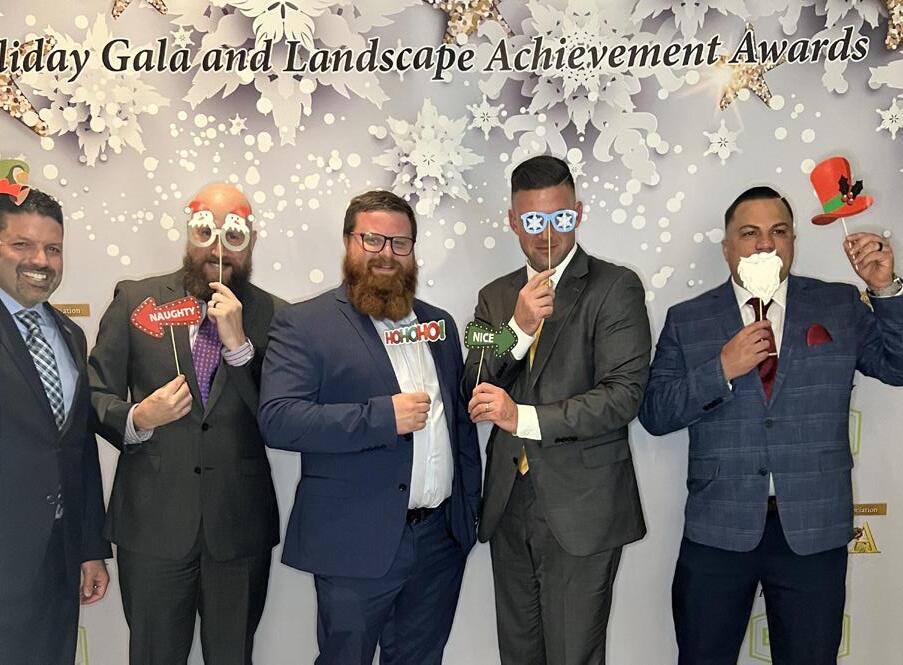
I had to share this great photo from the Holiday Gala of some of our Board! See more on pages 46-47
is your trusted companion on the road to landscaping excellence. So, grab your coffee or beer, dig in, and let’s cultivate a world of beauty, one landscape at a time.
Wishing you an enjoyable and inspiring read!
Sincerely,

 Gail Woolcott, Executive Director Editor of The New Jersey Landscape Contractor
Gail Woolcott, Executive Director Editor of The New Jersey Landscape Contractor
Lorinser, and several foster grandchildren; his parents, Howard and Alberta Jacobsen; brothers Jim (Lori) and Michael (Debbi); motherin-law, Rose Milstein; and his nephews, niece, and many other family and friends who loved him and whose lives he enriched.
A celebration of life service was held at Cornerstone Christian Church in Wyckoff, NJ on Saturday, January 20 at 10:00 a.m. In remembrance of Glenn’s life, the family asks that any charitable donations be made to Servant’s Hearts Ministry (495 Wyckoff Avenue, Wyckoff, NJ 07481) or the Essex Land Trust (PO Box 373, Essex, CT 06426).
Did you know?
NJLCA is Celebrating 12 Years with AMT and Announces its Latest Dividend for Members
As a result of the success of our program, we are pleased to inform you that NJLCA and AMT have issued a .75% dividend to groups in good standing as of December 31, 2023, that have offered AMT coverage to their employees. Companies must be current as of the time the dividend is issued. The dividend is included in the February Invoice.
This dividend is a testament to what we can achieve together and a sign of appreciation for your continued support and partnership. We value each member’s commitment to excellence, and we are grateful for the trust you place in Participating Association and AMT.
As a reminder, here is why AMT is different:
• Operated by Members for Members: AMT is governed by representatives from its 17 Member Associations, including NJLCA. This means members have a voice in the operation of our program.
• Superior Customer Service: AMT offers personalized service to help employers select the right health coverage at the right price for their business. Unlike traditional insurers, you get to speak to real customer service representatives. No more navigating endless phone trees. Each member of a business is assigned a dedicated claims team to help resolve issues when they arise.
• More Health Plan Options: AMT offers more health plan options than traditional insurers so employers can tailor plans to deliver the right coverage at the right price for their employees. Our self-funded health plans utilize the Blue Cross Blue Shield network, the nation’s, largest provider networks. Additionally, our partnerships with Delta Dental and Unicare Life and Health Insurance Company ensure that members have access to a robust portfolio of health care and life insurance options.
• Free Health Plan Check-up: Our Health Plan Checkup is a quick and easy tool designed specifically for small business owners like you. It will help you assess your current health plan’s effectiveness and identify opportunities for improvement so that you get the right health plan offerings for your company and employees.
To learn more about the benefits and advantages of AMT coverage, call 973-379-1090 or explore further details online at www.amt-nj.com.
www.NJLCA.org
5

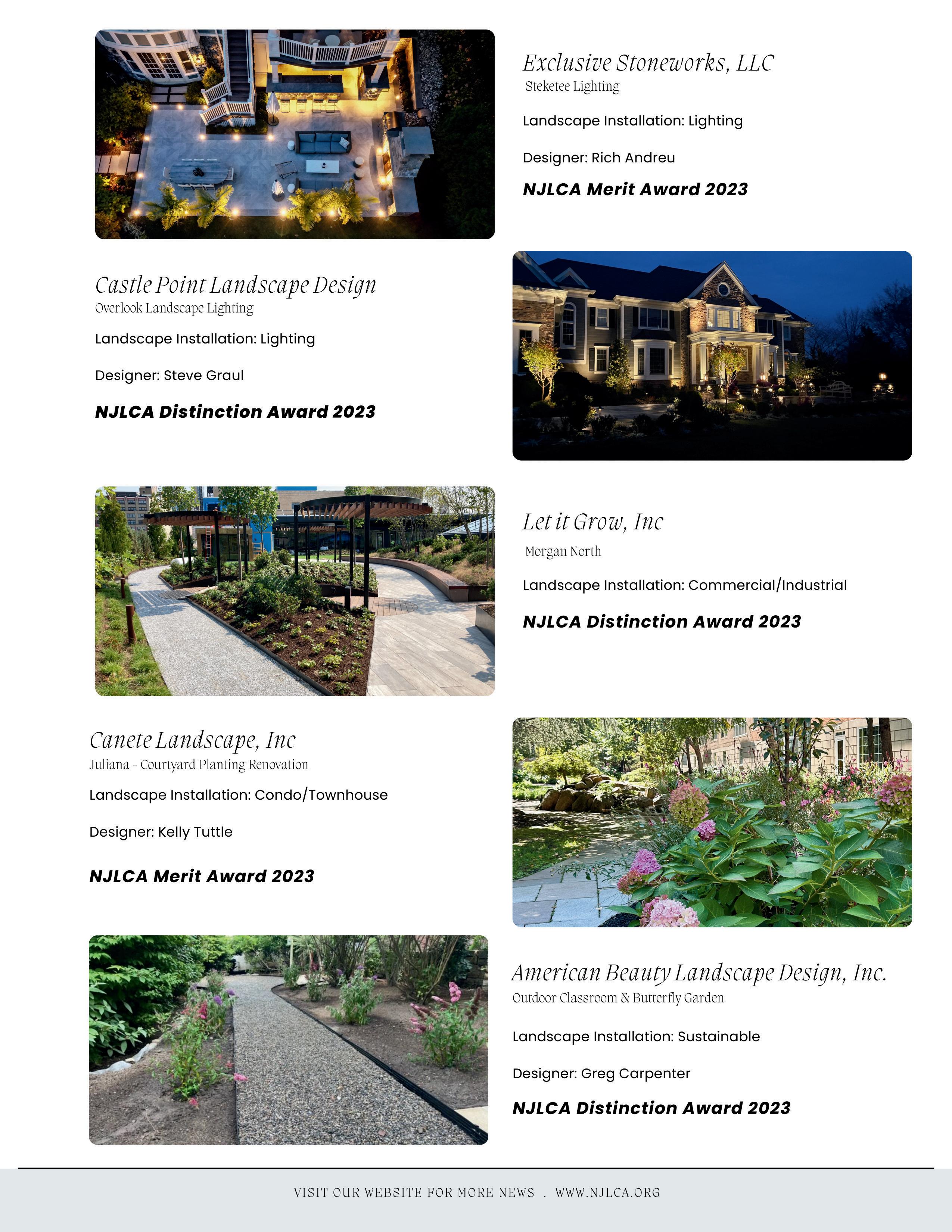









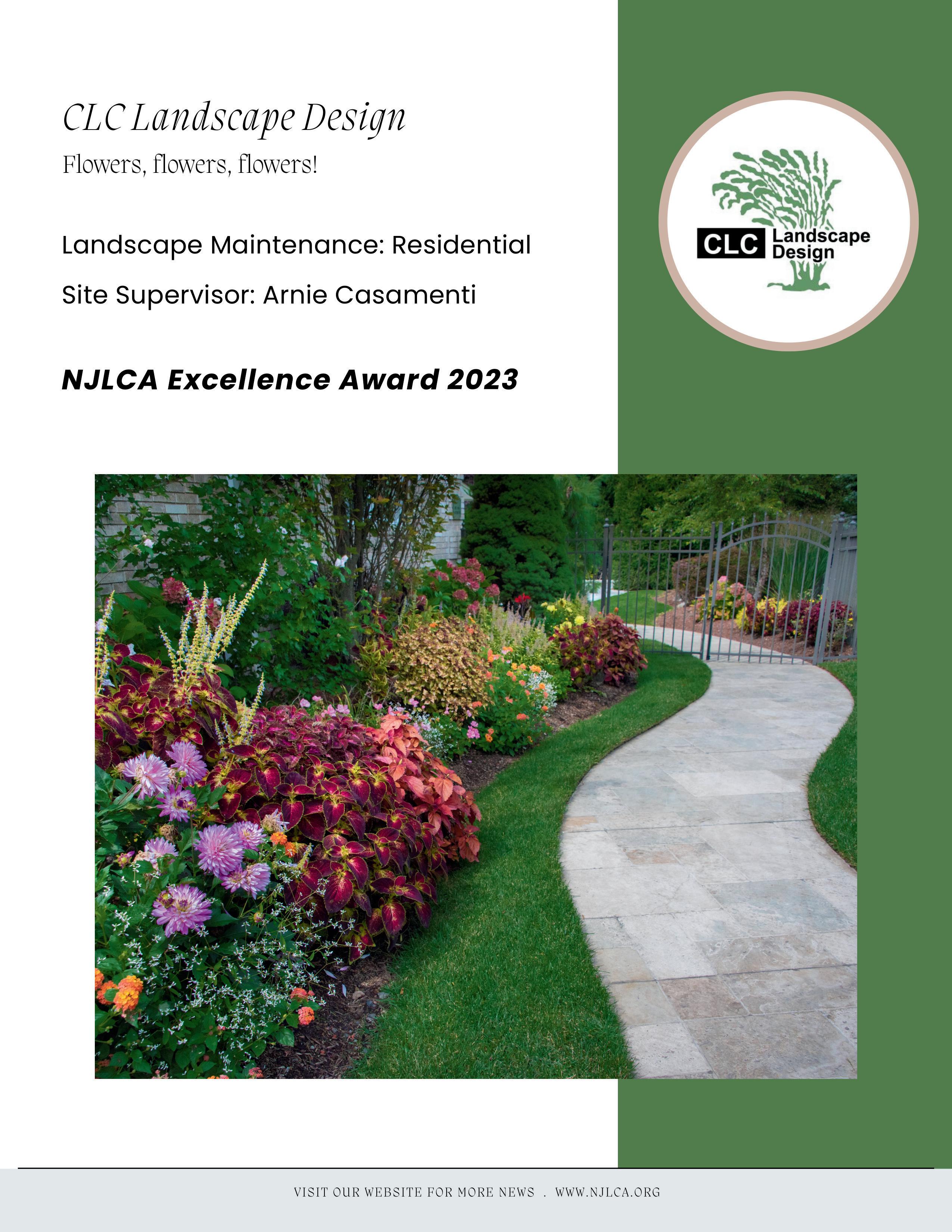
STAYING HOME NEVER LOOKED SO GOOD SIGMA 8 PLUS SMOOTH WALL & PLATINUM WALLSTONE & COLOR FOR 2024! New! www.CambridgePavers.com | | Made in AMERICA




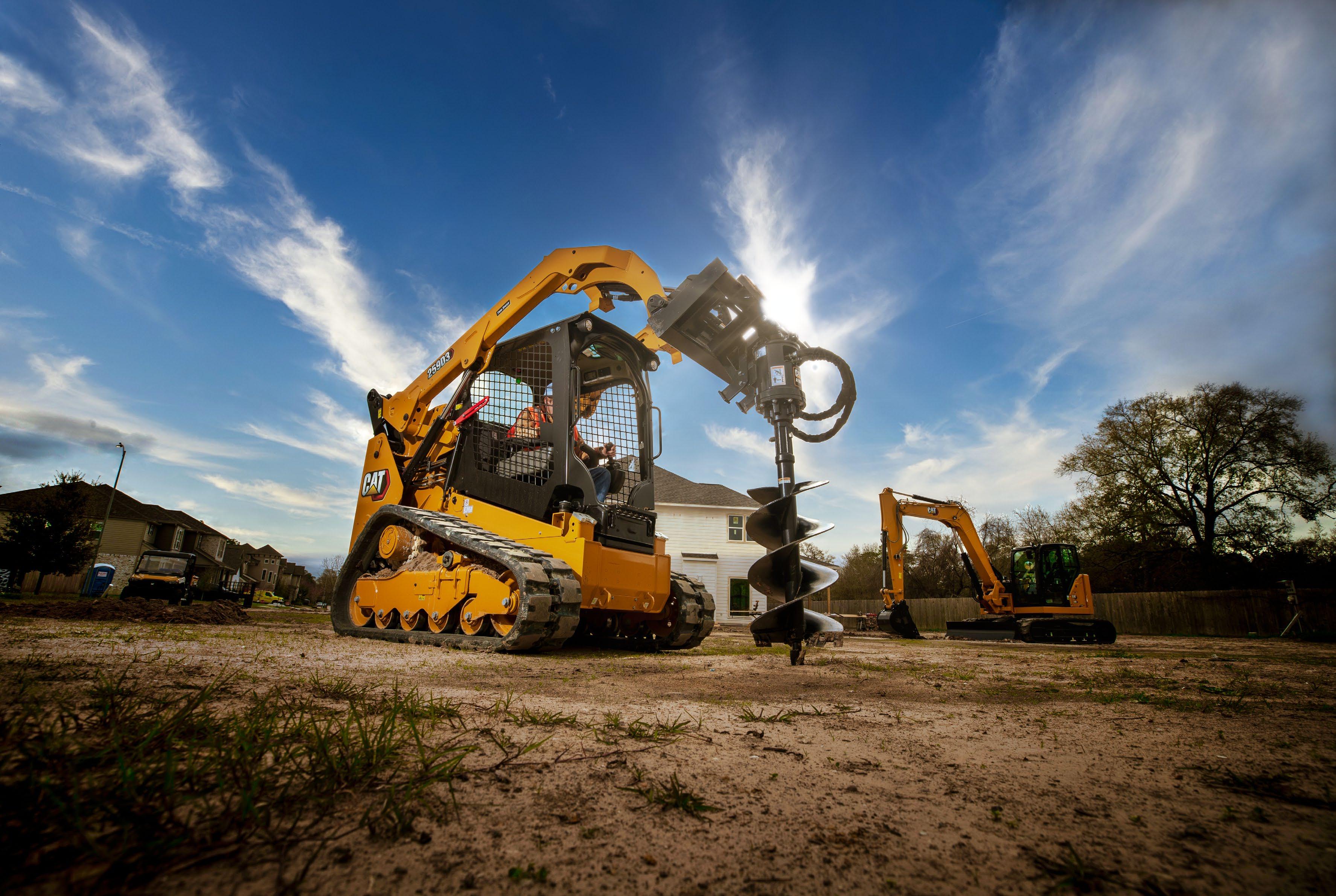
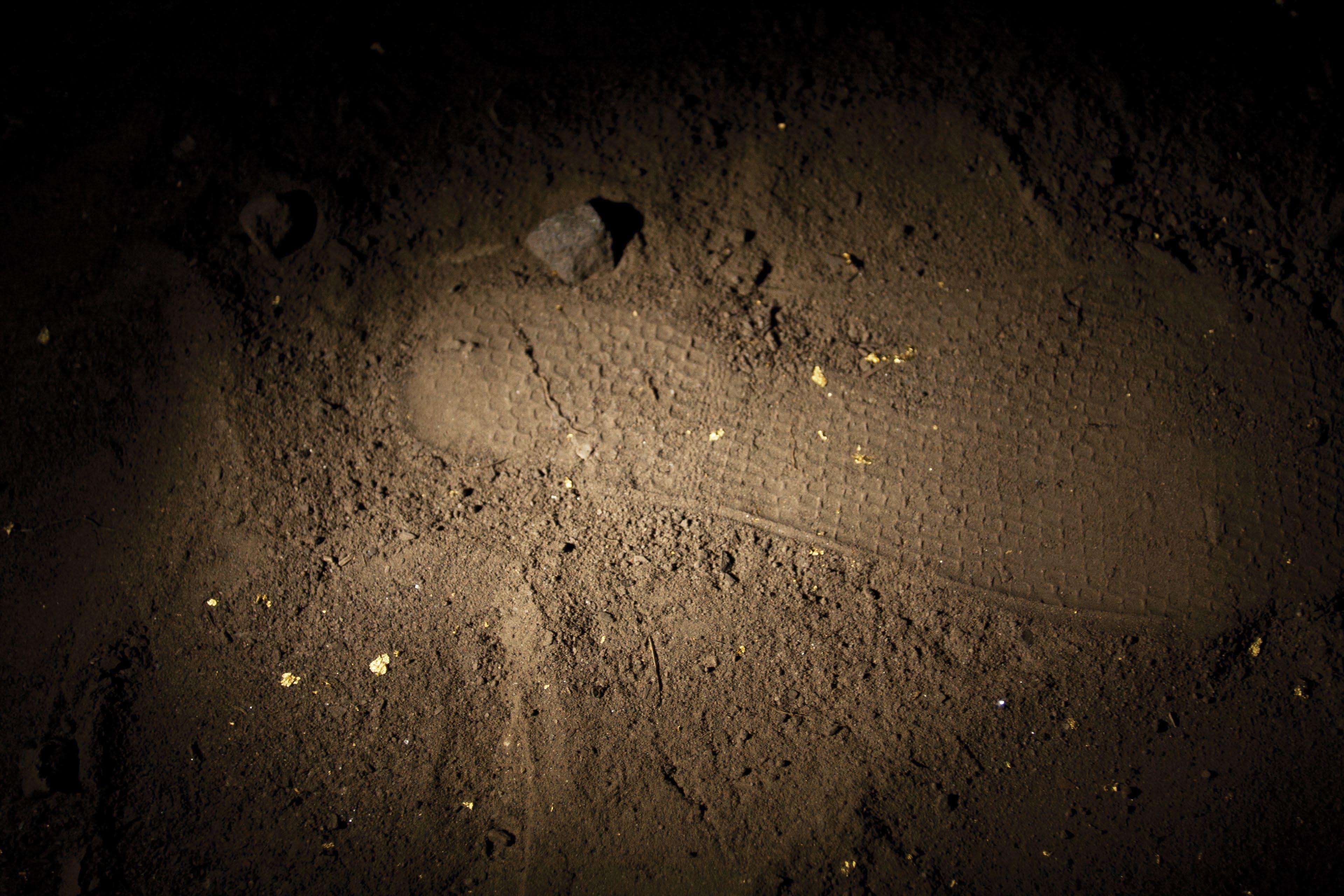
WWW.FOLEYINC.COM WE CREATE CUSTOMER EXPERIENCES THAT CREATE CUSTOMERS FOR LIFE. Serving all of New Jersey, Staten Island, New York, Eastern Pennsylvania, and New Castle County, Delaware Whether you are looking to buy new or used, rent equipment, or have your existing fleet serviced, Foley, Incorporated has what you are looking for. In addition to Cat equipment, we offer all types of allied products, such as air compressors, light towers, trenchers, wood chippers, heaters, small compaction equipment and more. BUY HERE. RENT HERE. SERVICE HERE.




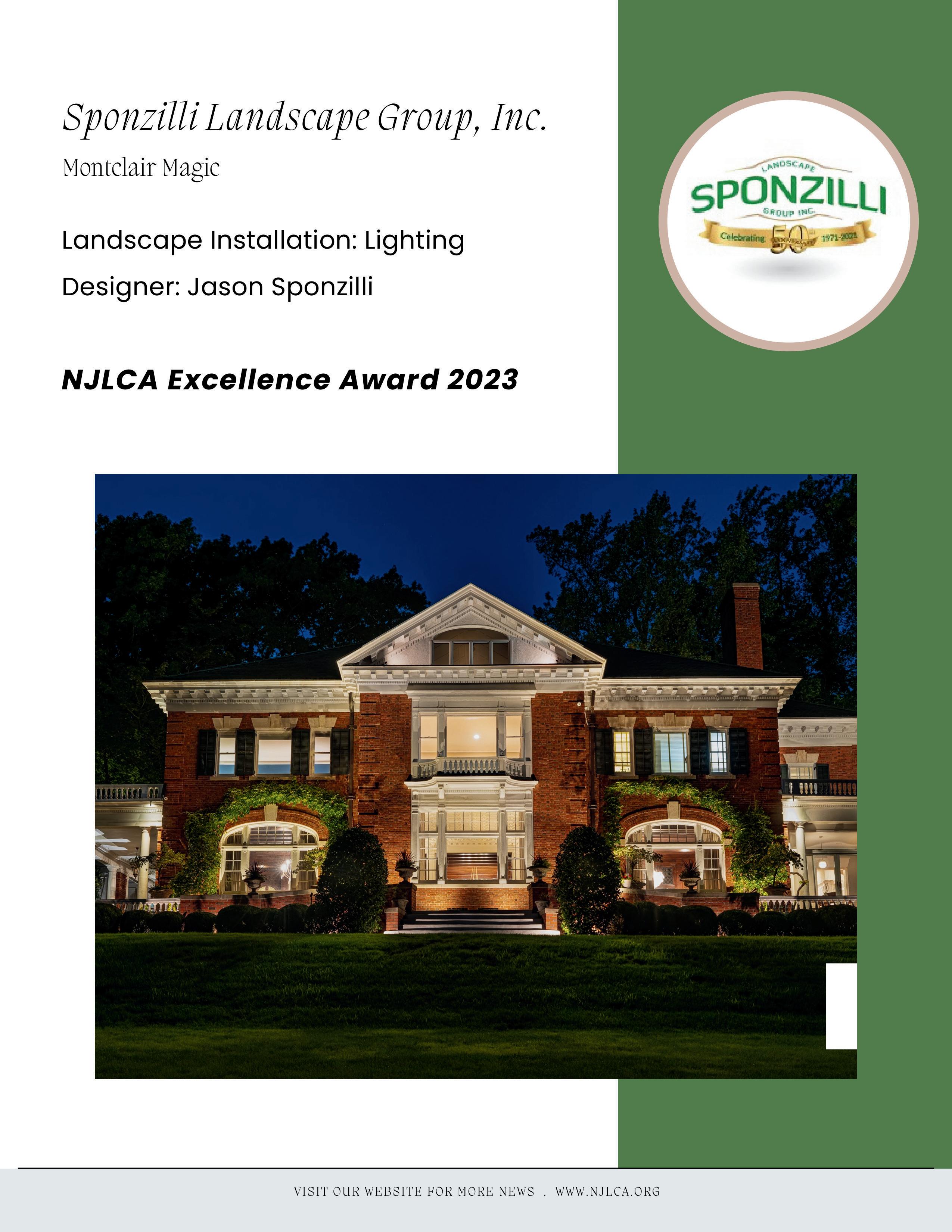
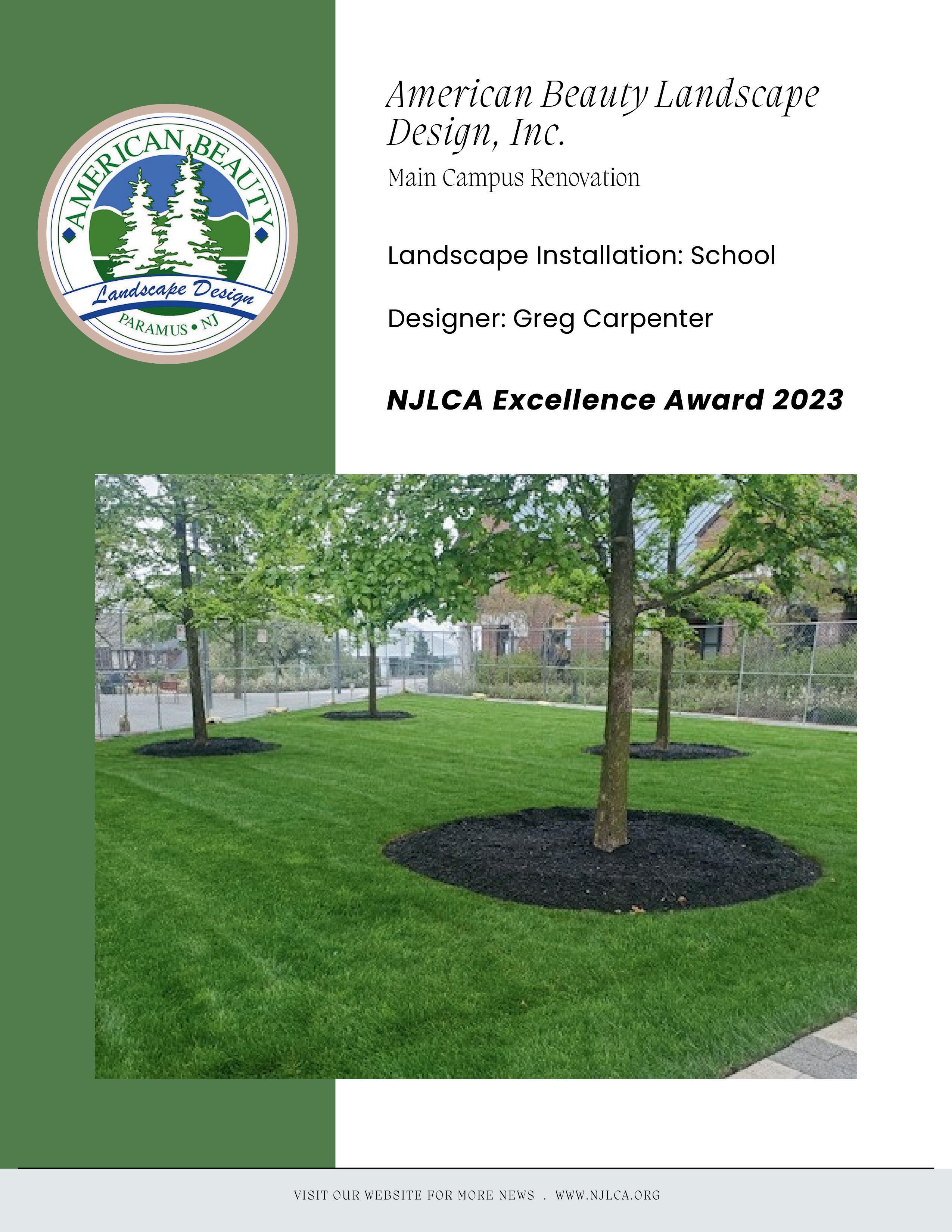


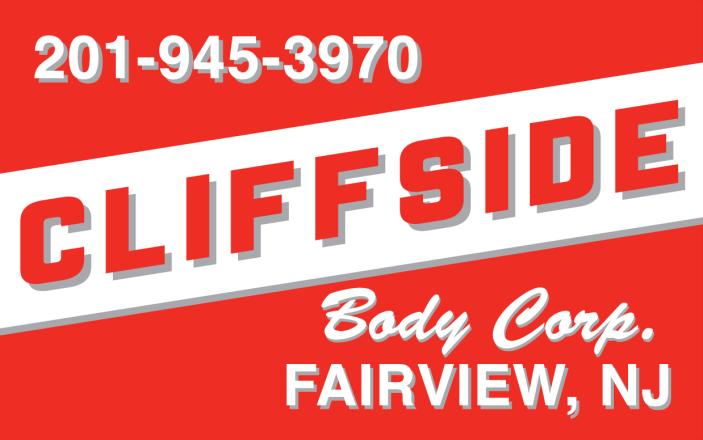
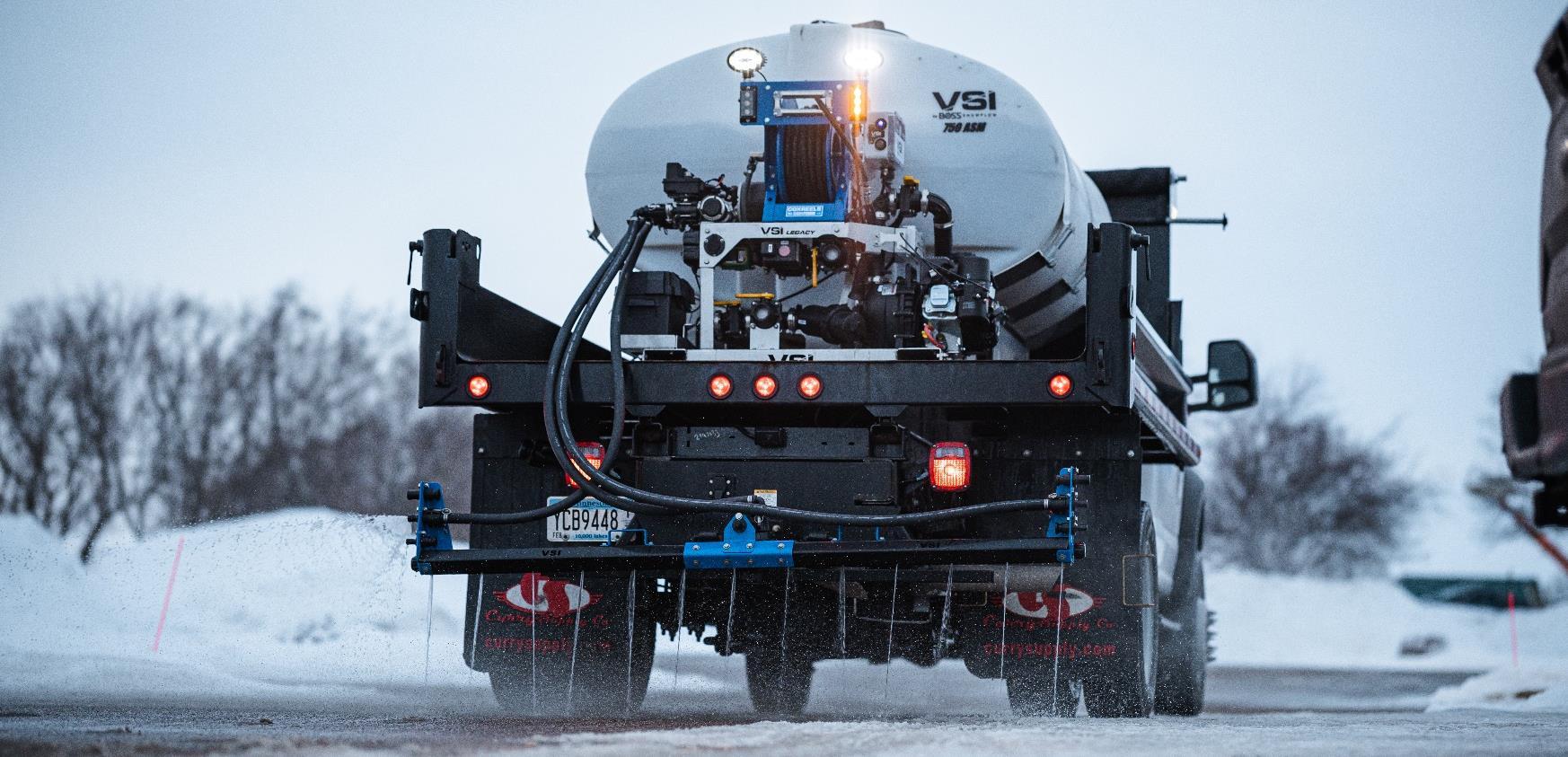

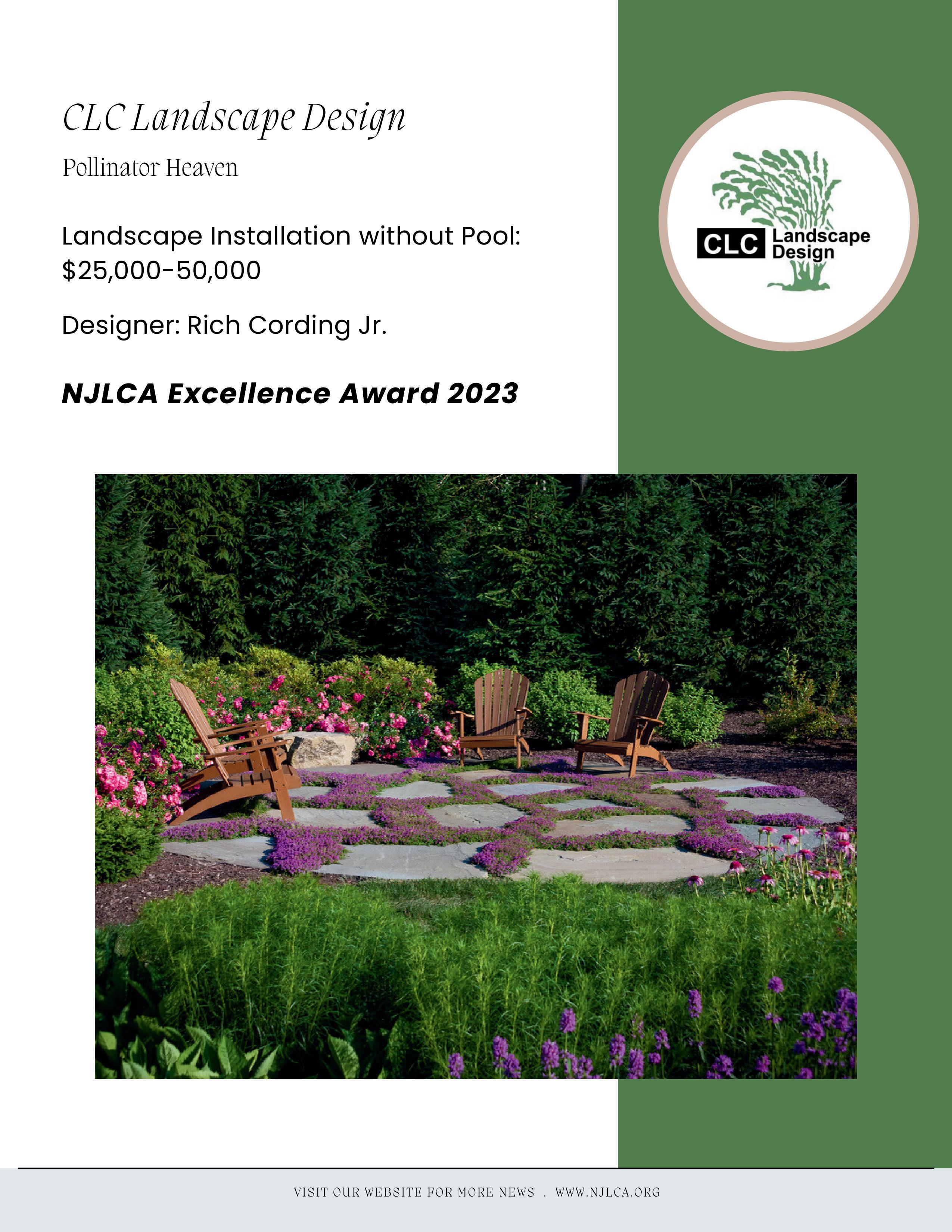
Landscape Bodies Dump Bodies Utility Bodies Crane Bodies Chipper Bodies Stake Bodies Snowplows Salt Spreaders Brine Systems Hooklifts Liftgates Service Cranes 201-945-3970 cliffsidebody.com 130 Broad Ave. Fairview, NJ 07022

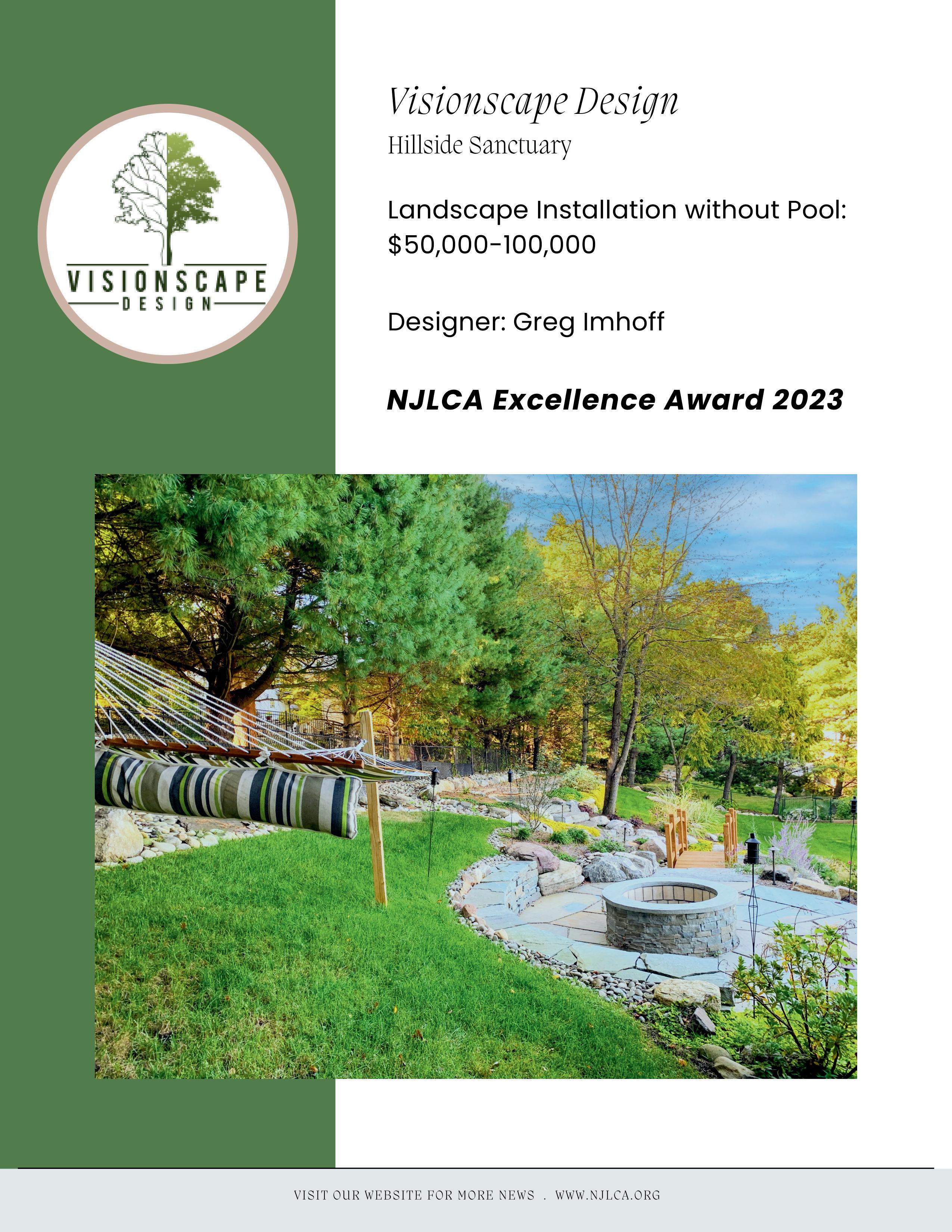










www.braensupply.com DISCOVER YOUR DREAM OUTDOOR LIVING SPACE AT ONE OF OUR THREE CONVENIENT LOCATIONS WANAQUE Wholesale & Retail Location 1434 Ringwood Avenue Wanaque, NJ 07420 HALEDON Wholesale Location 400-402 Central Avenue Haledon, NJ 07508 RANDOLPH Wholesale & Retail Location 228 NJ-10 Randolph, NJ 07869 Our mobile showroom is hitting the road this spring! Our landscape design experts can help you select material for your luxury outdoor living space right in your driveway. Bring New Jersey’s most extensive outdoor living mobile showroom to you by easily requesting an appointment online!



















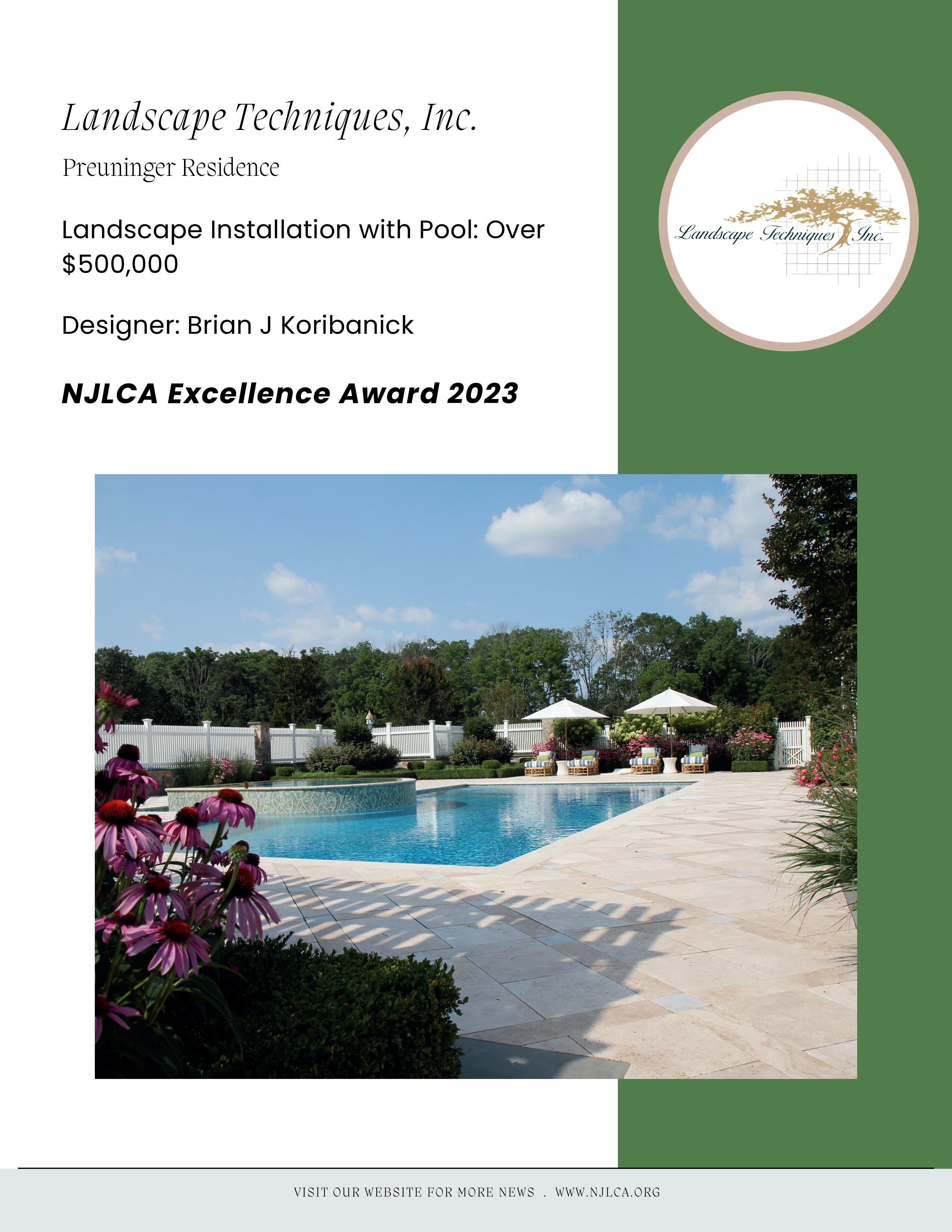

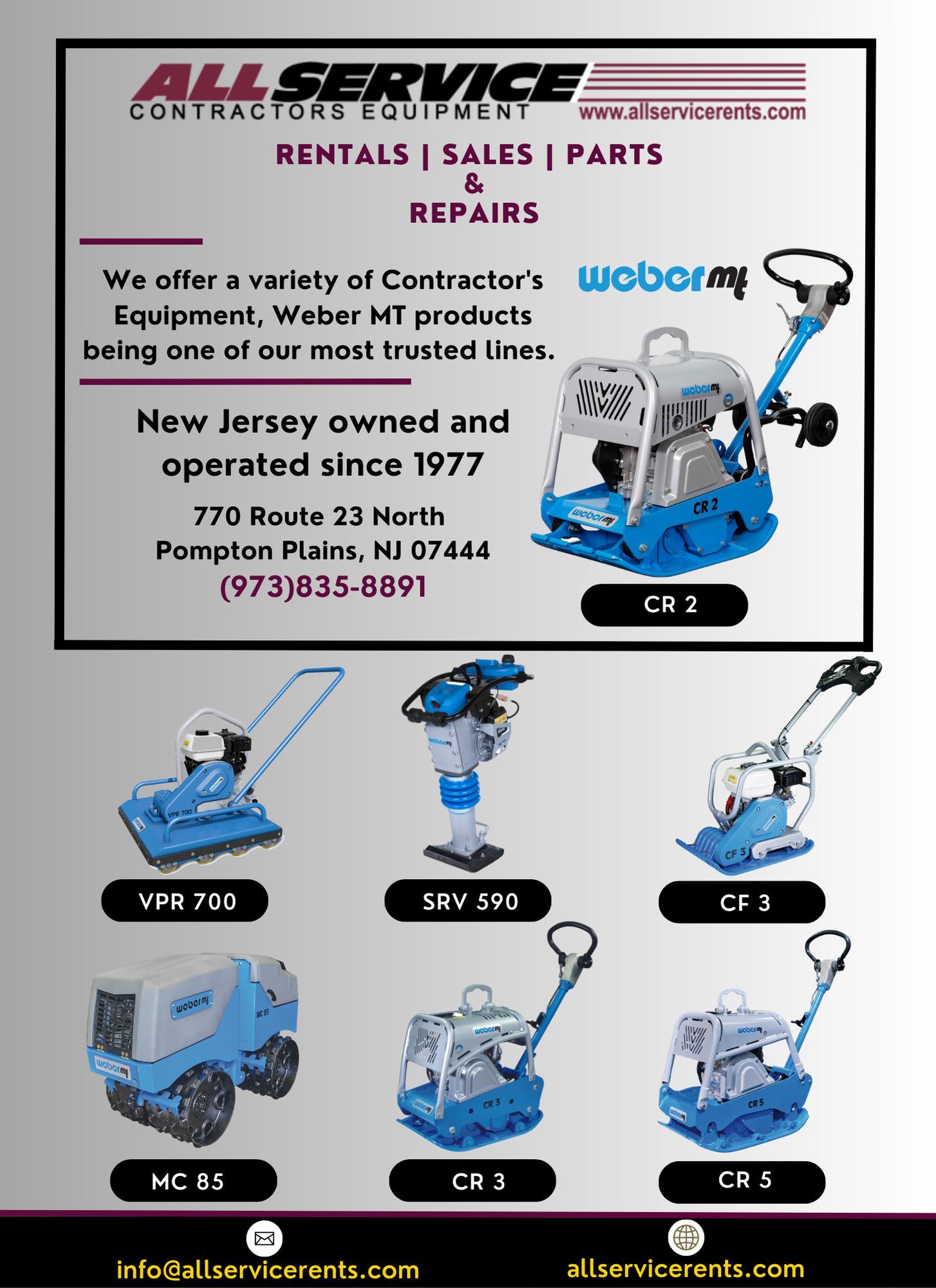
THE IMPORTANCE OF TRADE SHOWS
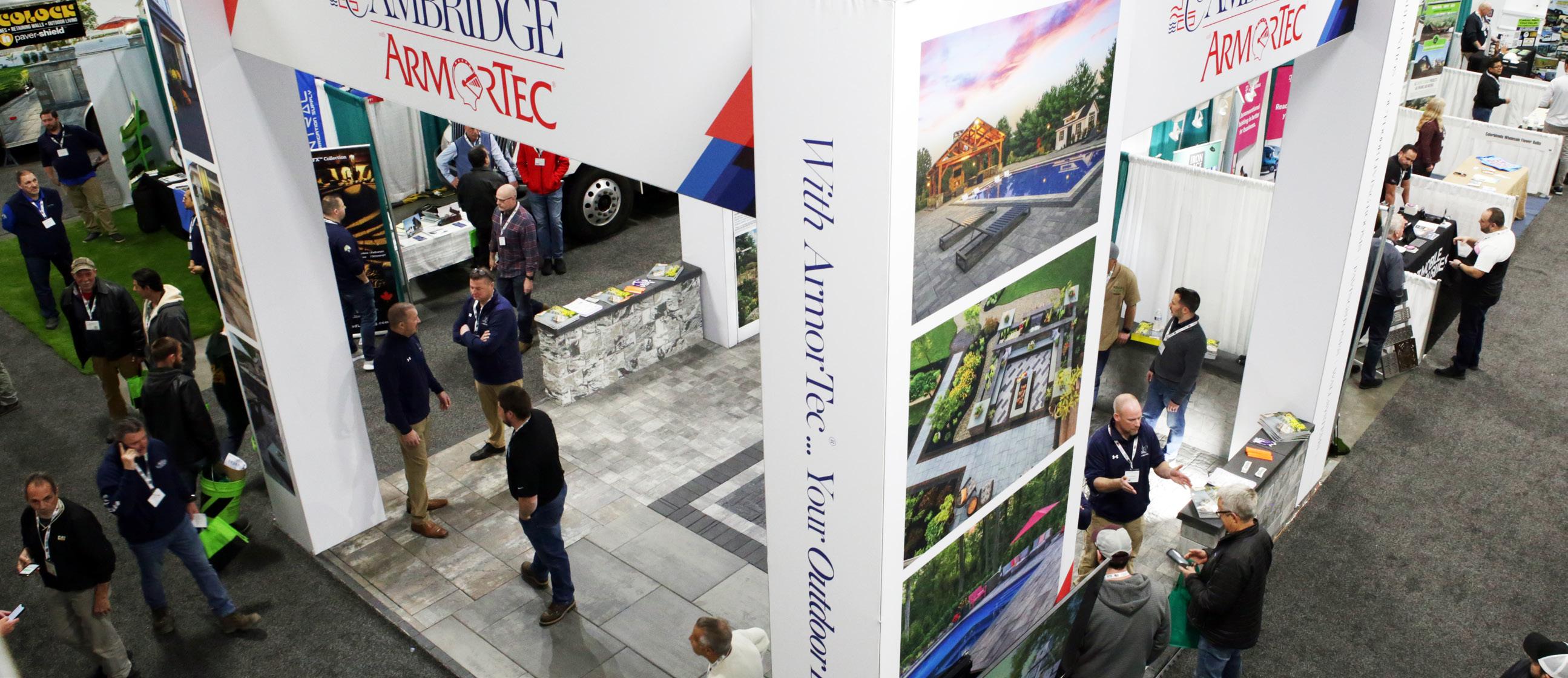
As the CEO of Cambridge Pavers Inc. for three decades now, I cannot help but think back to the days it all began for me regarding the paving stone business in the eighties. Participating in trade shows allowed me to get out in front of people to educate them about how and why this type of pavement was a better choice over asphalt. Attending these shows also helped me meet people in similar industries, some of whom I still speak with to this very day. As a business owner, I cannot stress how important it is for professionals in the field to partake in these events.
As an owner, I take this opportunity to be present in the booth and meet with current and potential customers. Trade shows are the perfect environment to introduce new products and colors in person and get real-time feedback from those we ultimately want to recommend these products while out in the field. Also, there is no better way to assess what type of year sales-wise we might have than talking to professionals about their schedules and how far out they have jobs on the calendar.
Our outside sales team always walks away from these events with renewed ambition and excitement regarding the industry and its seemingly endless growth. Walking around these shows and seeing innovations and advancements is something we all benefit from in one way or another. A renewed energy comes from having like-minded people talking about what they are passionate about.
by Charles H. Gamarekian, Cambridge Pavers
That result in itself makes attending these shows worth it every time.
Trade shows offer contractors invaluable networking opportunities, staying abreast of industry trends and showcasing their products and services. Attending these events provides a unique platform for professionals to connect with potential clients, suppliers, and industry experts. Moreover, trade shows facilitate knowledge exchange, fostering a culture of continuous learning and innovation within the construction sector.
One compelling reason for contractors to attend trade shows is the unparalleled networking prospects they offer. These events bring together various stakeholders, from fellow contractors to suppliers, architects, and potential clients. Face-to-face interactions establish and strengthen professional relationships, often leading to lucrative collaborations. Networking lets contractors gain insights into industry best practices, emerging technologies, and potential business opportunities.
Staying current with industry trends is another key advantage of attending trade shows. With the construction
sector evolving rapidly, staying informed about the latest technologies, materials, and methods is crucial for remaining competitive. Trade shows serve as a hub for innovation, showcasing cutting-edge products and services that can enhance efficiency, sustainability, and overall project quality. By staying informed, contractors can adapt their practices to meet evolving industry standards and client expectations.
Trade shows also provide contractors with a platform to showcase their products and services. An effectively designed booth can attract attention and generate leads, potentially translating into new business opportunities. The exposure gained at these events can contribute significantly to a contractor’s brand visibility and reputation within the industry. A well-executed presence at trade shows can set contractors apart from competitors and position them as industry leaders.
Education is crucial to professional development, and trade shows offer many learning opportunities. Many events feature seminars, workshops, and presentations by experts in the field.
“One compelling reason for contractors to attend trade shows is the unparalleled networking prospects they offer.”
27
www.NJLCA.org
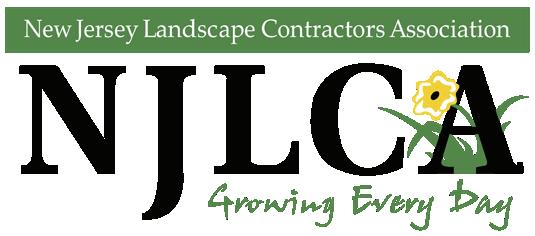

It is time to review the health plan coverage choices for you and your employees.
When member businesses of the NJLCA join AMT, they get superior value and service from a self-funded, not-for-profit trust that serves the needs of thousands of participating employer members. Contact AMT today to "Request A Quote"
28 Fall 2023
4 Health Plan Enrollment
2 0 2
w w w.am
nj.com ,
(973)
-10 9 0.
by visiting
t-
or call us at
379

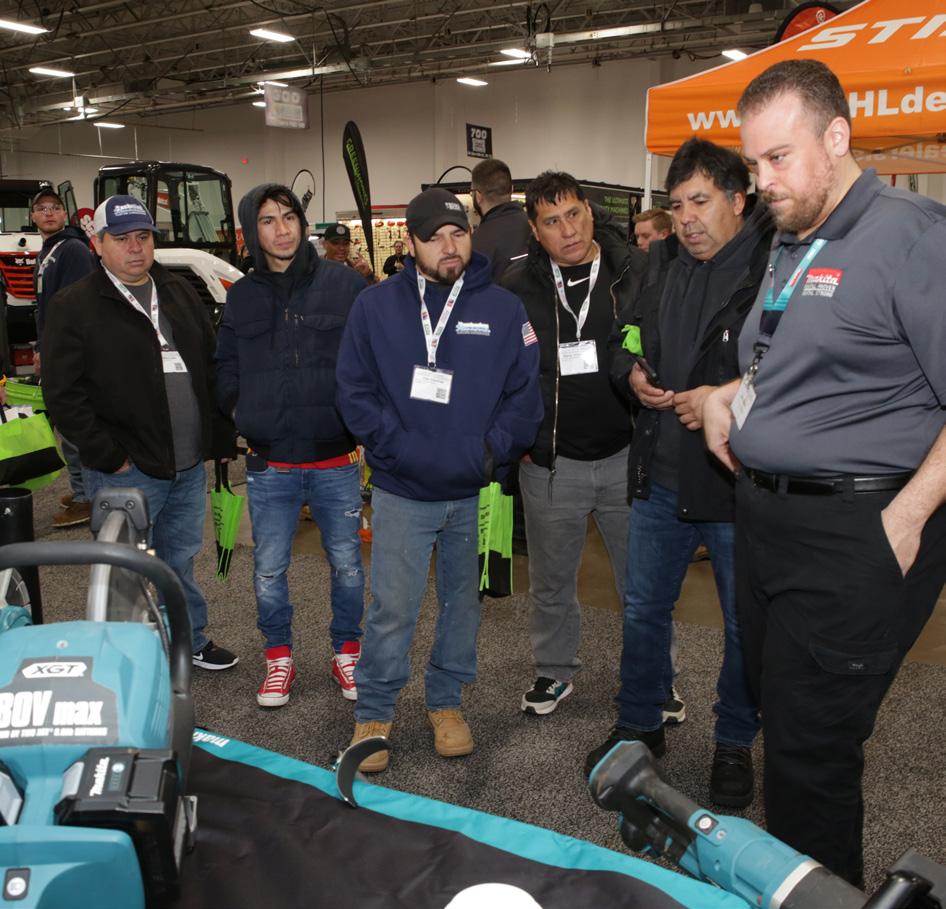
Attending these sessions gives contractors insights into the latest construction techniques, regulatory changes, and market trends. This knowledge is invaluable for staying compliant, enhancing project management skills, and adapting to shifts in the industry landscape.
Beyond the educational aspect, trade shows foster community within the construction industry. Contractors can discuss with peers facing similar challenges, share experiences, and
learn from each other’s successes and failures. This sense of camaraderie can be particularly beneficial for smaller contractors seeking guidance and mentorship from more established industry players.
In addition to the tangible benefits, attending trade shows demonstrates a commitment to professionalism and continuous improvement. Clients and partners may view a contractor’s active participation in industry events as a positive indicator of their dedication to staying informed and delivering high-quality work. Attending these events can enhance a contractor’s credibility and build trust with existing and potential clients.
There will always be reasons or excuses not to attend trade shows, but one is only truly doing themselves a disservice by not. No matter your profession, continue to learn and educate yourself throughout your career. Step outside your day-to-day and seize the opportunity to see what is new or improved. One never knows what they will gain from walking around these
spaces for just a few hours.
In conclusion, the decision for contractors to attend trade shows is strategic and has multifaceted benefits. From networking and staying updated on industry trends to showcasing products and engaging in educational opportunities, trade shows offer a comprehensive platform for professional growth. By participating in these events, contractors position themselves at the forefront of their industry, fostering success and sustainability in an everevolving construction landscape.
Charles H. Gamarekian is the Chairman/CEO of Cambridge Pavers Inc. He is one of the founders and a current board member of the Concrete Masonry & Hardscapes Association (CMHA), formerly (ICPI), the North American trade association representing the interlocking concrete paver industry. Peer associations worldwide consider it the leader in developing and disseminating technical information for design professionals and contractors. Mr. Gamarekian is recognized worldwide as an expert in his field and is a frequent speaker on properly installing paving stones, wall stones, and many outdoor living products.
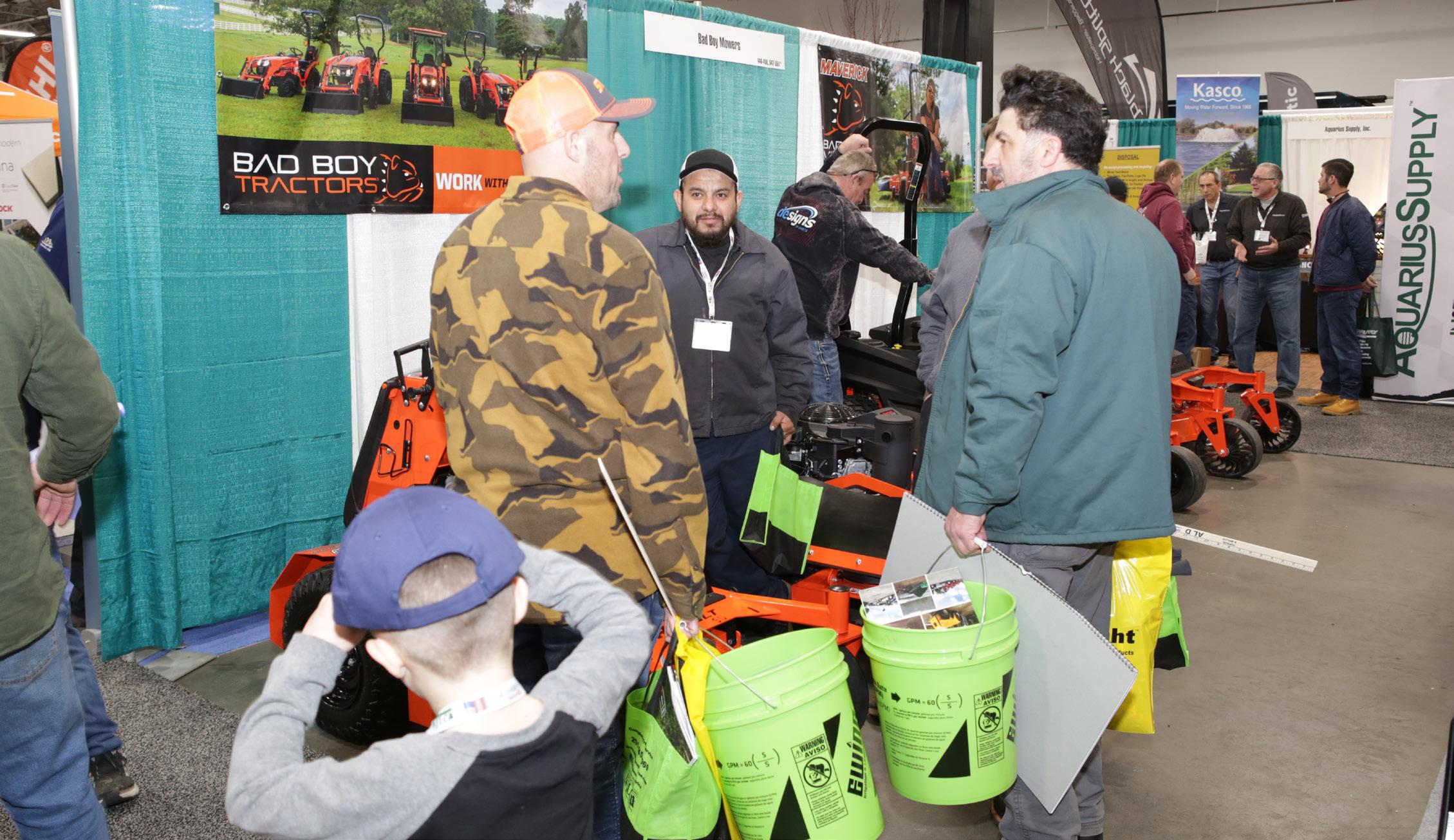
29 www.NJLCA.org


9:00 AM1:00 PM
8:30 AM9:30 AM
February 27th
Meadowlands 1
Meadowlands 2
Profact Training and Exam - Spanish Profact Training and Exam - English
HarmonyMeadowlands 1
Uncovering the Mystery of Business Valuation
February 28th
HarmonyMeadowlands 2 Expo - Upstairs Expo - Room E
Building a Turf and Ornamental Care Program using the “Three E’s”
9:45 AM10:45 AM
Are You Ready to Exit Your Business
11:00 AM12:00 PM
12:15 PM1:15 PM
Incorporating Sedges and Grasses Into Your Existing Landscapes
HIC - Protect Yourself from the Start
Increasing Profits with an Easy Upsell - All-Natural Tick & Mosquito Control
Plants We Love to Hate Building a Company You Can Sell (Spanish)
1:30 PM2:30 PM
Introduction to Landscape Lighting
NJ State Police Commercial Vehicle Regulations
Building a Company You Can Sell
Drainage Solutions for Turf
How Chemicals Work and Which to Use Tree and Shrub Pruning
Turfgrass Summer Stress Management Plant Selection
Common insects in Turf and Ornamental an IPM approach (Spanish)
Introduction to Landscape Lighting (Spanish)
Landscape Equipment Maintenance & Safety (Spanish)
Classes in Meadowlands 1, Meadowlands 2 and will be held at Harmony Suites across the street from the Expo Center. Classes in the Expo-Upstairs and Expo-Room E will be held in the Meadowlands Expo Center.
www.NJLCA.org
31
Landscape New Jersey 2024
Building a Turf and Ornamental Care Program using the “Three E’s”
Michael Reed, Synatek
This seminar will focus on the tools we should be using when choosing a pesticide. The University of Wisconsin Pesticide Efficacy Calculator is intended to provide research-based product efficacy ratings for the professional turfgrass manager. Each Product or Active Ingredient receives a point rating for controlling specific fungi and weeds.
Credits: LTE/LTCO: 1, NY Pesticide: 25=1, 3a=1, 3b=1, NJ Pesticide: 3A=2, 38=2, 68=2, 8C=2, PP2=2, CPWM Technical=1, LICT: 1
Uncovering the Mystery of Business Valuation
Phil Harwood, Tamarisk Business Advisors
Many business owners think they know what their business is worth but are surprised to learn what the market says their business is really worth. Understanding the complex world of business valuation may be intimidating and frustrating. In this session, we will discuss valuation methods and pull back the curtain to allow you to understand how to value your business and improve your valuation.
Credits: LICT: 1
Plants that We Love to Hate ... and Their Desirable Alter Egos
Vincent Simeone, Planting Fields Arboretum State Historic Park
There are so many ornamental landscape plants that have been overused, misused, contracted unmanageable disease and insect issues or that have developed into invasive nightmares over the years. Plants like Barberry, Euonymus, Norway Maple, Callery Pear, American Arborvitae, Leyland Cypress and “Schip” Laurel lead a cast of characters that have developed into problem plants. Others like boxwood, taxus and Colorado spruce, while still desirable, are often being replaced with more appropriate substitutes. This lecture will provide an in-depth look at some of the trees, shrubs, vines, and groundcovers that have wreaked havoc or caused unavoidable stress to our cultivated landscapes and will provide kinder and gentler alternatives to each. Special emphasis will be given to native and non-invasive exotic plants that provide exceptional ornamental value, superior landscape function, adaptability, deer resistance and benefits to wildlife.
Credits: CPWM Technical=1, LTE/LTCO=1, LICT=1
Construyendo Una Empresa Que Puedas Vender
Michael Tous, retired Owner of Grass Masters, Inc.
Michael Tous paso 30 arias construyendo su negocio y pudo venderlo y retirarse en los ultimas arias. Una preparacion minuciosa lo coloca en una posicion solida para vender su negocio porque la mayorfa de sus competidores han hecho poco para preparar sus empresas para la venta. El hablara de como pudo iniciar y construir un negocio tan exitoso y de lo que se necesito para venderlo y retirarse.
Credits: LICT: 1
Increasing Profits with an Easy Upsell - AllNatural Tick & Mosquito Control
Bryan Swinney, BRS Backyard Bug Busters
This session will talk about adding all-natural tick and mosquito control as an add-on service. Bryan will discuss the following topics: Customers’ use of their outdoor space, Insect-borne illnesses, environmental awareness and States banning pesticides, steps to add the service to a business, application methods, introducing to the client, product choice and the revenue model.
Credits: NY Pesticide: 3a=.75, 8=.75, NJ Pesticide: 38=1, 8C=2, 8A=1, 8C=1, CPWM Technical=1, LICT: 1
Are You Ready to Exit Your Business
Phil Harwood, Tamarisk Business Advisors
Business owners inevitably avoid thinking about their eventual departure from their businesses. However, this brings great risk to their businesses, families, and estates. Owners who take proactive steps are better able to protect their legacies. In this session, we will discuss some ways to begin the process of preparing now with some simple steps.
Credits: LICT: 1
Building a Company You Can Sell
Michael Tous, retired Owner of Grass Masters, Inc.
Michael Tous spent 30 years building his business and was able to sell it and retire in recent years. Thorough preparation puts you in a strong position to sell your business because most of your competitors have done little to prepare their companies for sale. He will discuss how he was able to start and build such a successful hardscape business, and what it took to sell it and retire.
Credits: LICT: 1
lnsectos comunes en el cesped, arboles y arbustos: un enfoque de IPM
Erika Cherry, Pesticide Educator
Que es IPM? Manejo lntegrado de Plagas, como los insectos danan las plantas? Cicio de vida: Cuatro eta pas, Tres eta pas, -ldentificacion de insectos, lnsectos beneficiosos, Plaga de lnsectos comunes en NJ, Monitoreo, Establecer umbrales de accion, Estrategias de Prevencion, Metodos de control: Culturales, Biologicos, Mecanicos, Qufmicos, Seleccion del insecticida adecuado, Como se propagan los insectos? Resistencia a los insecticidas.
Credits: LTE/LTCO: 1, NJ Pesticide: 3A=2, 3B=2, 8C=2, PP2=2, CPWM Technical=1, LICT: 1
Drainage Solutions for Turf
John Raffiani, Raffiani’s Automatic Sprinkler Service
Who gets the blame when mowers chew up turf? The maintenance contractor does. This course will demonstrate three proven methods to permanently correct subsurface water that leads to damaged turf. Attendees will learn about Soil properties, textures, and water movement, the ability to
32 February 2024
Session Details and Credits
determine a site-specific corrective action, and the opening of another revenue stream.
CPWM Technical=1, LICT=1
Incorporating Sedges and Grasses Into Your Existing Landscapes
Wendy Brister, Cavano’s Perennials
Grasses and sedges provide valuable form, texture, and habitat in the designed landscapes. We will look at some common favorites, highlight some underused varieties, and talk about which ones to use with caution. Design considerations, growth habits, and cultural requirements will be covered.
Credits: CPWM Technical=1, LICT=1
NJ State Police Commercial Vehicle Regulations
Sgt. Terrance Hendricks, NJ State Police
Representatives of the New Jersey State Police Commercial Vehicle Division will discuss updated New Jersey statutes relating to the operation of commercial motor vehicles as they apply to the landscaping industry and answer your questions on traffic safety and commercial vehicle regulations.
Credits: LICT: 1
lntroduccion a la lluminacion de Paisajes
Alex Perez, Hunter/FX
Unase a nosotros para una introduccion basica a la iluminacion de jardines y los productos de iluminacion disponibles para todas sus necesidades de instalacion. Aprenda sobre los diferentes tipos de tecnicas de iluminacion. Tambien aprenda que herramientas en lfnea estan disponibles y como se pueden usar para su beneficio.
Credits: LICT: 1
Tree and Shrub Pruning
Kevin Tode, Downes Tree Service
Learn the essentials of tree and shrub pruning. Discussion will include where and how to prune, when to prune, the right equipment for the right application and keeping safe while doing so.
Credits: LICT: 1, LTE/LTCO: Pending
HIC - Protect Yourself from the Start
John Raffiani, Raffiani’s Automatic Sprinkler Service
This session will highlight the requirements under NJ Consumer Law that all contractors must comply with when dealing with residential home improvements. Contract formats and insurance will be discussed, along with clauses to protect your interests.
Credits: LICT: 1
How Chemicals Work and Which to Use
Dr. Timothy Waller, Rutgers Cooperative Extension
Tim Waller will be discussing the various types of chemistries and classes thereof that are available for use in comestible agriculture to horticulture to right-of-way to green industries when treating some form of pest (diseases, insects, weeds,
etc.). He will explain how these materials behave in or on plants, their effects on pests, when to use which materials, proper handling and safety considerations, and concepts of pesticide resistance that will ultimately lead to better chemical stewardship.
Credits: LTE/LTCO=1, NY Pesticide: CORE=1, NJ Pesticide: Core = 2, 1A = 2, 3A = 2, 3B = 2, 3C = 2, 6B = 2, SC = 2, PP2 = 2, LICT: 1, CPWM Technical=1
Introduction to Landscape Lighting
Alex Perez, Hunter/Fx
Join us for a basic introduction to landscape lighting and the available lighting products for all your installation needs. Learn about different types of lighting techniques. Also, learn what on line tools are available and how they can be used to your benefit.
Credits: LICT: 1
Turfgrass Summer Stress Management
Bill Errickson, Rutgers Cooperative Extension
Heat and drought stress are major factors that affect coolseason turfgrass species throughout the summer months. This presentation will provide a foundational understanding of a biotic stress physiology and how summer stress can be effectively managed in turfgrass operations. Examples of case studies and research trials highlighting sustainable management strategies for improving summer stress tolerance in turfgrass will be discussed, including the use of plant health products, biostimulants, plant growth regulators, and plant protectants as part of an integrated program.
Credits: NY Pesticide: 25=.5, 3a=.5, 3b=.5, NJ Pesticide: 1A=2, 3B=2, 8C=2, PP2=2, LICT: 1, CPWM Technical=1
Plant Selection Matters!
Dr. Steve Fischer, Bergen Community College
Plant selection has everything to do with the beauty, functionality and sustainability of a landscaped site. Landscaping involves “problem-solving decisions” that should lead to the “Right Plant, Right Place”. When this happens, a plant can reach its full genetic potential and maybe become that specimen, accent plant, or just a great addition to the site. When it doesn’t happen, what occurs is a spiral down to death or removal as a dysfunctional problem on the site. We will discuss the not-so -obvious decisions that need to go into plant selection. Who is to blame: the plant or the selector!?
Credits: LTE/LTCO: 1, CPWM Technical=1, LICT=1
Mantenimiento y Seguridad de Equipos de Jardineria
Greg Carpenter, American Beauty Landscape Design
En esta sesion, explicaremos como funcionan las equipos de paisajismo portatiles, como operarlos de manera segura y par que a menudo se descomponen. Hablaremos sabre que causa las desarreglos mas comunes y como prevenir las problemas en primer lugar.
Credits: LICT: 1
www.NJLCA.org 33
Landscape New Jersey 2024 Exhibitor List (at
A.N.T. Nursery, Inc.
AC RadioCom
Action Rubber & Ind’l Supply, Inc.
Advance Tire
AL D. Landscaping & Tree Service
All American Auto Group
Alpha Professional Tools
American National/Farm Family Insurance
Aquarius Supply, Inc.
Aqua-Tech Hotsy Corp.
Ar-Bel Associate LLC (D’ttach)
Arctic Risk Specialists, Inc.
Ariens/ Gravely
Association Member Trust
Back To Health
Bad Boy Mowers, Inc.
Barton Nursery
Bergen Brick, Stone & Tile Corp.
BestPLUS Plastic Lumber
Bobcat of North Jersey
Braen Supply
Britton Industries
BRS Backyard Bug Busters
CADCO
Callahan & Faherty
Cambridge Pavers, Inc.
Cedar Hill Nursery, Inc.
Central Turf & Irrigation Supply
Cerbo’s Parsippany Greenhouses
Cherry Valley Tractor
Cirillo Contracting Equipment Repair
Classic Groundcovers, Inc.
Cliffside Body Corp.
Coast Cities Equipment Sales, Inc.
Colorblends Wholesale Flowerbulbs
Composite Pools USA
Condurso’s Garden Center
Conover Beyer Associates
Country Estate Fence, Inc.
County College of Morris
Deer Solution-Repellent Service
Design-N-Stich
Direct Fence
Downes Forest Products
Drugs Don’t Work in NJ
Earth & Turf Products, LLC
EcoQuip USA
EGO
Elite Service Systems
Environmental Renewal, LLC
time of printing)
Ewing Outdoor Supply
Express 4x4 Truck Rental
FDR Hitches
Fisher & Son
Foley Incorporated
Frank’s Truck Center, Inc.
GT Mid Atlantic, LLC
Guardian Fence Co.
Helena Agri Enterprises, LLC
High Bridge Stone Co., Inc.
Highway Equipment Company of NJ
Hionis Greenhouses, Inc.
Holder Farms, LLC
Holiday Lighting by Giannini
HVI Services
I Want to Mow Your Lawn
Jesco, Inc.
Joseph Nachbaur, State Farm Agent
Just 33 Marketing, Design & Printing
Keystone Hardscapes
KPM Exceptional, LLC
Kube Pak Growers
L.P. Statile
Land Pro (NIP Group)
M & T Equipment Finance Corporation
Mazza Mulch
Mid-Atlantic Pine Straw Mulch
Middleton & Company Insurance
Milspray, LLC
Modern Group
Mr. C Fence
MTE Equipment Solutions
My Fence and Railings 2 Go
My Office Accounting Services
Natural Repellants, LLC
Nature’s Choice Corp
New Jersey Deer Control
New Jersey Dept. of Agriculture
New Jersey Landscape Contractors Assn.
New Jersey One Call
New Jersey State Police
New Jersey Turfgrass Association
Nicolock Paving Stones
North East STIHL
Northern Nurseries, Inc.
Nursery Solutions
NY-NJ Trailer Supply
Oliver L. E. Soden Agency
Paul Congelosi Sales, Inc.
PB Tools
Pellenc USA
Perennial Lawn Services, LLC
Pioneer Pole Buildings
Power Home Remodeling
Power Planter
Precision Work
Pride Landscape Supply
ProGreen Synthetic Turf
Progressive Hydraulics, Inc.
Project Evergreen
ProParts Direct
R & R Products
Ransome Attachments
Raphael Stone Design
RealGreen by Workwave
Renee’s Bookkeeping
RER Supply
RVH Mulch Supplies/Iron Mountain Mulch
Salomone Redi-Mix, LLC
SavATree
Shuback Farms, Inc.
Signature Sites/Iron Age Designs
SiteOne Landscape Supply
Spear Head Spade
State Farm
Stellar Industries
Steven Willand, Inc.
Storr Tractor Company
Super Lawn Trucks
Superior Plus Propane
Synatek Solutions
Tech Terra Environmental
Terre Company / Levitt’s, LLC
Tidbury Creek Farms Nursery
Tony Sanchez, LTD
Tracked Lifts
TreeDiaper
Turf Tek USA
Unilock
United Ford
United Rentals
Van Dines 4 Wheel Drive Center
Vermeer North Atlantic
Victory Gardens, Inc.
Visionscape Design
Woods Machinery
York Motors, Inc.
Z Tree Experts
34 February 2024
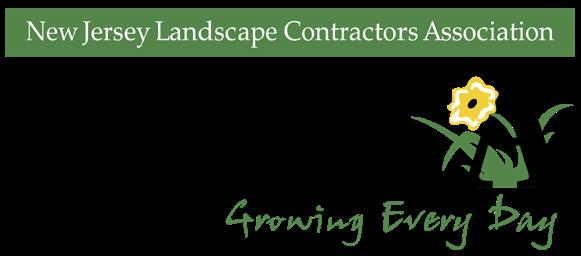
Mission Statement
The New Jersey Landscape Contractors Association (NJLCA) is a proven resource to the landscape contractor, green industry service provider and supplier, as well as the consumer. We are a community of green industry professionals who are dedicated to advancing the integrity, proficiency and continued growth of the landscape and green industry. We do this through education, training and legislative advocacy.
New Jersey Landscape Contractors Association represents the entire Green Industry in New Jersey including landscape contractors, landscape architects, sod growers, nurseries, growers, garden centers, horticulturists, floriculture and the industries that supply them.
Through educational seminars, trade shows, social events, networking opportunities, membership meetings, magazines and professionalism in all that we do, the Association is able to fulfill its mission.
Turf talk
So, it’s mid-winter. How has Mother Nature been treating you? Hopefully there has been enough snow but not too much. Some asked me if I wanted a lot of snow. I said, the perfect winter is 4.1” on Saturday nights for Bergen County at most, nine events that way, and stopping and melting off just in time for clean ups by March 1st. I don’t ask for much.
Winter turf care tips: Keep the salt off the lawn. If you kill it with your salt – Good Luck trying to charge to repair the turf, come spring. Use calcium chloride or Magnesium where the walks border turf areas. It will be gentler on the turf. Is it perfect? No. But it is better than salt. Watch the White Pines. They have had a rough year between tip blight and red spider. You will push them over the edge.
If you damage a turf area it may be necessary to remove some of the soil – just top dressing may not be enough. The salt content may be too high. The seed will germinate then peter out from the salt.

Visit by appointment
Howell, New Jersey 07731
phone
732-938-6300
email
littleacrefarm@yahoo.com
website
littleacrefarm.com
fax
732-938-6340
 by Greg Carpenter, CLT, American Beauty Landscape
by Greg Carpenter, CLT, American Beauty Landscape
Watch where you dump snow. If you load snow on a turf or planted area and if that snow is loaded with salt, you will kill everything. Don’t wonder why it’s dead in the spring; you killed it. Make sure your crews are familiar with the site’s ornamental stones. Snow blowers can result in more than broken sheer pins.
One time, when I was a kid, my brother and I were doing one of the 30 driveways we did in 1979. I had a Honda 2 stage snowblower, it was a light powdery snow. I was throwing it 75’ easy to a house that had been built facing sideways from the other houses. Well, apparently, I was pelting the house at 3 am. It woke the homeowner up. He came to the door, flung the door open just in time for me to cover him and foyer of his house with snow. Of course, I am only 13 and I’m clueless as to what is happening. Just trying to get the work done to get to the next house. He comes running out just in time for my next pass. He runs up to me screaming at me. I’m like “WHAT? I can’t hear you!” He’s pointing to his open

door and I’m shooting snow into his house. The guy was freaking; needless to say, we got fired and the people we were working for didn’t pay us. My brother said “that’s coming out of your cut.” Pay attention to where you are shooting the snow. Lesson learned early in life.
Another time we were working in Hackensack loading snow at a house on Summit Ave. There was a grass area below where we were stacking the snow. I heard kids yelling and cheering. It turned out to be a sledding area for the neighborhood. Thank goodness I stopped my brother before he spilled tons of snow on the kids. You can’t be too careful. Get out and look. There is nothing like looking. Don’t think it’s all clear – KNOW IT’S ALL CLEAR. Be safe not sorry!
Good Luck and Keep Growing
www.NJLCA.org 35




Frustrated by increased inflation, job costs, and employee demands for higher wages, a business owner called me the other day to inquire about instituting a series of bonus programs for his management team (e.g., Maintenance Manager, Construction Manager, Sales Manager) hoping said bonus programs would lead to more income for the individual managers and the company.
Here is the overall bonus template I proposed to the business owner, for his Maintenance Manager.
OVERVIEW
At its fundamental level, the Maintenance Manager Bonus Program is based on the operational performance of the entire Maintenance Department across all four quadrants (e.g., Financial, Employee, Process, Customer) of the company’s business model (i.e., Balanced Scorecard). Across those four quadrants, the following five Key Performance Indicators (KPIs) were identified as accurately reflecting core Maintenance Department goals contained with the Company’s annual strategic plan:
1. Financial: Enhancements Revenue.
2. Employee: Crew Leader Retention levels.
3. Process: Gross Margin Percentage of all Maintenance Department jobs.
4. Customer: Job Quality Ratings of all Maintenance jobs.
5. Customer: Annual Renewal Rate of all Maintenance contract work.
Enhancements Revenue, Crew Leader Retention, Gross Margin Percentage, and Job Quality Ratings are assessed on a monthly basis. All metrics will be reset on the first day of each


MAINTENANCE MANAGER BONUS PROGRAM

 by Steven Cesare, PhD, The Harvest Group
by Steven Cesare, PhD, The Harvest Group
successive month; no cumulative carryover from one month to a successive month will occur. Thus, for example, the monthly Crew Leader Retention metric for November will be reset for December on December 1st, and so on thereafter.

The Annual Renewal Rate of all Maintenance contract work will be evaluated on a calendar year basis. Regardless of the contract start date for every Maintenance job serviced during a calendar year, the status of every Maintenance job will be determined on December 31 of each calendar year. Thus, whether a Maintenance job contract begins in February, July, or October, its status (e.g., current, lost) will be assessed on December 31st.
ELIGIBILITY
The Maintenance Manager will become eligible to participate in the Maintenance Manager Bonus Program on the first day of the new fiscal year (i.e., January 1, 2024).
CRITERIA
The stated criteria for each of the four bonus-based Key Performance Indicators are as follows:
• Financial: Enhancements Revenue. This metric addresses the total amount of Enhancements Revenue the Maintenance Manager must sell for a given month, as specified in the Company’s fiscal year budget contained within the Company’s annual strategic plan. Case in point, based upon historical performance across the rolling three-year average of company benchmark data, the amount of Enhancements Revenue varies by each calendar month due to seasonal context. Accordingly, at the time of annual budget deliberation, the desired Enhancements Revenue will be determined for each specific month within the entire fiscal year. For example, hypothetically, the desired Enhancements Revenue could be $40,000 for February and be $62,000 for August.
• Be apprised that Enhancements Revenue is defined as the sum of all signed extra work, during a given month. Thus, if the stated Enhancements Revenue goal for March is $35,000, the Maintenance Manager must have signed customer proposals dated within the month of March for at least $35,000 to achieve this bonus.
HR Insights 36 February 2024



• It is important to note that the actual work does not have to be started nor completed during the specified month (i.e., March) for the Maintenance Manager to achieve this monthly bonus.
• To be clear, the criterion of 100% for Enhancements Revenue is the standard; if the monthly Enhancements Revenue goal is $30,000, a monthly Enhancements Revenue total of $29,999 does not satisfy the stated standard.
• Employee: Monthly Crew Leader Retention of 75%. This metric calculates the percentage of the total number of Crew Leaders employed in the Maintenance Department at the end of each month, relative to the total number of Crew Leaders employed in the Maintenance Department at the beginning of each month. For example, if six Crew Leaders are employed on February 1st, and of those six, five Crew Leaders remain employed on February 28th, the monthly Crew Leader retention rate for February would be 83%.
• Be apprised that any Crew Leader hired after the first day of any month is not included in this
calculation; only Crew Leaders employed on the first day of the month are included. Any Crew Leader hired during a given month will be included in the calculation for the following month, assuming that Crew Leader is on the payroll on the first day of that month.
• To be clear, the criterion of 75% for monthly Crew Leader Retention is the standard; a monthly Crew Leader Retention rate of 74.9% does not satisfy the stated standard.
• Process: Monthly Gross Margin Percentage of 50% for all Maintenance portfolio jobs. The precise calculation of Gross Margin will be shared with the Maintenance Manager during the 30-day Bonus On-boarding Program.
• It is important to note that Maintenance Gross Margin Per-
centage does not include any non-contract work, including installation, plant health care, tree work, snow work, or subcontracted work.
• To be clear, the criterion of 50% for monthly gross margin is the standard; a monthly gross margin of 49.9% does not satisfy the stated standard.
• Customer: Overall Job Quality Rating of at least 85% for all Maintenance jobs evaluated in a month. The precise job quality rating scale, dimensions, and formula calculation will be shared with the Maintenance Manager during the 30-day Bonus On-boarding Program.
• It is noteworthy to mention that if any one Maintenance contract job receives a Job Quality rating below 70% for a given month,
The explicit goals of every bonus program are to create a program financially lucrative enough to entice the employees to actively engage in its participation...
37 www.NJLCA.org
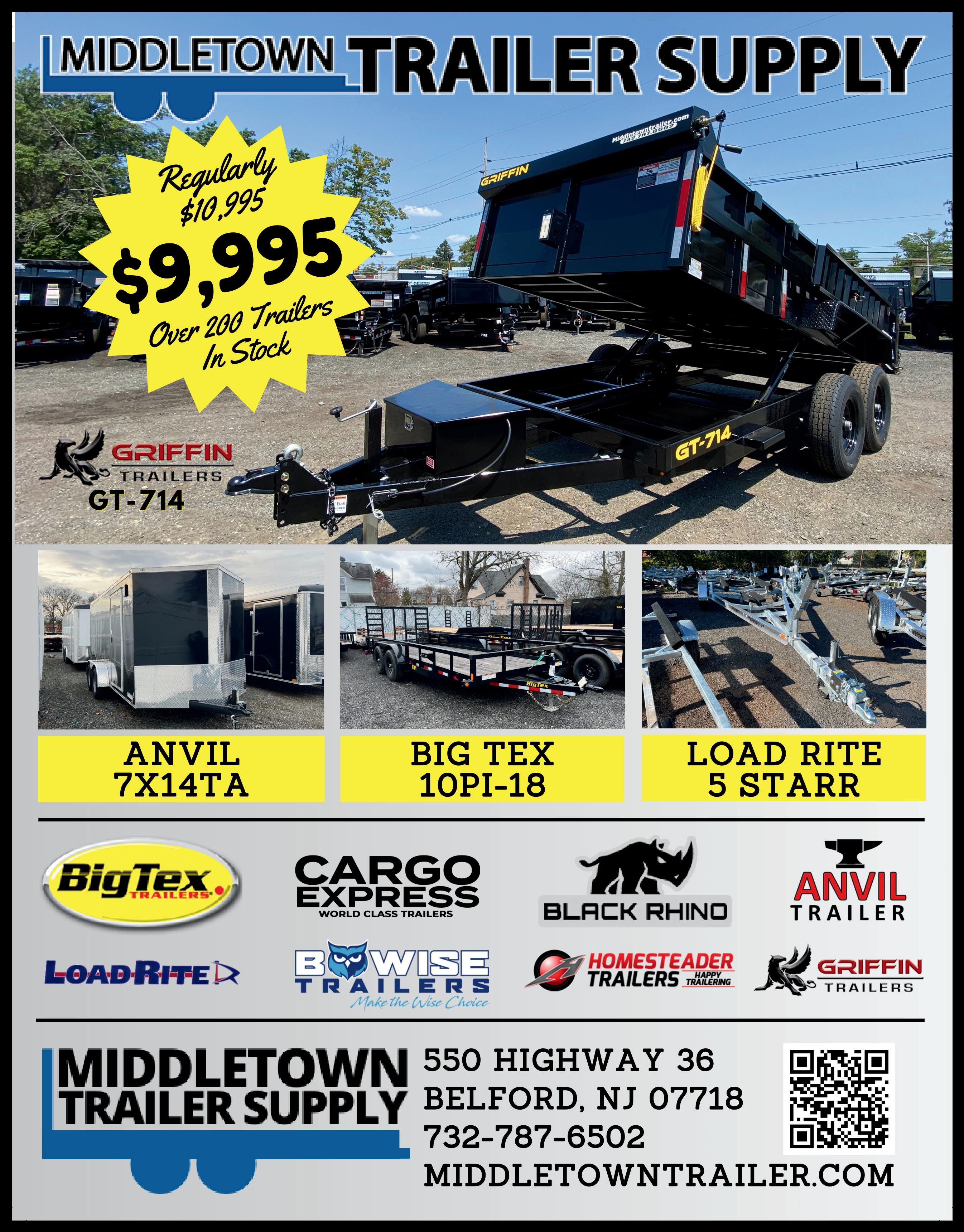











a Job Quality Alert will be assigned. A Job Quality Alert requires immediate action and mandates that all necessary resources be deployed to remedy the situation within one visit during that same month. Failure to reach a Job Quality Rating of at least 70% after that intervention, renders this KPI ineligible (i.e., no monthly bonus payment, regardless of the overall monthly Maintenance portfolio Job Quality Rating for that given month).
• To be clear, the criterion of 85% for job quality is the standard; a monthly job quality rating of 84.9% does not satisfy the stated standard.
• Customer: Annual Renewal Rate of at least 90% for all contracted Maintenance jobs. The precise start dates and scheduled annual renewal dates for all Maintenance jobs will be shared with the Maintenance Manager during the 30-day Bonus Onboarding Program.
• It is important to stipulate that the reason for job loss (e.g., lower cost, miscommunication, poor job quality, inadequate support) does not mitigate the calculation of this metric.
• To be clear, the criterion of 90% for annual retention rate is the standard; an annual renewal rate of 89.9% does not satisfy the stated standard.
BONUS POTENTIAL
For the Key Performance Indicators of Enhancements Revenue, Crew Leader Retention, Gross Margin Percentage, and Job Quality Rating, a monthly bonus potential is provided. For the Key Performance Indicator of Annual Renewal Rate, an annual bonus potential is provided.
The explicit goals of every bonus program are to create a program financially lucrative enough to entice the employees to actively engage in its participation and to make the entire bonus program “selffunding” such that all payouts are a derivative of the added financial resources either
made or saved from achieving the stated Key Performance Indicators. If the bonus program is considered as being cheap by the employees or is an added cost to the company, don’t even start the program!
Based on annual budget projections, the Key Performance Indicators of Enhancements Revenue, Crew Leader Retention, Gross Margin Percentage, and Job Quality Rating, each have a $300 monthly bonus potential, with an additional $500 monthly kicker for each month that all four Key Performance Indicators are achieved simultaneously for the same month.
First, for example, if the Maintenance Manager meets the stated Enhancements Revenue goal for January, the Maintenance Manager will receive $300. Also, if the Maintenance Manager does not meet the Crew Leader Retention standard of 75% for January, the Maintenance Manager will not receive any bonus payout for that Key Performance Indicator for that month. By the same token, if the Maintenance Manager does not achieve the Gross Margin Percentage standard of 50% for January, no bonus payment will be distributed for that month. Continuing further, if the Maintenance Manager meets the Job Quality Rating standard of 85% for January, the Maintenance Manager will receive $300. In this case, the Maintenance Manager would receive a total January bonus payout of $600.
Next, as stated above, the Key Performance Indicators of Enhancements Revenue, Crew Leader Retention, Gross Margin Percentage, and Job Quality Rating, also have the potential for an additional $500 monthly kicker based on simultaneous achievement. In this case, if the Maintenance Manager achieves: (1) the desired Enhancements Revenue monthly goal for April, and (2) the Crew Leader Retention standard of 75% for April, and (3) the Gross Margin Percentage standard of 50% for April, and (4) an average Job Quality Rating of 85.0% across all Maintenance Department Jobs for April, the Maintenance Manager will receive a $300 monthly bonus payout for reaching each

of the four Key Performance Indicators (i.e., $1,200), as well as an additional $500 for meeting all four stated goals during the same month of April (i.e., total April monthly bonus payout of $1,700).
To be clear, the monthly kicker bonus potential is only applied when all four Key Performance Indicators are achieved during the same month. For example, if the Maintenance Manager achieves the monthly goals for September’s Crew Leader Retention, Gross Margin Percentage, and Job Quality Rating, though does not achieve the desired standard for Enhancements Revenue for the month of September, the Maintenance Manager would only receive the $300 bonus payout Crew Leader Retention, Gross Margin Percentage, and Job
www.NJLCA.org 39
Quality Rating (i.e., $900), and not receive the monthly bonus payout for Enhancements Revenue and not receive the $500 monthly kicker (i.e., total monthly bonus payout would be $900).
In sum, each of the monthly Key Performance Indicators (e.g., Enhancements Revenue, Crew Leader Retention, Gross Margin Percentage, and Job Quality Ratings) has a cumulative maximum monthly bonus potential of $3,600. When taken collectively, involving all four Key Performance Indicators across the entire 12-month year, the maximum annual bonus potential is $14,400 (i.e., $3,600 multiplied by all 4 Key Performance Indicators).
Beyond the bonus potential for each of the monthly Key Performance Indicators, the monthly kicker potential is $500, with an annualized maximum of $6,000 (i.e., $500 monthly kicker potential multiplied by 12 months). Thus, the bonus potential (i.e., monthly bonus potential and monthly kicker potential) for the Maintenance Manager is $20,400 (i.e., $14,400 added to $6,000).
For the Key Performance Indicator of Annual Renewal Rate, an annual bonus potential payout of $4,000 is provided. Thus, if the Annual Renewal Rate of all Maintenance portfolio jobs meets the standard of 90% on December 31st of each calendar year, a $4,000 bonus payout will be made. This raises the maximum total annual bonus potential for the Maintenance Manager to $24,400 (i.e., $4,000 in annual bonus potential added to the $20,400 in monthly bonus potential).
It is common knowledge that Managerial Bonus program payouts should approximate at least 20% of a manager’s annual salary. In the case illustrated above, the Maintenance Manager has an annual salary of $95,000. Thus, the proposed Maintenance Manager Bonus Program clearly exceeds that 20% standard, and in so doing, represents a highly-lucrative bonus program capable of motivating the employee to achieve his departmental performance goals and desired personal income level.
Regardless of the Key Performance Indicator (e.g., Enhancements Revenue, Crew Leader Retention, Gross Margin Percentage, Job Quality Ratings), no partial, pro-rated, or intermittent bonus potential payouts are permitted.
BONUS PAYOUT SCHEDULE
To accommodate administrative processing, all monthly bonus payouts will be paid by the end of the first month following the end of a monthly bonus period. In specific, for each of the four monthly Key Performance Indicators, the bonus payouts will be distributed on the following monthly schedule:
• January to be paid by February 29th
• February to be paid by March 31st
• March to be paid by April 30th
• April to be paid by May 31st
• May to be paid by June 30th
• June to be paid by July 31st
• July to be paid by August 31st
• August to be paid by September 30th
• September to be paid by October 31st
• October to be paid by November 30th
• November to be paid by December 31st
• December to be paid by January 31st

The annual bonus potential payout for Annual Renewal Rate will be paid by January 31st of the following year.
CONDITIONS
Without modifying any aspect of the company’s At-will Policy, the Company reserves the right to terminate this Bonus Program without further obligation at its sole discretion
In the event of any type of employment dismissal (e.g., resignation, termination, layoff, retirement), the Maintenance Manager will not receive any bonus payout for any partial month performance on any Key Performance Indicator.
SUMMARY
The business owner and the company culture are very supportive of this new program implementation, attempting to recraft complacency to capitalism. The program was empirically well-researched, calculated with budgetary care, and communicated with relevant executives and managers to ensure ongoing support, accountability, and success.
Steve Cesare has more than 30 years of human resources experience. Currently, Steve is a Principal Consultant with the Harvest Group, a nationwide firm.
Steve earned his Ph.D. in Industrial/Organizational Psychology from Old Dominion University. He has authored 68 professional journal articles and made over 60 presentations at professional conferences. Additionally, he has 17 years of collegiate teaching experience at Old Dominion University and the University of San Diego.
If you have any questions or comments about this topic or anything else related to human resources, simply call Steve at (760) 685-3800.
40 February 2024
Snow & Ice Creates Slip and Fall...And that ain’t All!!
by Richard Gaynor, Middleton & Company
Insurance

What you should know IF you own commercial property OR if you are performing snow and Ice plowing services for commercial property.
During the Winter, snow and ice season, around 1 million people go to the hospital emergency rooms after a slip & fall according to the National Flooring Safety Institute (about 12% of all slip & falls).
If a person was hurt in a slip and fall accident, they have the right to file a lawsuit to recover money to compensate for injuries, pain and suffering, loss of enjoyment of life, medical bills and lost time from work, and other damages the victim may have suffered. If you can prove that your fall would not have happened if someone else had taken greater care, you may be entitled to compensation for your injuries.
Mother nature supplies the snow and ice which creates premises slip and fall hazards. State and local laws require property owners and business owners to provide business invitees and guests with reasonably safe means of ingress and egress.
If you are a commercial property owner OR if you are performing snow and Ice plowing services for commercial property you can NOT avoid these perils HOWEVER you can mitigate or transfer the risk.
• If you are the Property Owner, include in the lease ‘what’ your tenants are responsible for.
• If you are the Tenant… include ‘what’ the Property owner is responsible for.
• If you are providing snow plowing and Ice melting services, Include in your snowplow contract exactly when you are, and when you’re NOT responsible
When you are NOT responsible, state who is…
• All parties should consider purchasing Insurance Coverage – proper insurance coverages and limits
• Speak with a professional to help you best navigate Risk Management!
Life is not fair, Laws are not fair, People are not fair… DON’T expect them to be fair! Work with what you have… Stop wishing… for others to change things!
Work with professionals who will help you work with what you have! Knowledge and Success!
In 1979, Richard Gaynor joined Middleton & Company Insurance Agency after graduating The College of New Jersey/ Trenton State, creating and marketing a variety of specialized insurance programs. Richard joined the Boards of many industry Associations. He attended most meetings and acquired a keen understanding of the protection needs and issues that each association faced. Richard assumed the presidency of Middleton & Company in 1995, continuing the commitment to provide business solutions to clients while maintaining strong profitable growth.

www.NJLCA.org 41
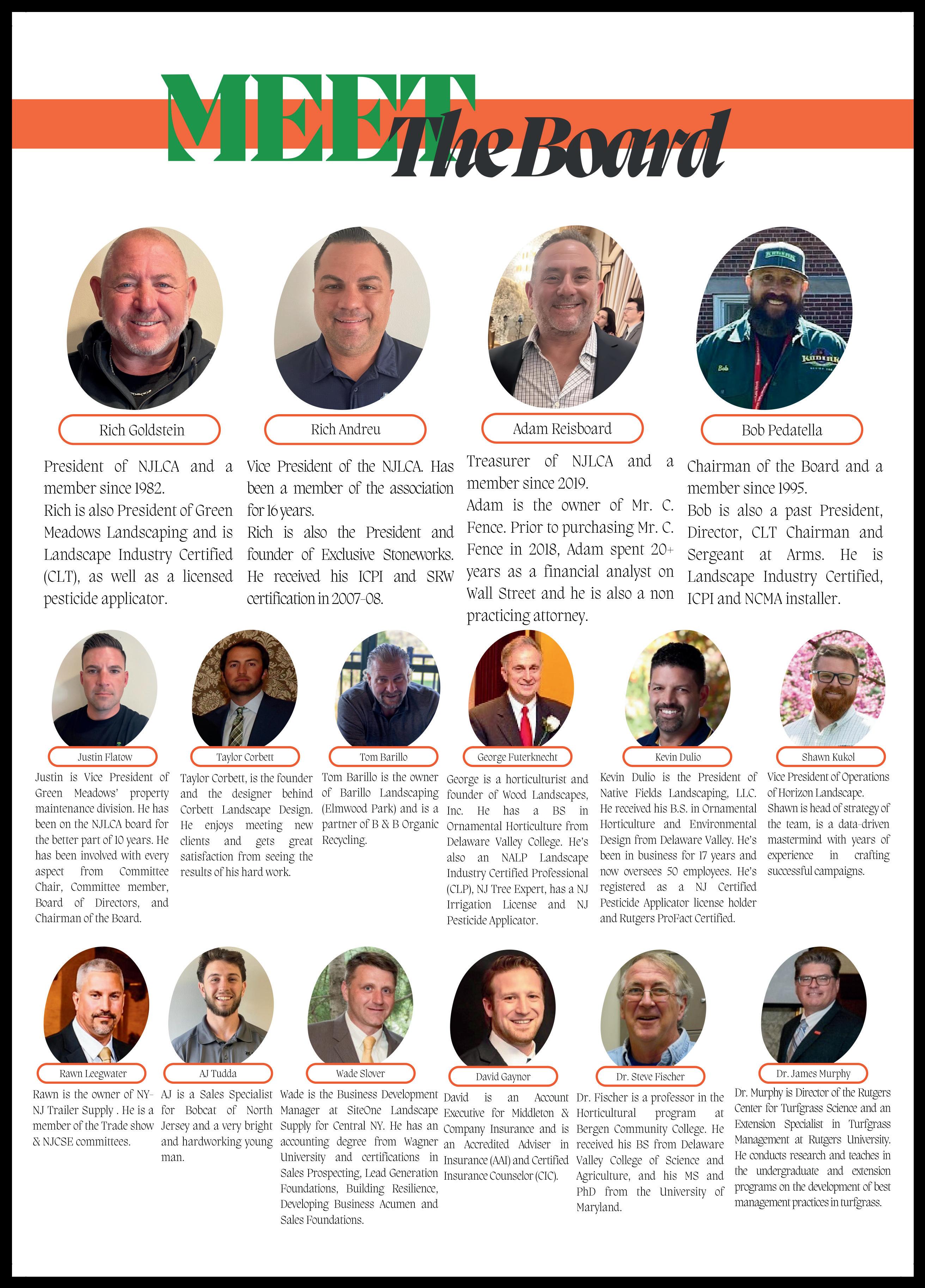
February 2024
WE HAVE A SITUATION

I got a call from the supervisor, Bill, “We have a serious situation here”.
I was a little taken aback.
We had a good morning. Two jobs went well and I asked the guys to head back to the yard. It was supposed to snow early that afternoon and I didn’t want the trucks driving in the snow. This was November 15, 2018, the day eight inches of snow closed the New York tristate area. I wanted the crews to catch up on maintenance and clean the place up, so we didn’t end up plowing rakes and shovels, (or any other crap we had lying around) into snow banks. In north Jersey 2018 was a very busy year and an hour or two of cleanup was overdue. The man I will be talking about asked that his name not be used, so I will refer to him as Spine since he considered himself the backbone of the company.
Everything was moving along and I left. I don’t get home early too often. My son is handicapped and I wanted to take him to his favorite hamburger place, The Fireplace. I had just pulled into the parking lot when Bill called. He said “We have a situation”. I asked how we could have a “situation’, when you’re only cleaning up and going home. Bill said, “I don’t know exactly what happened, but he was doing something with the Brush Bandit, his fingers are off and he’s running all over the place. The cops want you here, OSHA is on the way and they want you here too”. It just started snowing. I looked at my son and tried to explain to him we had to go. I dropped him off at home and went to the yard. This took almost 40 minutes.
by Colin Milde, Ramapo Tree & Shrub
By the time I arrived things had calmed down a little. Spine was on his way to the hospital. The cop was still there, but OSHA had not yet arrived. I provided the cop with the information he needed. I found out more of what happened but the details were still not clear. I took some pictures.
Blood was all over the parking lot. Spine’s fingers were still in the machine. His fingers, or what was left of them, would not be going to the hospital with him. OSHA arrived and two guys exited the car. They were polite as they pieced together what happened. They took down my information. They took some pictures. The cop had to go to the bathroom, so he left and it was snowing pretty hard by then. The OSHA guys didn’t want to stand in the snow, so they finished and left. Then Bill and I left.
And one of the best climbers went to the hospital leaving his fingers on site. I went to the local hospital, but he wasn’t there, so I called his phone. His adult daughter picked up and explained he had gone to a hospital closer to his house. She said he was sedated and could not talk. When I asked how he was, she said he was very upset and they were worried about his state of mind. The roads were so bad by now that going to the other hospital was not an option. I picked up a pizza on the way and told my son we would have “pizza in the
house”. The Fireplace closed.
It’s winter now. I expect Spine to be back in the spring. There is a lot he can do. Spine speaks Spanish and English, is a pesticide applicator and has a class A drivers license. I saw him yesterday and the stubs were still painful and he didn’t have much movement. The Worker’s Compensation representative wants Spine to return to light duty work, answering phones, filing, stuff like that. Not a lot of office work for a tree company with seven employees. Besides, the office is in my house and I don’t want him pissing my wife off.
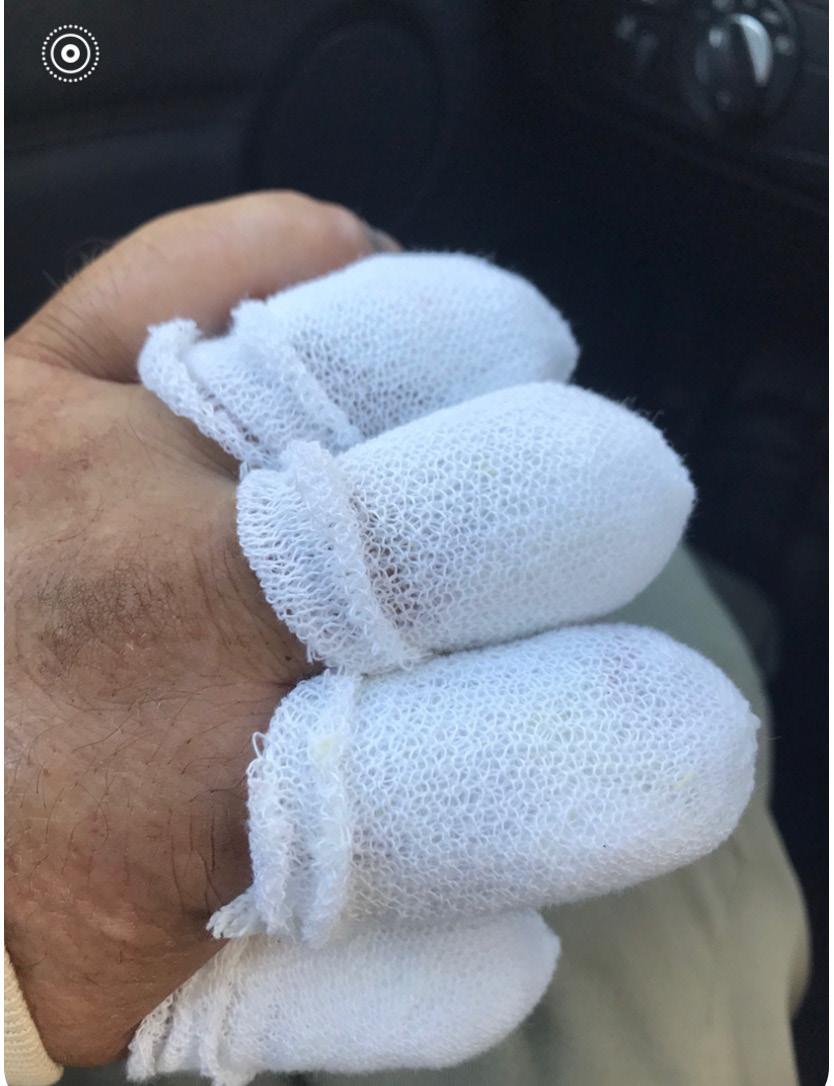
www.NJLCA.org 43
the mend
On
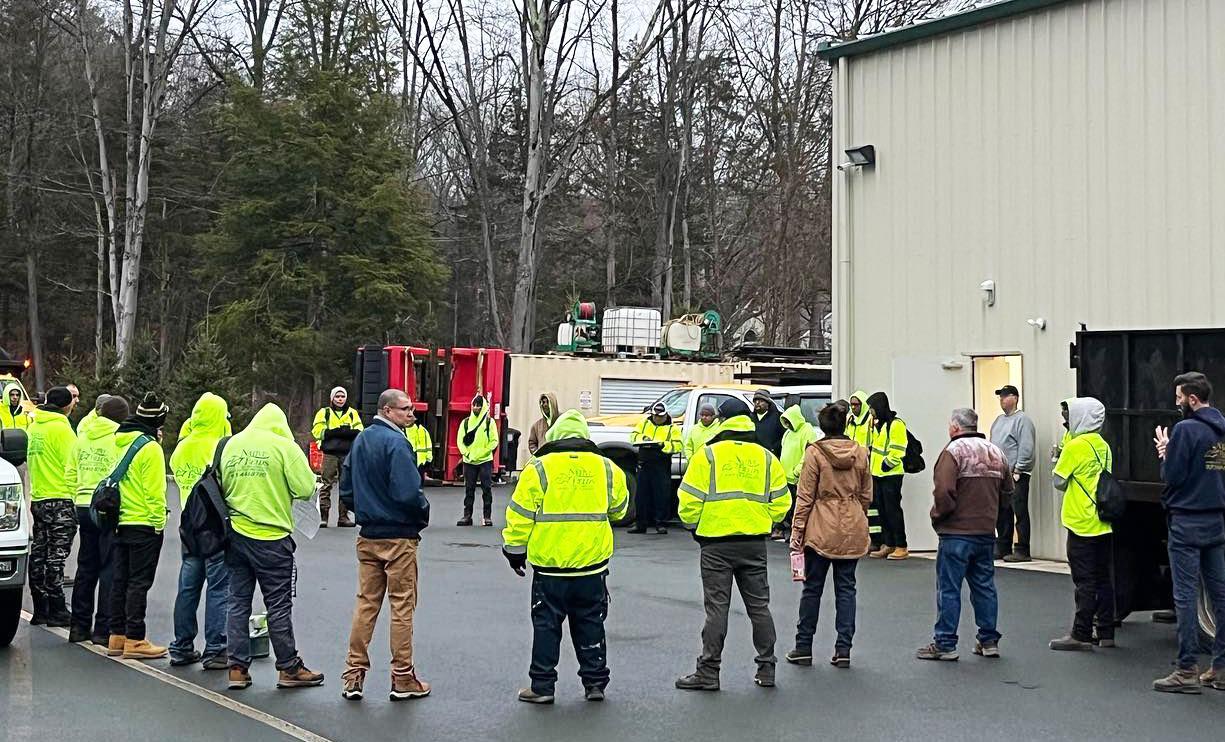
This is what happened. The guys pulled in around 1:30 pm. Some cleaned out the trucks and put stuff away. Two guys were cleaning and sharpening saws.
I bought a new Brush Bandit 254 chipper when I started the company in 2000. I was 40 years old. I had started another company when I was 26. We were pretty successful but I ran into some problems with the other owners. That’s a story for another day. Ramapo Tree has one owner. This chipper collects debris in the area of the bottom feed roller. In cold weather dirt freezes and the feed wheels won’t spin. There’s a trap door for clean out but it had not been opened since the end of last winter so it was jammed. On this chipper the hydraulic motors that turn the two feed wheels are mounted on the frame of the machine and the feed wheels are turned with chains. The chains have covers but we to remove them to grease the bearings and over the years they got bent and broken so they were not in place.
When Spine prepared to clean out dirt and the first thing he did was start the chipper, (wrong). The feed wheels were
engaged so the chains were spinning. Spine got under the machine on his back and started “persuading” the trap door to open. He was using a hammer with his right hand. He reached up with his left hand to shift position and the chain grabbed his fingers and pulled them into the sprocket. When his fingers reached the sprocket he yanked his hand away but his fingers stayed in the sprocket. There happened to be an EMT on site who was very helpful. His pinky finger was not cut but the other four were now one inch nubs. What was left of his fingers were too damaged to attempt to reattach them so they remained in the sprocket. One of the guys came in the next day and ran the machine so the remains fell to the ground. I didn’t ask him what he did with them.
NJ tree companies are mandated to have weekly safety meetings. We use Tail Gate Safety from TCIA and a combination of other sources. Two sessions dealt with lock-out-tag-out. The meetings are documented. Spine was the supervisor of one meeting and was a participant in the other.
New covers were purchased and are in place. We have an OSHA approved lock out tag system.
Accidents happen in the blink of an eye. Safety meetings are important and not just for compliance. We all need to be careful and watch out for ourselves and for those around us.
Post script...
Now: The suit was settled. Spine got a big settlement and stared his own company. I got a big fine. Next year I’m just spraying for Spotted Lantern Fly.
Colin Milde started working in the tree business in 1980 for Sequoia Tree Service. He is a NJ Licensed Tree Expert (NJ LTE 385), a Board Certified Master Arborist (NJ 149B), a Registered Consulting Arborist (596) and a licensed Pesticide Applicator.
Colin owns and operates Ramapo Tree and Shrub Care, LLC. They perform all phases of tree work but the emphasis is on Plant Health Care, correcting planting depth issues, diseases and pathogens.
44 February 2024
Native Fields Landscaping LLC (Wharton, NJ)
Landscape AlterNATIVEs: A Guide to Native Landscape Plants
PURPLE PITCHER PLANT (SARRACENIA PURPUREA)
by Steven Yergeau, Agriculture & Natural Resources Agent (Ocean & Atlantic Counties)

Native plants are a good way to incorporate sustainable vegetation into yards for clients who are environmentally minded. Native plants are adapted to local climate and soil conditions, requiring less water, fertilizers, and pesticides than non-native vegetation. For landscapers who have property owners looking for native alternatives to non-native vegetation, this column provides options to meet your client’s needs.
Purple pitcher plant (Sarracenia purpurea) is a specialized, carnivorous plant that can grow up to 1 foot high without spreading very far (only 1 - 2 feet) because of its short rhizomes. It gets its name from its upright hollow leaves that resemble water pitchers that are covered in purple veins (Photo 1). These structures collect rainwater which attract insects who get trapped and are eventually digested by enzymes in the purple pitcher plant (Photo 2). Specialized downward pointing hairs along the opening prevent insects from escaping.
acidic soils (pH <6.8) and when exposed to full sun.
Native along most of Eastern North America, the purple pitcher plant is considered only slightly deer resistant. It usually flowers in spring (May to June) with a single maroon flower growing from a long stalk that emerges from the plant. Despite being a carnivorous plant feeding off insects, there are some butterflies that will help to pollinate these pitcher plants. Purple pitcher plants are a great specialty plant for homeowners looking for something different in their yards or for an experienced gardener looking for a challenge.
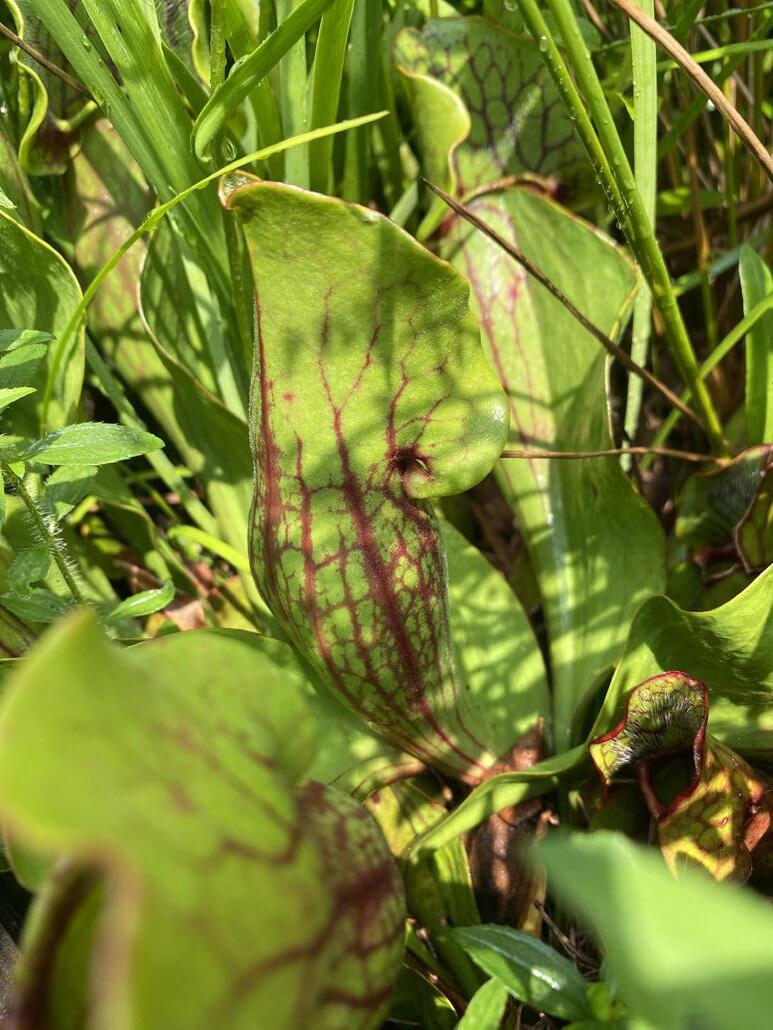
Purple pitcher plants have specific growing requirements that make them difficult to grow in most home landscapes. They grow primarily in sphagnum bogs and can also grow in wetland areas with sustained saturated soils or standing water. These conditions create nutrientpoor soils so that purple pitcher plants supplement their needs by consuming insects. They grow best in prepared bog gardens or in containers where their environment can be controlled. Purple pitcher plants grow well in acidic to slightly
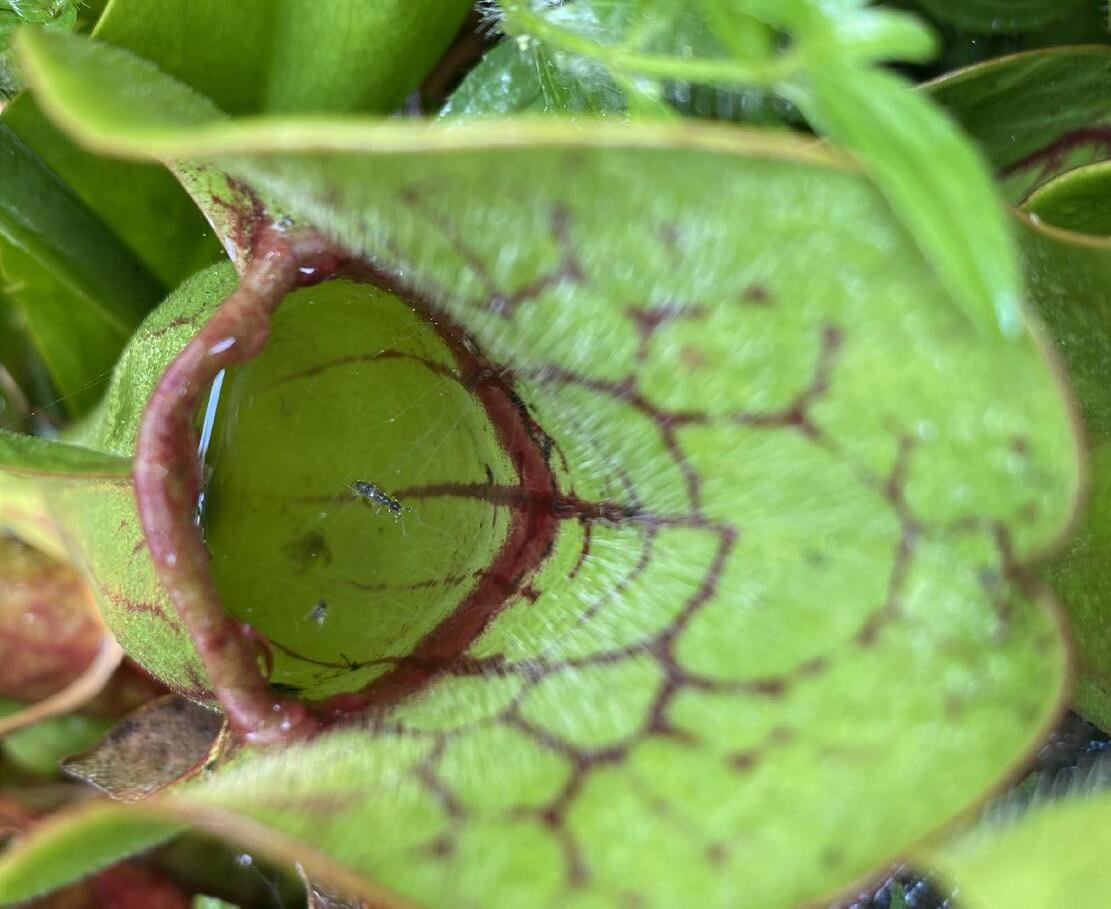
You can find nurseries in New Jersey that sell native plants by visiting the Jersey-Friendly Yards website at http://www.jerseyyards.org/jersey-friendlyplants/where-to-buy-native-plants/.
Steven Yergeau, Ph.D. is the County Agent for Rutgers Cooperative Extension of Ocean and Atlantic Counties. He is also an Associate Professor in Agriculture and Natural Resources. For more info visit https://ocean.njaes.rutgers.edu.

www.NJLCA.org 45
Photo 1: Purple pitcher plant in summer (Photo Credit: Steve Yergeau).
Photo 2: Close up of purple pitcher plant with insect inside (Photo Credit: Steve Yergeau).
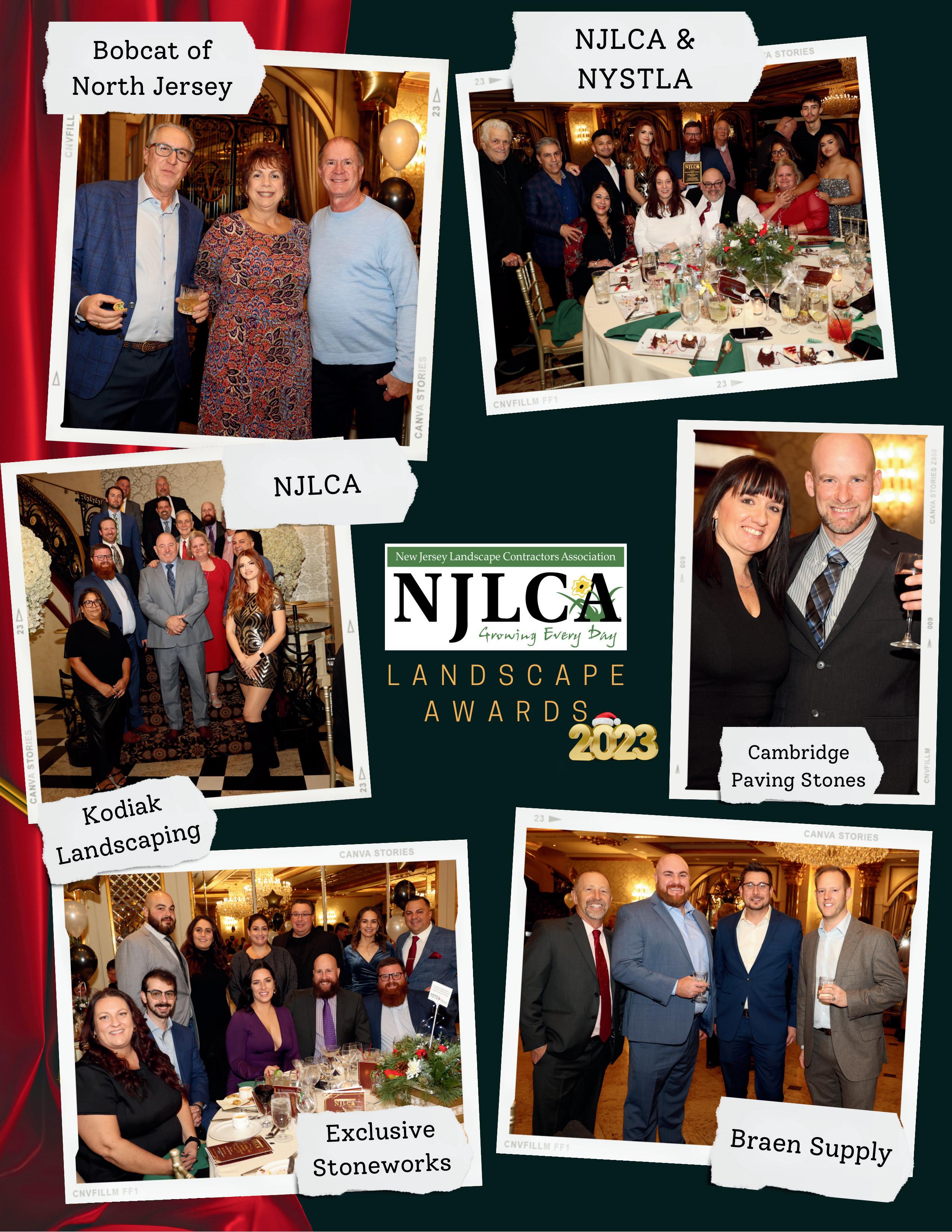
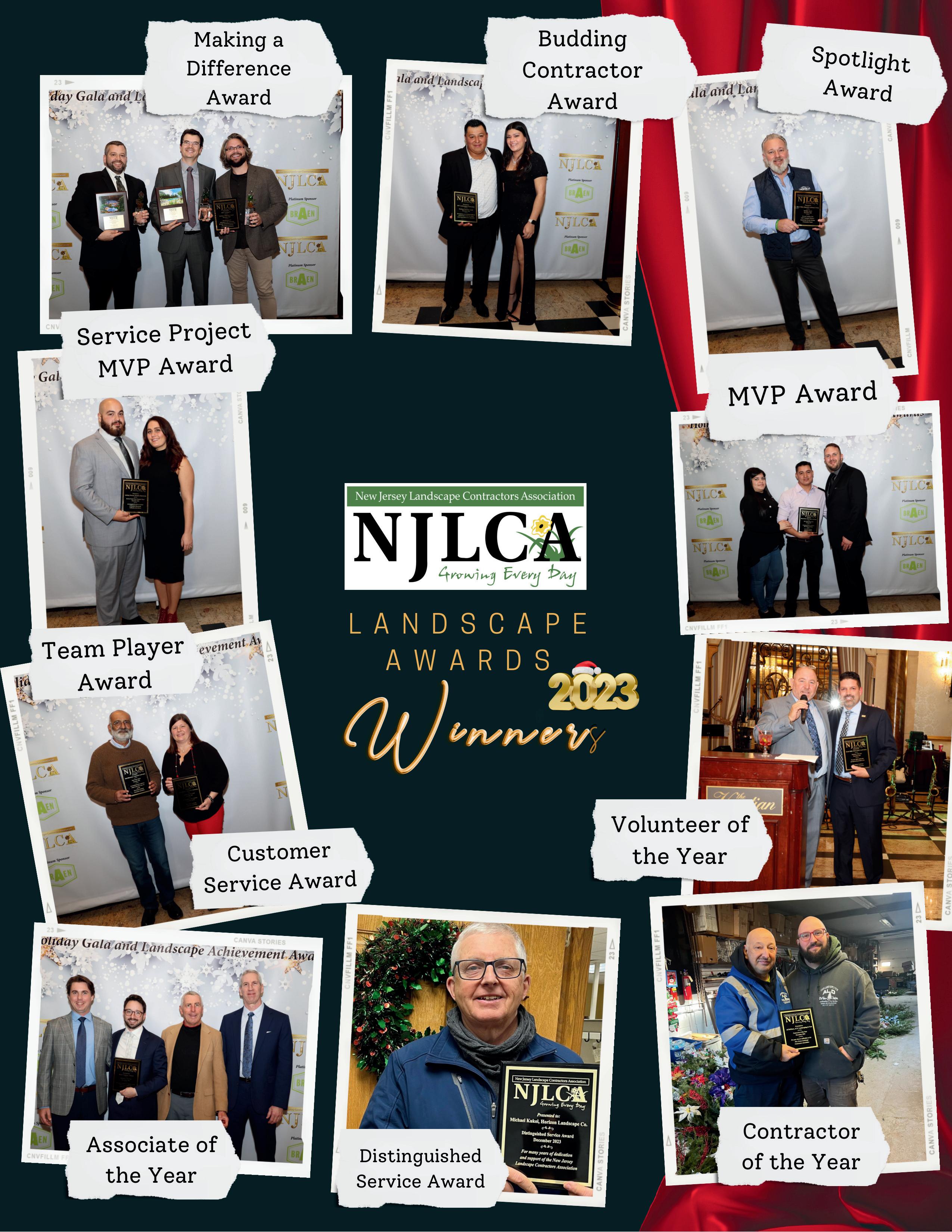


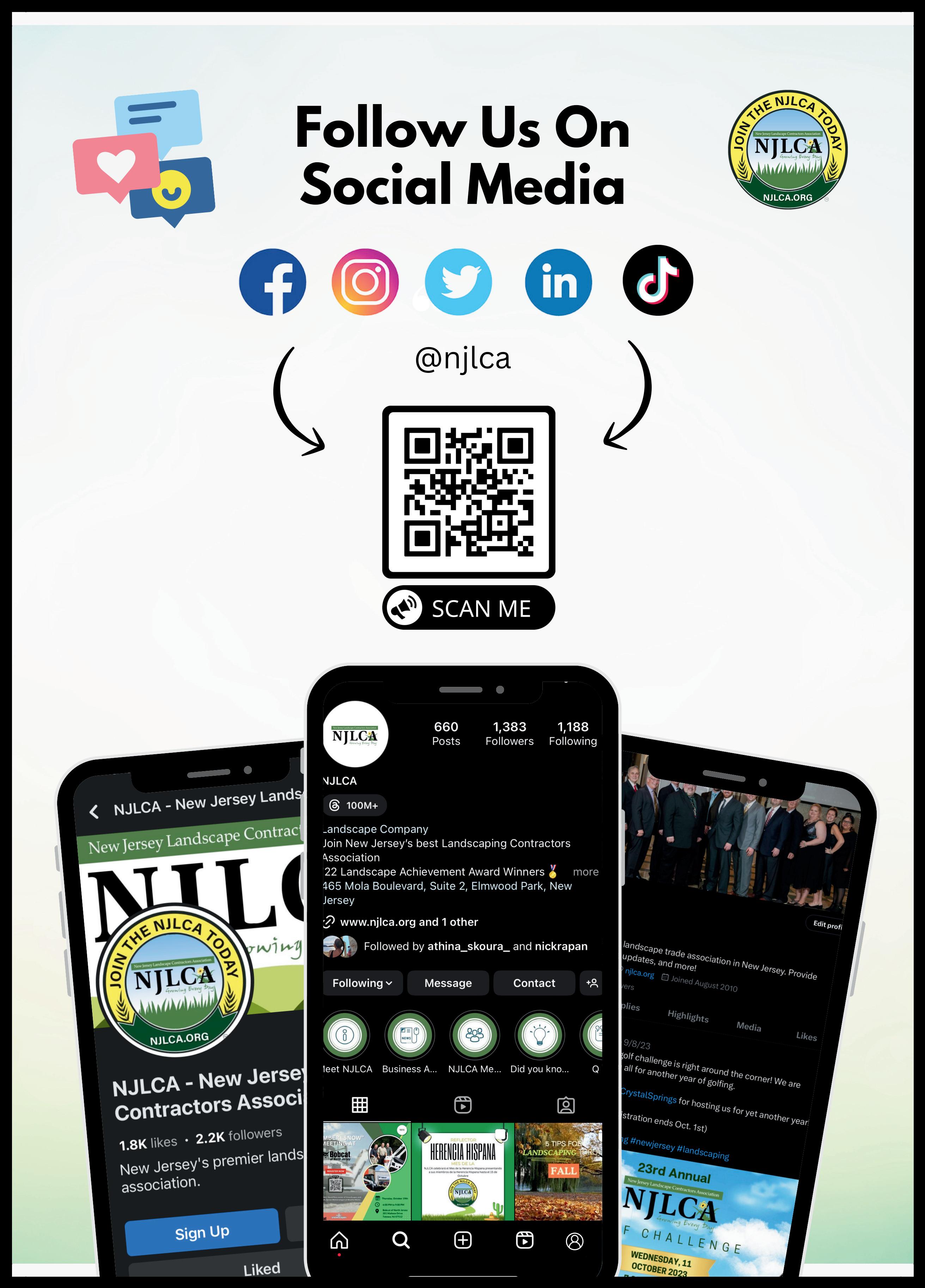

The Robots are coming...The Future of the Landscape industry
by Jared Gavzy, EcoQuip LLC
We all carry a supercomputer in our pockets every day. We have access to infinite amounts of information, real time weather reports and tracking of our crews whereabouts and time spent on a project down to the minute. We can call out for Siri (or Alexa), and have it turn on our coffee maker, turn off our lights and tune to Netflix to watch the latest movie.
What advancements in technology have we seen in the landscape industry over the last 30 years? Really not many. Belt driven machines went to Hydrostatic. Equipment became more efficient, lighter and more powerful. Though not much has changed to affect the way we work. There are many things that we can take advantage of in our industry that can be labor saving, cost saving and improve the services we all strive to provide for our clients.
Every industry has a point in its history that revolutionizes the way we work. Providing efficiencies not yet realized and disrupting the way an entire industry operates. Automation in the work environment has completely changed the game for multiple labor dependent industries, think of the auto industry and Henry Ford’s assembly line. The time for the Landscape revolution is now.
Many of the routine tasks we as landscape professionals perform weekly
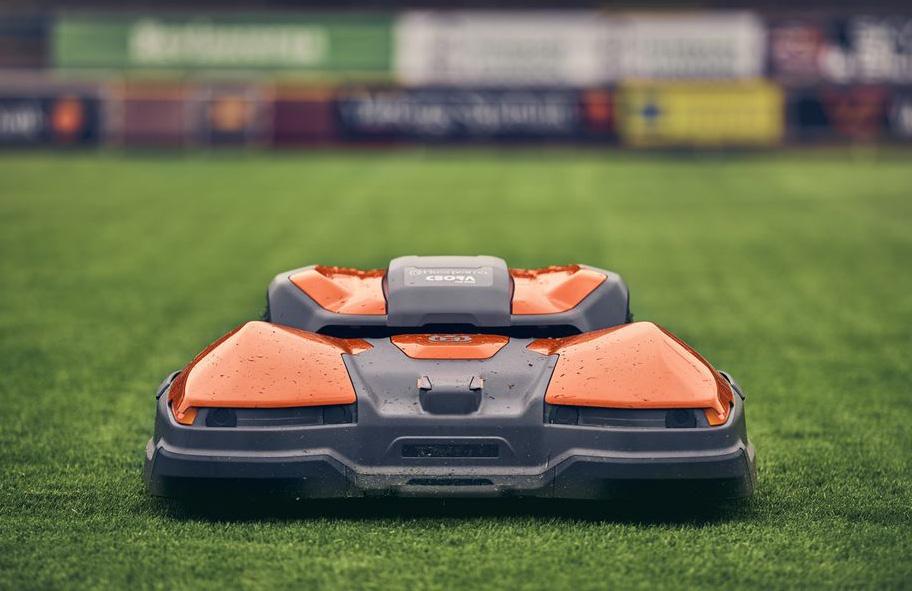
can be automated, freeing up valuable time that can be directed to tasks that have a higher profit margin and allowing us to focus on the details our clients expect and appreciate. The options in robotics and automation have been growing at a rapid pace over the last several years as showcased in both trade magazines and the Equip Expo. Robotic mowers, first introduced in mass by Husqvarna has and will continue to revolutionize the way we work. Options from several notable brands have continued to be introduced every year and it seems almost every major brand has something in development.
maintain that freshly mowed appearance daily, basically taking our typical 30 cut season and expanding it to over 200 cuts a season. Gone are the requests to be cut on Fridays so all looks neat for the weekend, now every day is Friday! All of this done in practical silence, with zero emissions and requiring less electrical draw to power than a toaster.
The other option we see gaining a lot of traction are the semi-autonomous mowers. These units also utilize RTK/ Cellular service to define their boundaries but resemble our current fleet of mowers in appearance and cutting ability. An operator will create a boundary by driving the mower around the boundary area, creating any “keep out” zones like planting beds or trees and then get
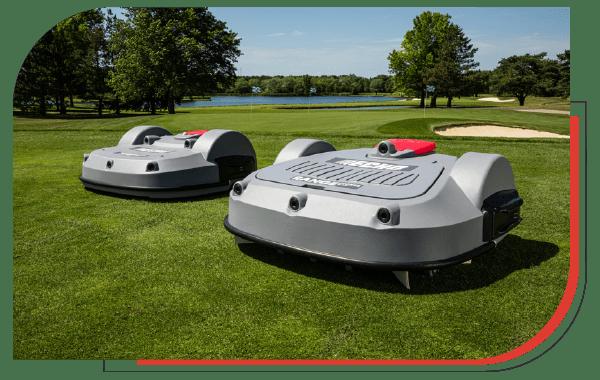
Robotics and automation in the industry, specifically turf management, currently has two options. Fully autonomous and semi-autonomous. Fully autonomous mowers are installed at a set location and their area is defined by either a wired boundary (similar to an electric dog fence) or wireless boundary utilizing RTK and cellular technology that defines the parameters of where the mower is to operate. These units can range in capacity from ¼ acre all the way up to 18 acres and are programmed to cut daily, cutting only a small amount of the grass blades into fine compostable pieces. They can operate day or night, rain or shine and
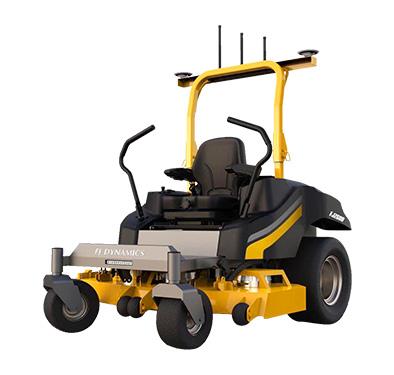
off the machine and set it to mow. The machine will cut the defined area and return to its starting point and shut down upon completion. Freeing up your crew members to attend to other tasks while the mower takes care of the lawn. Multiple brands are utilizing this technology in the future of their offerings.
Both options have their advantages and disadvantages. Fully autonomous mowers have an up-front investment in both the equipment and time to setup and as can only be utilized on one
www.NJLCA.org 49


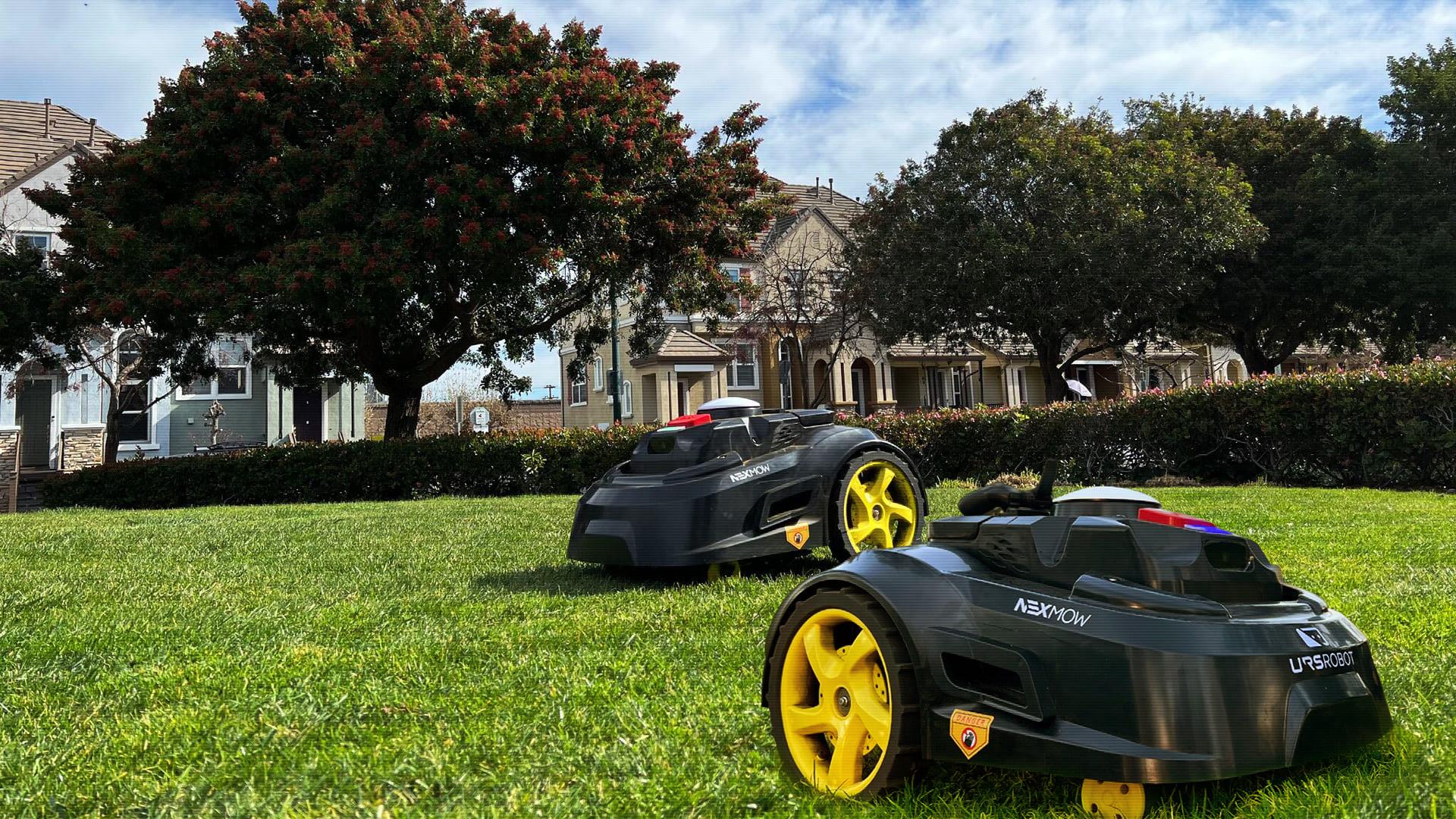
property. However, the long term savings in both labor, equipment and repairs as well as the ability to repurpose your team for higher profit and time sensitive jobs can bridge that gap quite quickly. When scheduled correctly maintenance crews working on an automated route can now travel with a much lighter load (or no trailer at all) as well as service that many more houses in a single day by not spending the majority of their time simply cutting lawns. As the lawns are always cut, weather delays are a thing of the past.
Semi-autonomous mowers will be incorporated into your fleet under the same capacity as buying a new mower. The range of machines this technology will be available on will mimic the offering of machines we utilize daily now, with sizes ranging from 33/36” machines up to and over 60” decks in both ZTR and stander platforms. Though you will still
need the truck and trailer to transport them from job to job, the ability to automate the single largest draw of time in our turf management operations will allow for crews sizes to decrease and become more efficient. This allows work to be performed quicker and with computing like efficiency.
As this technology continues to develop we are seeing traditionally labor intensive services being replaced with automation. Echo robotics currently offers Golf Driving Range Management that can both pick the balls on a driving range, deliver back to a drop off location and manage the turf 24/7, all fully autonomously.
The largest concern we hear in respect to automation is the robots are taking our jobs. At the same time we hear over and over in the industry the inability of companies to recruit dependable labor. Even pre-pandemic it had been hard to
find, train and retain dependable labor in this industry. Especially with the younger labor force who grew up fully immersed in today’s technology. We are seeing robotics as a way to attract a new breed of workforce to now consider the landscape industry as a career.
Bottom line is the robots are here, and we believe they are here to stay. Incorporating this technology into our daily operations, when utilized correctly can improve our bottom line, boost efficiency and create a more satisfied client base.
Eco Quip is an all-Battery-Operated Power Equipment store located in West Nyack, NY, and the first of its kind in the Tri-State region, offering tools and equipment from top brands like Makita, Stihl, Husqvarna, Toro, Kress, Mean Green as well as many others. We are also the only certified automower specialist in the area offering robotic and
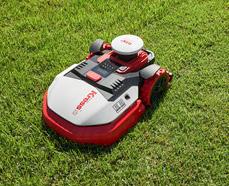
autonomous turf management solutions for almost any turf area. Lastly, we are creating off grid power solutions for mobile operations as well as power management solutions capable of charging your fleet of batteries safely and efficiently.

PREVENTING FMCSA VIOLATIONS
by Anthony Morreale, Tri-State Safety Solutions

MVR Monitoring, FMCSA/USDOT Drug Testing, and driver and vehicle File Management Programs all play a big part in preventing these FMCSA violations.
According to data from the Federal Motor Carrier Safety Administration’s (FMCSA) safety investigation summary report, 94% of safety investigations performed in 2023 have resulted in violations.
B In CY 2023 in New Jersey, 96.1% of safety investigations resulted in violations.
B In CY 2023 in New York, 93.85% of safety investigations resulted in violations.
B In CY 2023, in Pennsylvania, 93.91% of safety investigations resulted in violations.
The top violations (severe enough that they require immediate corrective action) of 2023 are:
1. Allowing a driver to operate with a suspended or revoked CDL.
2. Failing to implement an alcohol and/or drug testing program.
3. Failing to randomly test for drugs and/or alcohol.
4. Using a driver who has tested positive for a drug.
5. Allowing a driver with more than one CDL to drive a commercial motor vehicle (CMV)
Committing any of these violations can mean paying significant fines, and carriers’ Compliance, Safety, and Accountability (CSA) scores can be affected. A bad CSA score can lead to warning letters from the FMCSA, an official investigation, out-of-service orders, fines, and other consequences that can hurt your profits and even force you out of business. You don’t want that!
On the upside, a good CSA score shows your commitment to safety and compliance.
The key to remaining compliant and avoiding violations is always to be auditready. This is more important than ever, as offsite audits have increased by 400% over the past few years. Your chances of being called for a safety investigation are likely higher than ever.
While your goal should be to maintain a completely violation-free record, below are some steps you can take to avoid the most common acute violations of 2023.
1. Allowing a driver to operate with a suspended or revoked CDL
2. This has been the top violation for the last five years. It has accounted for 36% of acute violations in 2023.
3. Failing to implement an alcohol and/or drug testing program.
4. Failing to test for drugs and/or

52 February 2024
alcohol randomly according to FMCSA requirements.
5. Using a driver who has tested positive for drugs.
These have all been top acute violations for several years, together accounting for over 37% of all acute violations so far this year. Fines for non-compliant drug testing programs average more than $8,000.
6. Allowing a driver with more than one CDL to drive a CMV
This may not seem like a big deal, but it is in the eyes of the FMCSA. In September, a motor carrier based in North Carolina was fined $4,300 for committing this violation.

state, and the resulting reposts don’t always provide a crystal-clear look into a driver’s licensing history.

Although the state responsible for issuing a driver’s CDL is supposed to perform a check of the Commercial Driver’s License Information System (CDLIS) before issuing the new license to ensure that they don’t hold licenses elsewhere, compliance with this can vary from state to
To protect yourself, performing pre-employment checks of the CDLIS yourself is best—and then regularly for all employees. Partnering with a USDOT background check provider can help ensure your drivers are compliant without adding another administrative duty to your long list of responsibilities.
Notable Violations in 2023
A complete list of violations recorded federal or by state is available at https://ai.fmcsa.dot. gov/EnforcementPrograms/Investigat ions?type=AllViolations&time_period_ id=2&report_date=2023&carrier_ type=1´_critical=0&safety_ rating=F&state=NAT&domicile=ALL
B Keeping fraudulent records. Organized and up-to-date DOT recordkeeping is a must – and now, with the

shift to offsite audits, officers may expect carriers like you to have a digital recordkeeping system in place.
B Failing to have a means of indicating maintenance due dates.
B Failing to keep a maintenance record identifying the vehicle.
B Failing to prepare RODS in the form and manner prescribed. All commercial drivers (anyone operating a vehicle registered commercial over 10,001 pounds) must keep a Record of Duty Status. This is required when operating under the Short Haul Exemption
B Incomplete or no employment application. USDOT/FMCSA has a specific application for commercial drivers. It is the employer’s responsibility to ensure all application requirements are completed and verified.
B Failing to maintain driver qualification file on each driver operating a vehicle over 10,001 pounds.
B Failing to use a seat belt while operating a CMV.
B Fail to get “reasonable suspicion” designee the required training.
B Failing to provide employees with written policies.
B Road test certificate/license/equiv. not kept in the Driver Qualification File
For assistance with your USDOT and OSHA compliance, don’t hesitate to get in touch with Anthony Morreale, Co-Owner of Tri-State Safety Solutions, at 732-5513833, amorreale@tsss-nj.com, or visit our website, www.tsss-nj.com.
www.NJLCA.org 53
SELECTING ALTERNATIVES TO BOXWOOD: WHAT TO CHOOSE IF BOXWOOD IS JUST NOT WORKING FOR YOU ANYMORE

Boxwood is one of the most popular and beloved evergreen shrubs in the world. For centuries boxwood has been used in every conceivable way in formal and informal landscapes in the US and abroad. Boxwood can be used in so many different landscape situations and is easily molded to serve any gardens’ need. But due to several devastating pests including boxwood blight (Calonectria pseudonaviculata, syn. Cylindrocladium buxicola), Volutella blight (Volutella buxi) and a host of other diseases and pests including Phytophora, leaf miner, nematodes and mites, many landscape professionals are looking for alternatives to boxwood. The alternatives available have been chosen for their likeness to boxwood with simi-
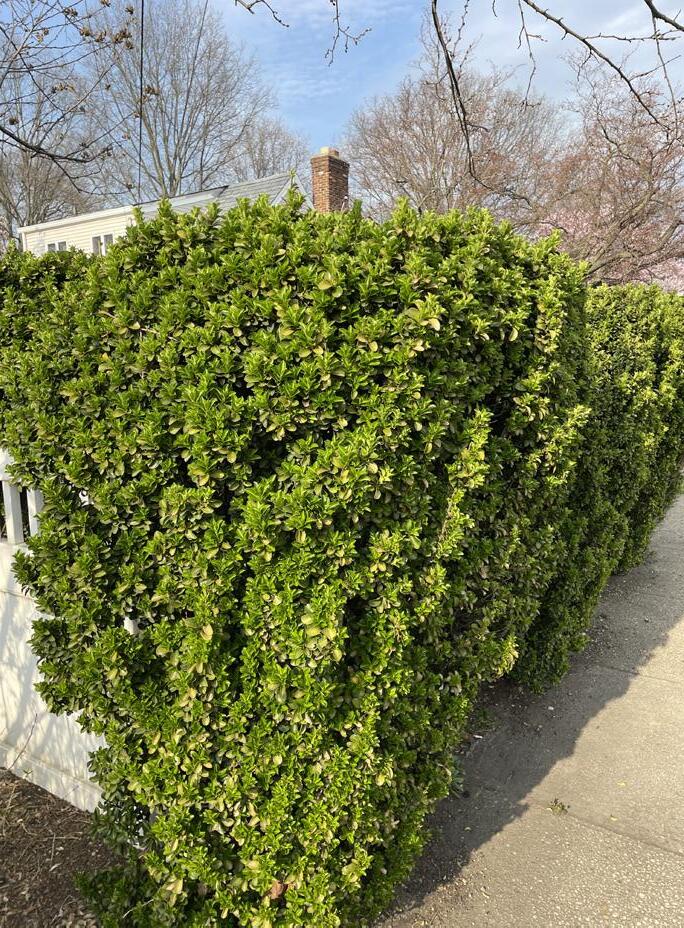
lar landscape attributes. Frankly, there are very few shrubs that can truly mimic boxwoods in the landscape. In the case where completely divesting yourself and your client from boxwood is just not an option, several cultivars of various species including ‘Green Beauty’, ‘Franklin’s Gem’, ‘Winter Gem’ and the New Gen™ series just to name a few have shown promise to disease resistance. But if you are interested in diversifying your landscape beyond boxwood, below are a few shrubs to consider.
The recommended alternatives offered have been grouped into ‘Tiers’. Tier 1 plants offer similarities to boxwood in foliage, growth habit, and landscape use. Tier 2 plants are somewhat different in texture and overall look but similar in landscape function and Tier 3 plants also offer similar landscape function but with additional features such as flowers.
Tier 1:
It’s hard for me to believe I am recommending Euonymus for any reason in the landscape these days with all the noted pest issues they are susceptible to but there are exceptions to every rule. Euonymus japonicus ‘Green Spire’ is a more compact version of Japanese Euonymus that have leaves that are quite similar in color and texture to boxwood and Japanese Holly. The upright habit and ability to take shearing well make it a possible boxwood replacement in the right situation. Euonymus kiautschovicus ‘Manhat-
by Vincent A. Simeone
tan’ is a larger and bolder shrub with a spreading habit and large, glossy leaves but it too can be shaped very easily into a hedge, screen, or foundation planting. Both selections should be closely monitored as scale insects can especially be problematic with Euonymus in general, although from what I have observed in many field observations, these two selections seem to be less affected than other evergreen Euonymus.
Ilex crenata ‘Soft Touch’ is an excellent compact selection of Japanese Holly with soft textured, dark green leaves and a mounded habit to 2-3’ tall and wide. It is ideal in a garden with limited space and can be pruned create a low hedge. ‘Hoogendorn’ is another low growing selection with emerald foliage that will reach 2’ in height with a spread of 3’. For a taller, more upright version of Japanese Holly if more height is needed, ‘Steeds’ is quite effective.
 Euonymus ‘Green Spire’ Hedge
Euonymus ‘Green Spire’ Hedge
54 February 2024
Ilex glabra ‘Shamrock’
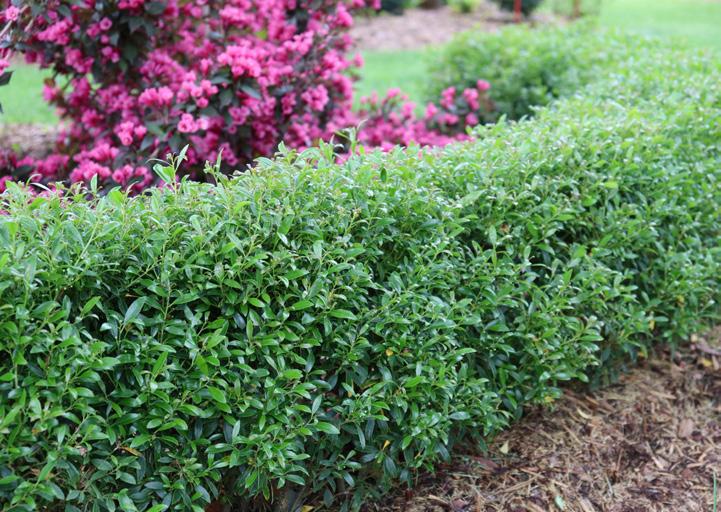
in place of boxwood. ‘Duke Gardens’ and ‘Fastigiata’ are two popular and available forms. Cephalotaxus is also exceptionally tolerant of heat, drought, shade and isn’t preferred by deer. Mature plants can be maintained at 4-6’ in height or more depending on frequency of pruning.
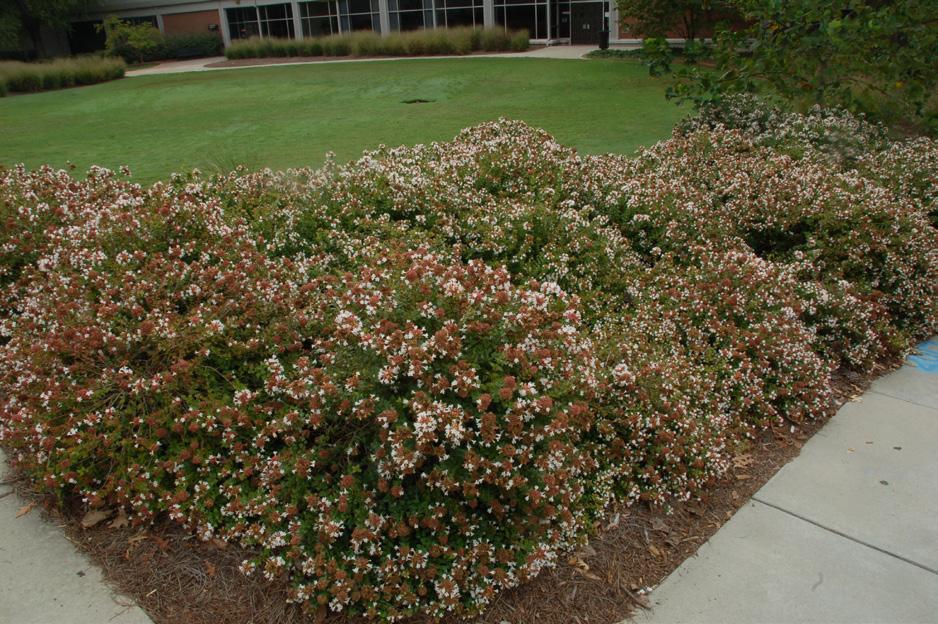
The native Inkberry Holly (Ilex glabra) is excellent for pollinators and birds and is a very heat and drought tolerant plant in the landscape. ‘Compacta’ is a selection with fine foliage and a mounded, dense habit to 3-4’but can reach up to 6’. ‘Shamrock’ offers glossy, deep green foliage and a uniform, upright habit reaching 3-5’ tall and wide. Two cultivars that have emerged more recently which are specifically designed as potential replacements for boxwood are Gem Box ®, and Strong Box ® which have been touted for their dense, habit, maintaining foliage to the ground and reaching 2-3’ tall and wide. These selections function well as an edging plant, formal or informal hedge and foundation planting. Strong Box® offers a slightly broader habit while Gem Box® is more rounded.
Tier 2:
Tier 2 plants offer a different overall texture than boxwood but can function in similar ways. For example, Cephalotaxus harringtonia, also known as Plum Yew, is a great replacement for Yew (Taxus sp.), but it can also function as a spreading, rounded or upright, sheared shrub
Another great native, Northern Bayberry (Myrica pensylvanica) is a dense, fast growing large shrub that also thrives in hot, dry, exposed locations and can be sheared into a more formal hedge, screen, or foundation planting. Female plants are silvery grey berries that are beneficial to birds, and it too is rather deer resistant. ‘Bobzam’ (Bobbee™) and Silver Sprite™ are too excellent garden varieties to try in the cultivated landscape. Be aware that typically Northern Bayberry is semi- evergreen in average winters, holding only some of its foliage.
Thujopsis dolobrata ‘Nana’, also called the Hiba Arborvitae is lesser-known shrub with exceptional qualities. While it looks like an arborvitae, the leaves are a bit course, and the undersides have disticum silver coloring. This plant can reach 3-4’ tall and about 6’ wide and is very effective in shade. Pruning can usually be kept to a minimum.
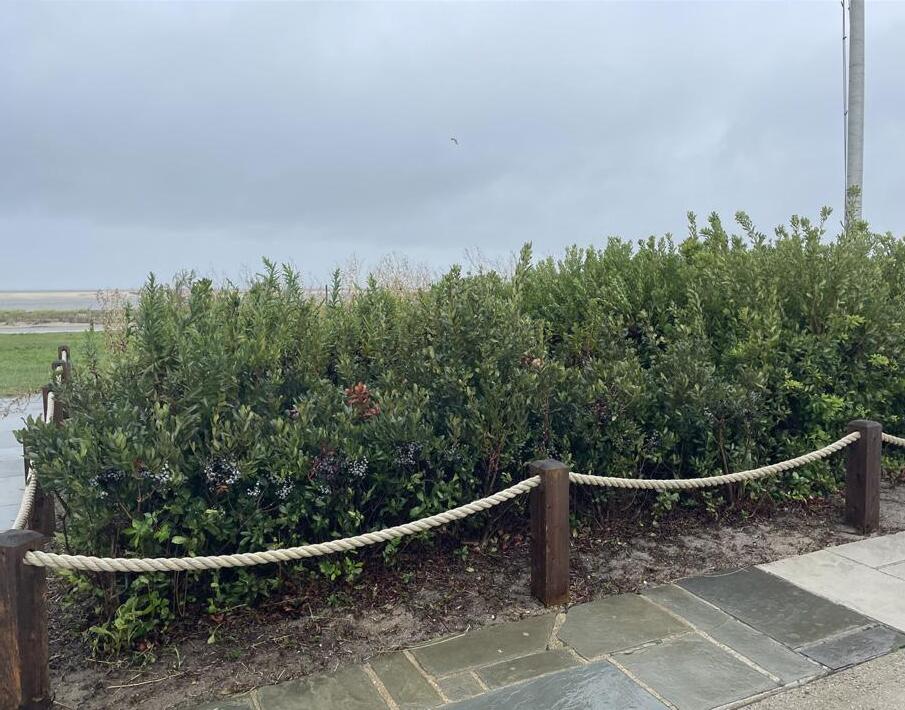
I also offer a rather new shrub to the region, Distylium sp. It is an evergreen in the Witchhzael family and is being used regularly in landscapes in the southeastern and MidAtlantic states. There are several hybrids and named cultivars including Blue Cascade®, Cinnamon Girl®, Coppertone ™, Emerald Heights®, ‘Vintage Jade’, ‘Athens Tower’ and Swing Low ®. This broadleaved evergreen typically has a spreading or upright habit like a Cherry Laurel and is very effective in shade. Distylium is heat, humidity, and pest resistant and is also known to be moderately deer resistant. How-
ever, it is best in zone 7 so it will be most reliable in coastal and southern areas of New Jersey.
Tier 3:
Abelia x grandiflora (Glossy Abelia) is one of the most versatile flowering shrubs available in the landscape. It is another semi-evergreen shrub with small, glossy green leaves, petite pink to white flowers all summer and into the fall, a dense, arching growth habit. It will take sun or shade, is drought, heat and pest tolerant and can be used as an informal planting or sheared into a more formal shape. Little Richard’ and ‘Rose Creek’ are two compact forms that require little to no maintenance to perform at a high level.
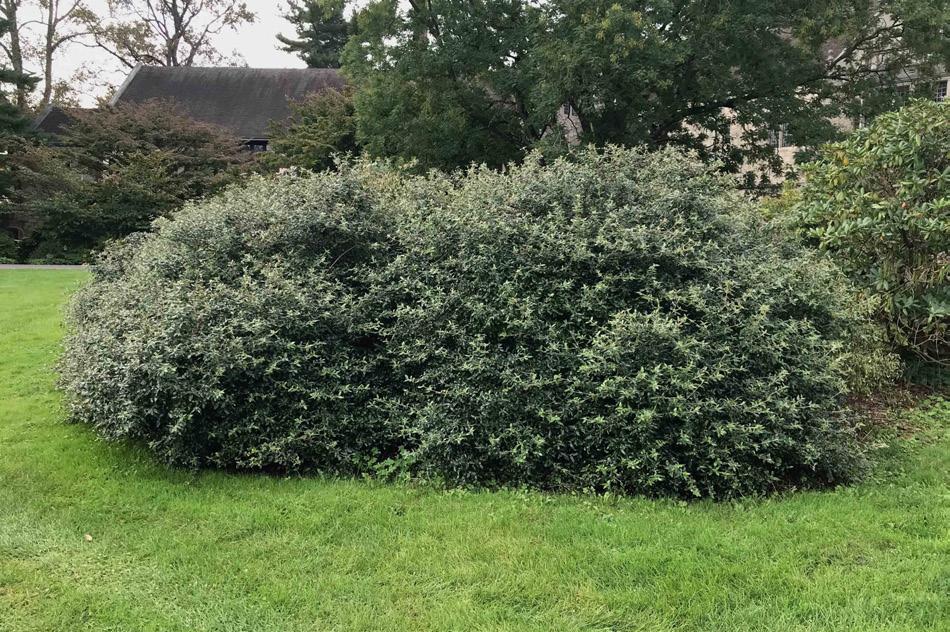
Skimmia japonica (Japanese Skimmia) is a fine evergreen shrub or groundcover that like holly is dioecious. Male plants have larger flowers than female plants, but the female plants display bright red berries in winter. Ideal in partial shade but also tolerant of full sun or full shade. Skimmia is deer resistant and can be lightly pruned to keep a dense
www.NJLCA.org 55
Ilex glabra ‘Gem Box’.
Photo: Proven Winners® ColorChoice®.
Myrica pensylvanica hedge at the beach
Abelia x grandiflora ‘Rose Creek’
Sarcococoa hookerlana var. humilis

flowers. Viburnum obovatum ‘Reifler’s Dwarf’, is an evergreen to semi evergreen viburnum with a very dense habit that takes shearing extremely well. Hardy to zone 6.
habit. Sarcoccocoa hookeriana var. humilis is another low growing shrub with sweetly fragrant creamy white flowers in early spring that can be used as an edging plant or in a foundation planting.
Two species of viburnum mentioned here are also worth considering. Viburnum x burkwoodii ‘Conoy’ is a low growing selection of Burkwood Viburnum with truly evergreen, dark glossy leaves, a dense, mounded habit to 6’ and fragrant white flowers in spring. Pearlific® is a newer hybrid with exceptional foliage, dense growth habit and masses of white
While we love boxwood for its beauty and versatility, there are many options in the event a change in your landscapes is needed. As we try to develop landscapes that are more sustainable over the long term, diversifying our plant palette is the first course of action that makes sense.
Except as noted, all photos in this article are courtesy of the author.
Vincent has worked in the horticultural field for over 37 years. He is currently the Director of Planting Fields Arboretum State Historic Park in Oyster Bay, NY where he manages the facility. He received an AAS degree in ornamental horticulture from Farmingdale State College (SUNY) and a BS in ornamental horticulture from the University of Georgia. He also obtained a Masters Degree in Public Administration

from C.W. Post- Long Island University. Vincent has specialized expertise in woody plant id, culture, use and selection of superior varieties. Het is an experienced lecturer, instructor and horticultural consultant and has published seven gardening books including a revised edition of a book on garden sustainability.
 Viburnum x burkwoodii ‘Conoy’
Viburnum obovatum ‘Reifler’s Dwarf’
Viburnum x burkwoodii ‘Conoy’
Viburnum obovatum ‘Reifler’s Dwarf’

Quick Reads
Tipping the Marketing Scale: Choosing Excellence in Two Key Areas
by Nicole Marsiglia, Borst Landscape & Design
As a marketer, I know all too well the pressures and demands that come with the job. From SEO to social media, eblasts to photography, and everything in between, it can feel like there’s always something vying for our attention. But in the latter half of last year, I came across a valuable piece of advice that has completely transformed the way I’m approaching my work in 2024: choose two things to do exceptionally well.
The truth is, in today’s fast-paced marketing landscape, the pressure to excel in every aspect can often leave us feeling overwhelmed and scattered. We’re constantly bombarded with tips, tricks, and best practices, all emphasizing the need to master every component of marketing to stay ahead of the game.
And don’t get me wrong, there’s no denying the value of a well-rounded approach to marketing. In an ideal world, we would be on top of every trend, executing
flawlessly across all channels, and leveraging the latest technology to its full potential. After all, marketing functions as a cohesive ecosystem, with each component working together to drive success.
However, the reality is that most of us in the landscape industry are not running large marketing departments comprised of multiple teams. Some don’t have a dedicated marketing person at all—rather, it’s an individual wearing multiple hats and marketing is a small part on their long to-do list. In such cases, prioritizing and focusing on two core areas is key to making the most out of your limited time and resources.
By acknowledging that we can’t possibly tackle every aspect of marketing flawlessly, while still focusing on two key areas, we create the opportunity for mastery. Deep diving into just two tasks will allow them to be the most effective they can be, ultimately leading to exceptional results.
Being a Woman in the Green Industry
My name is Anna McPeek, and I am proud to be a Woman in the Green Industry. I grew up in a lawn and landscape focused family and over years have had the opportunity to work with my parents, husband and son. I am currently the business administrator for a women owned small landscape business. I currently hold professional certifications from Rutgers including ProFact and Certified Rutgers Master Gardener and I am a licensed NJ Pesticide Applicator.
As many are aware the “Green Industry” has always been a very male dominated profession but over the past few years women with a passion for gardening and learning are stepping it up and choosing the green industry as their careers, not just a hobby. I have seen
an increase of women representing the green industry out in the field, behind the scenes at golf courses and sports fields, professional education roles and leadership at Rutgers, working in and running nurseries and in the corporate world selling landscape products (seed, machines, etc.). In today’s world women are expressing their knowledge and creativity for landscape design, flower design, irrigation design and achieving green healthy lawns for both residential and commercial properties and getting paid for it! Many women are now holding leadership positions and even running their own businesses!
If you have been out and about, you may have noticed the number of women attending yearly conferences, trade
Whether it’s bringing your photography and social media consistency up to par, homing in on direct mail and positive Google reviews, or focusing on SEO and website design, choosing two complementary areas to excel in will set you up for success.
In the end, it’s all about balance—but by placing a focus on those two things that will make the most significant impact, you can rest assured your efforts won’t go to waste.
Nicole Marsiglia is the PR & Social Media Director for Borst Landscape in Allendale, NJ.
 by Anna McPeek, Seasons Matter
by Anna McPeek, Seasons Matter
shows and education classes has increased year after year, and this has given women more networking and employment opportunities.
I can’t wait to see what the green industry will look like in another 5-10 years with technology, women in leadership and more education.
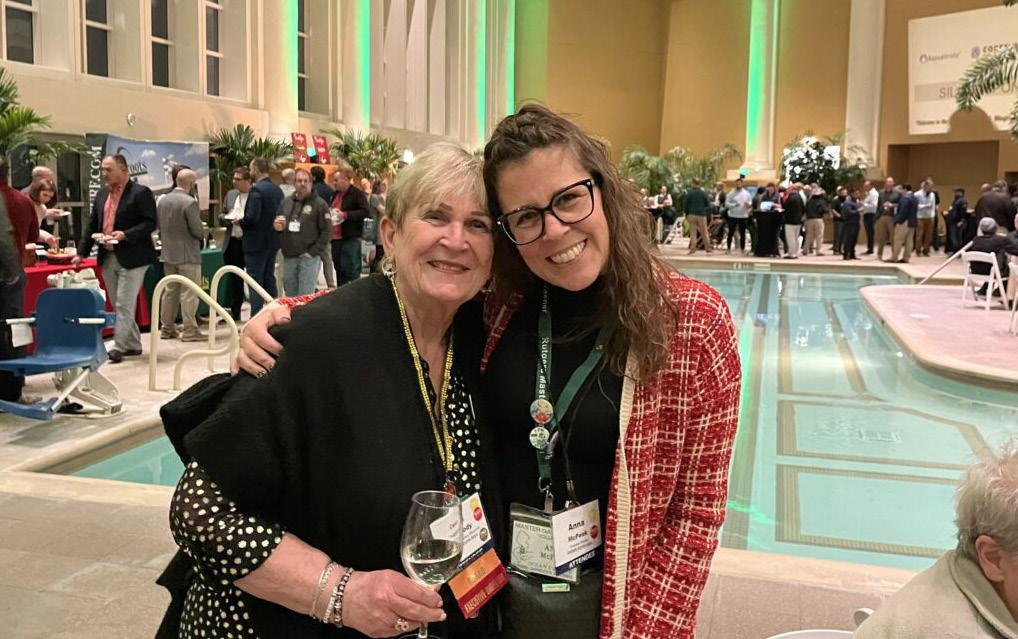
57 www.NJLCA.org
Cece Peabody (NJ Turfgrass Assn) with Anna at the NJ Green Expo
WELCOME MEMBERS...
A warm welcome to our new and returning members
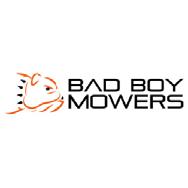





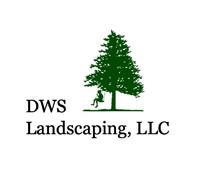

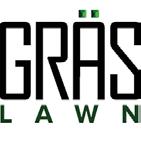
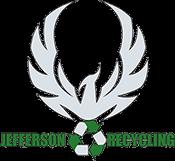


Bad Boy Mowers, Inc.
Larry Singer Batesville, Ark
BellaVista Landscaping
Anthony Melendez Fair Lawn, NJ
Boulevard Enterprises, LLC
Santiago Zacatzontel Passaic, NJ
Callahan & Faherty
Sean Callahan Fairfield, NJ
Cast Lighting, LLC
Jeff Hesser
Hawthorne, NJ
Central Lawn & Landscaping, LLC
Joseph Detoro
Parlin, NJ 08859
DWS Landscaping, LLC
Daniel Swift Mendham, NJ
East Coast Sod & Seed
David Smith
Pilesgrove, NJ
Gras Lawn
Richard Kozlowski Lakewood, NJ
Jefferson Recycling
Nita Galate
Lake Hopatcong, NJ
JP Light Trucking and Lawn Care
Priscilla Merta Washington, NJ
Manuel M Landscaping, LLC
Manuel Flores Englewood, NJ
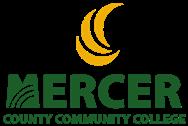
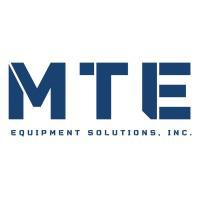

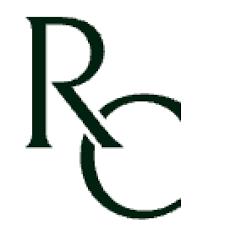





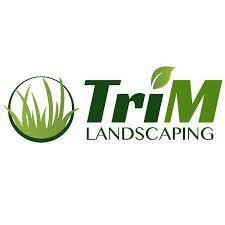
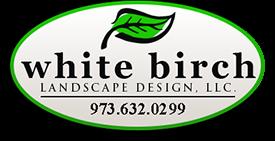

Mercer County Community College Horticulture & Plant Science Program
Amy Ricco West Windsor, NJ
MTE Equipment Solutions, Inc.
Craig Houseknecht Rochester, NY
Pacific Landscaping & Masonry
Diego Ortiz Middlesex, NJ
Riverview Companies
Daniel Peterson Moonachie, NJ
Root Landscape Architecture
Benjamin Heller Mendham, NJ
Rymar USA, Inc.
Víctor Caballero
Carlstadt, NJ
Salomone Redi-Mix, LLC
Carmelo Realmonte Wayne, NJ
Skytop Landscaping, LLC
Chip Nolan Navesink, NJ
Super Lawn Trucks
Alice Guidry Fort Valley, GA
Trim Landscaping, LLC
Todd Minshall Medford, NJ
White Birch Landscape Contractors
Vincent Colwell
Kenilworth, NJ
WR Biosphere, Inc.
William Boyce
Old Tappan, NJ
58 February 2024
SUSTAINABILITY AT CRYSTAL SPRINGS GOLF RESORT

Editors Note: Late last Summer, the NJLCA was able to connect Bill Errickson of Rutgers Cooperative Extension with Crystal Springs Resort. What follows is the result of that meeting and tour.
There is an opportunity for golf courses and resorts to have their landscapes be an oasis for biodiversity and pollinator habitat. In NJ, one place that has taken many steps to promote sustainability is Crystal Springs Resort.
Crystal Springs Resort is the Northeast’s largest year-round golf, spa, and culinary resort. Conveniently located in the Kittatinny Mountains in northern New Jersey, it is only 43 miles outside of New York City, making it the city’s closest luxury resort. Crystal Springs sports two hotels, two day spas, indoor and outdoor pools, and six championship caliber golf courses for guests to enjoy. With all of its amenities, what makes Crystal Springs special is its commitment to sustainability and environmentally conscious practices. Solar energy, landscaping with native plants, waste reduction initiatives, and sustainability programs for guests are just a few of the ways that Crystal Springs is keeping its commitment to sustainability.
Crystal Springs is home to a number of bee initiatives, working to create awareness for issues that are causing harm to bee populations, and creating a safe space for bees to pollinate and survive. The resort works in partnership with JCP&L and the New Jersey Audubon Society at the Black Bear Golf Club in Franklin, New
by Bill Errickson and Erin Quinn, Rutgers Cooperative Extension
Jersey to maintain a pollinator corridor which serves as a bee, butterfly, and bird habitat for local species. This project began in 2016, when the land in the JCP&L transmission line right-of-way was cleared, and plants native to New Jersey, including grasses and wildflowers, were planted in place of the previous invasive and non-native species. The result of this work is a large, beautiful area where bees, butterflies, birds, and other wildlife live and thrive located right in the middle of the golf course.
The bee initiatives also extend to the overall landscape design of the resort property. The golf courses and other areas surrounding the resort have been landscaped with an incredible variety of
plants native to New Jersey, and other pollinator plants to give bees, birds, butterflies, and other pollinators an array of plants to feed on and live off of. These plants were chosen and displayed in such a way that allows for blooms and changing foliage colors in every season.
Crystal Springs is also home to the largest resort-based solar farm in the northeast, making it the region’s largest solar powered resort. The solar farm comprises twenty-five acres with over 19,000 solar panels, generating 3.5 Megawatts of electricity annually. This is more energy than it takes to power the resort’s two hotels each year.
Crystal Springs is well known for their culinary programs, where they source food
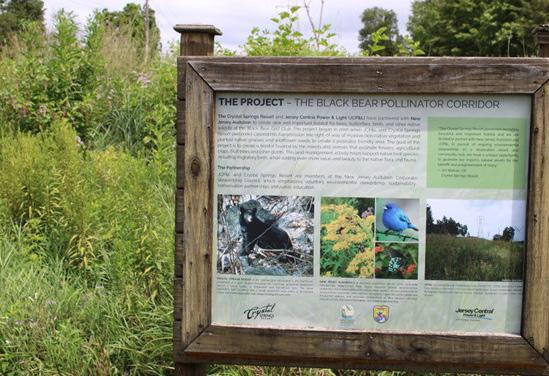
www.NJLCA.org
59
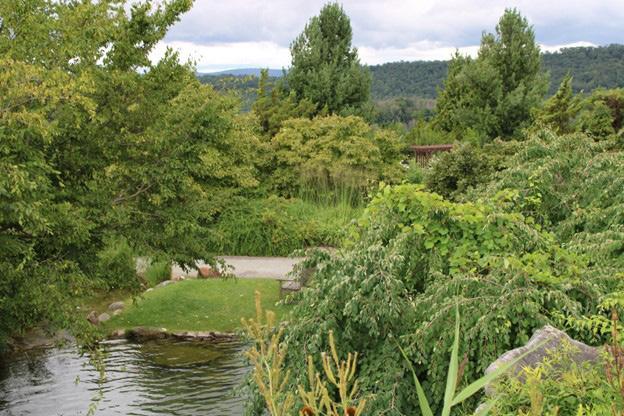
locally to contribute to the ten restaurants on the property. The resort also has a kitchen waste management program, where chefs use peels, trimmings, and bones to make stocks, cures, fermentations, and other tasty creations. The staff makes it a priority to keep track of food inventory and use levels, as well as consumption rates and recipe changes. This allows Crystal Springs to significantly reduce food waste at their facilities, while also offering their customers delicious, unique, homemade dishes.
Crystal Springs also gives back to their community by publicly partnering with local growers and producers who provide food for the restaurants on the property. Their website (www.crystalgolfresort. com/culinary/culinary-offerings/localgrowers-producers) provides information about where their food comes from, and what each farm, market, and orchard has to offer as well as their locations and contact information to increase consumer awareness of the available options for locally sourced foods.
Crystal Springs has also found many ways to increase sustainability outside of the kitchen. The staff constantly hosts
sustainability themed group activities, including guided nature walks on the Appalachian Trail, cooking classes using foraged ingredients, restorative yoga, rock climbing, sustainable farm tours, stargazing, grow your own mushroom
small part of the greater efforts that are being implemented at Crystal Springs, and the impact that the resort is making on their community and surrounding ecosystems. Running on solar energy, conserving water, growing and sourcing local foods, teaching visitors sustainable practices, and landscaping with native plants are only a few of the many ways that the resort has been able to keep their commitment to sustainability and resource conservation. Crystal Springs
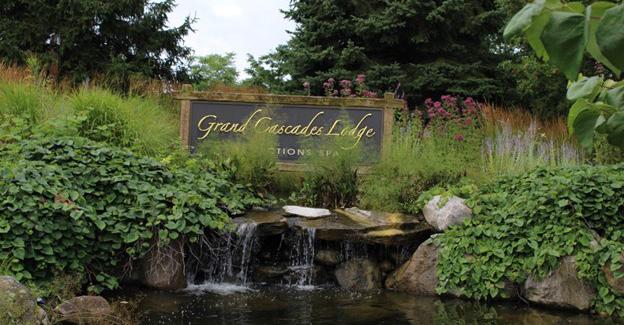
courses, plant-based protein cooking classes, food preservation classes, plant dyeing classes, essential oils workshops, forest bathing sessions, fishing, and many more. Crystal Springs even reuses the water in its ponds by running the water between ponds to allow for small waterfall displays and a thriving environment for koi fish populations. These programs make the resort an amazing resource for visitors to learn more about their environment and how to use natural resources more sustainably.
These initiatives demonstrate just a

Resort is setting an excellent example for the possibilities of sustainable practices that are available for resorts, golf courses, and restaurants to implement, and offers a glimpse of the environmentally friendly future that many people are hoping to see come to life.
For more information, visit https:// www.crystalgolfresort.com
William Errickson is the Agriculture and Natural Resources Agent for Rutgers Cooperative Extension of Monmouth County with a focus on sustainable nursery production, turfgrass management, and agricultural innovation. His current programs involve supporting New Jersey’s green industries in their efforts to improve biodiversity and conserve natural resources through ecological management practices and increased production of native plant species.
Erin Quinn is a recent graduate of the Rutgers University School of Environmental and Biological Sciences Department of Plant Biology and Pathology. She has worked as an intern with Rutgers Cooperative Extension for the last two years, focusing on native plants for New Jersey’s ornamental landscapes.
February 2024

TALES FROM THE LANDSCAPE SIDE
NJLCA MEMBERS AND THEIR ADVENTURES
In the mid-summer of 2020, I reached out to our members to ask about their most memorable customers. I expected horror stories of the worst, most demanding, craziest and funniest customers. What I ended up receiving was truly amazing. Most of the stories you sent in to us were heartwarming and spoke of your favorite customers, those that took time to reach out and tell you what an impact you had on their lives, those that became like family and those that became lifelong friends. I also received some funny and wacky customer stories, but even those didn’t talk of the angry and discontented customers I had expected. I decided that instead of creating one story, I will include a few in each issue of The New Jersey Landscape Contractor. So, keep those stories coming to me, the good, the bad and the ugly. You can send your story to gwoolcott@njlca. org (along with pictures if applicable) and I will include them in this column in future issues. Thank you all for brightening our days with some of your tales from the landscape side!
~ Gail Woolcott, Executive Director
An Unexpected Package
by Mark Graser, Custom Groundskeeping
After reading Shelley Hewson’s (Hewson Landscape) piece a few issues ago, titled “Hostile on the Property”, I had a flashback to a somewhat similar 9/11type situation from many years ago.
I had been working for Dave for several years, maintaining his yard adjoining a public golf course here in Central Virginia, just northwest of Richmond. I would consider the house high-end residential – which is my niche- but Dave was a rather low-key kind of guy; certainly, belying the fact that he was a top-notch
Federal Prosecutor! He had a high success rate in prosecutions and often won deathpenalty convictions.
I can’t remember how I found out (probably the Richmond Times-Dispatch), he certainly wouldn’t tell me straightforward, but he had been chosen as the lead prosecutor in the Zacarias Moussaoui 9/11 case!
This all seemed to make sense when one day I pulled up to the house and there were these HUGE floodlights (2-3?) sitting on the ground aimed at his house. I’m sure his neighbors, though well-spacedapart, were thrilled.
I ask Dave about them, and he does admit that the Feds were responsible, along with internal house security. He confides that it IS related to a case he’s about to begin. I don’t ask and he doesn’t volunteer anything further.
Anyhow, I pull up to the house several weeks later and do my weekly maintenance. I also touch base with his wife, as usual, before I leave. She’s got her hands
full with their newborn and three-year old toddler and asks me to go to the mailbox to check on a package she was expecting.
I oblige and come back to the door with a shoebox-size package and as she opens the door I suddenly realize: W.T.F.!!! This could be a bomb! I mention it to her, and she laughs! Me, not so much!
I related my “concern” to Dave himself weeks later and got a somewhat similar response, with the assurance that the Feds had everything under control, including 24-hour surveillance of him and his family.
Fast-forward a few years later. Dave won his conviction but did not get the death penalty verdict. Mr. Moussaoui currently resides in a Federal Supermax prison in Colorado for the rest of his life; the only 9/11-related conviction ever.
Dave’s workload lessened thereafter, and he started maintaining his own yard again. He is now a Federal Judge for the Richmond, Virginia Circuit.

61
www.NJLCA.org

Price is not the primary reason purchases are made, nor the reason customers leave. Instead, poor service is the number one reason customers leave. Customers pay for quality. There is a cost associated with expertise and it comes at a premium. If you want others to perceive you as an expert, then you must charge a premium fee. If your pricing mirrors your competition and not your value, you discredit yourself.
Like with every profession, having experience is advantageous. The same is true for landscaping. Some landscapers may have a natural talent when starting out, but experience is beneficial. Whether you have a degree in horticulture or gained experience over the years, you need to provide your customers with a wealth of knowledge. Professional landscape contractors should know their plants.
Plants are the foundation of our outdoor environment. They can modify temperature, wind, and light. A wellthought-out landscape can provide many benefits including: protecting natural wildlife, acting as natural coolants, environmental cleaners, water protector, balancing man-made with natural, boost property value, enhancing quality of life, connecting with nature, noise

minimization, and creating functional area in unused spaces. Whether they are being selected for appeal, screening, stabilizing a soil bank, or function, you are selling a product to provide more value to someone’s largest life purchase.
Providing your customer with the right plants all starts with what you purchase. Purchasing a cheaper product may result in plants that lack nutrients or contain a root system leading to premature death. Poor quality plant material can contain diseases and pest problems which may infest your customers’ landscapes upon exposure. Purchasing quality plants can save you extra costs down the road. What should you consider when purchasing plant material:
• Uniformity is important.
• Proper nutrients.
• Pest Management.
• Proper staking.
• A well-developed root system.
• Proper pruning.
• Firm, moist root ball or container soil.
• Well-developed buds, and branches.
• Delivery methods-boxing, packaging, stacking, and transporting.
What’s your competitive advantage? Trade organizations, extension offices, nurseries/ wholesale growers/ garden centers can assist you with any questions or areas you want to learn about in the landscaping industry. Additionally knowing your customer, their site, and providing attention to detail provides
value. Advise customers of what they need by providing the right material for their site. Start by considering the plants’ future size, shape, and overall appearance as well as the cultural requirements (plant hardiness zone, moisture, soil type, light, shade, etc.). Next, provide diversity in a customer’s landscape. Beyond building color, texture, and resilience, a diversified landscape attracts a diversity of pollinators and wildlife, increases soil microbial diversity, and protects against species loss. Lastly, give instructions and guidelines on proper care of the plant once it is planted and the required maintenance during the first year.
Providing knowledge is the best value you can offer, and you deserve to be paid for this value. Your value is not predetermined in the presence of competition but is rather defined by what sets you apart in the landscaping industry.
Shannon E. Herbst is a Sales Representative for Michells - America’s Wholesale Horticultural Distributor. She brings 35 years in the green industry and owned a landscaping company for 11 years in Maryland. Her company was a WBE/ DBE and performed seeding, sodding, and planting for State and Federal projects. She holds a Bachelor of Science in Business Administration/ Management.
In addition, she has been an ISA Certified Arborist for over 10 years and holds her pesticide license in Pennsylvania.
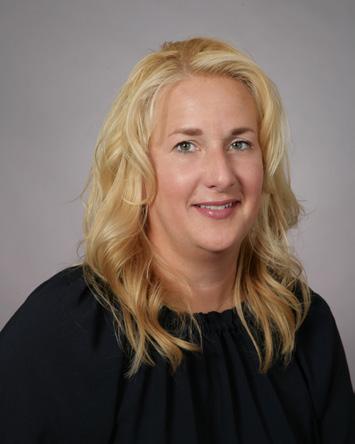
62 February 2024
What is Longleaf Pine Straw Mulch?
by Bill Strock, Mid-Atlantic Pine Straw Mulch
Longleaf pine ‘straw’ - pine needles that have fallen during the natural shedding of the Pinus palustris pine tree, from which, the needles or “straw” are used as mulch. The Longleaf pine tree is predominantly found in the Southeastern portion of the United States. However, pine straw mulch is being increasingly used throughout the entire country and is widely coveted for its ecological benefits and unique aesthetics.
Pine Straw Mulch is a natural weeddeterring mulch that creates a unique texture to any landscape. In gardens, it provides a blanket-like protection to plants and seedlings during harsh temperature changes. Pine straw temperature remains ambient, unlike wood or other various mulches which can scorch or freeze tender seedlings. Pine straw provides insulation to roots and tender plants.
Typically sold in “bales” (smaller than a traditional hay or straw bale), pine straw is primarily used for general top-mulching material in flower beds, vegetable gardens, around shrubs and trees and in various natural areas. Pine straw mulch can also be used for unconventional uses, such as bird nesting material, zoo habitats, dog runs, walkways, steep hillsides and embankments.
Longleaf pine straw mulch comes from “stands” - tracts of land specifically used to grow longleaf pine trees for the sole intent of harvesting longleaf pine needles. Some of these “stands” are privately owned/rented and some are government-owned and leased to suppliers. Once the needles fall from
the trees, they are raked and crafted into individual bales. The bales are formed into rectangular or cylindrical shapes, depending on the mechanism used for baling. Pine straw should be inspected for invasive species prior to distributing it out of its native region. It is then transported to various parts of the country for resale and consumer use.
Pine straw is often referred to “the southern mulch”. The majority of the population in the southeastern United States, do in fact, use pine straw mulch due to the immediate local availability but it can be used in all parts of the country.
Pine Straw mulch is environmentally friendly (trees are not destroyed); as opposed to traditional hardwood bark mulch production in which a tree is cut down to produce “chipped” or “bark” mulch. By hand-baling the pine straw and replenishing the longleaf pine forests with new longleaf seedlings, pine straw aids in carbon sequestration and offsets negative climate change. The education of consumers about the benefits of pine straw mulch creates more demand and subsequently more trees are, in turn, planted- enriching our biosphere.
Using pine straw mulch also contributes to the sustainability of the Longleaf ecosystem which is one of the most ecologically diverse in the world and is home to some of the rarest and most unique plants and animals on the continent. Using pine straw mulch contributes to the sustainability of the Longleaf ecosystem which has been reduced to less than 7% of its original range. The Longleaf ecosystem is a carbon ‘sink’, which simply means that it stores more carbon than what is released. There is no mulch other than pine straw mulch that is available that provides the benefits of a traditional mulch combined with the environmental, conservation & ecologyminded benefits.
Although longleaf pine straw (needles) is widely used for mulching applications, it is still not the frontrunner in the mulch industry. The mulch industry is historically unprogressive. Unsubstantiated trends (ie using hardwood mulch) have resulted in nominal change in mulching products offered in most parts of the country, specifically the Mid-Atlantic and New England states. In these geographic areas, hardwood mulch has been the mainstay, despite it being a nonrenewable resource and far from the ideal environmental choice for most landscaping projects.
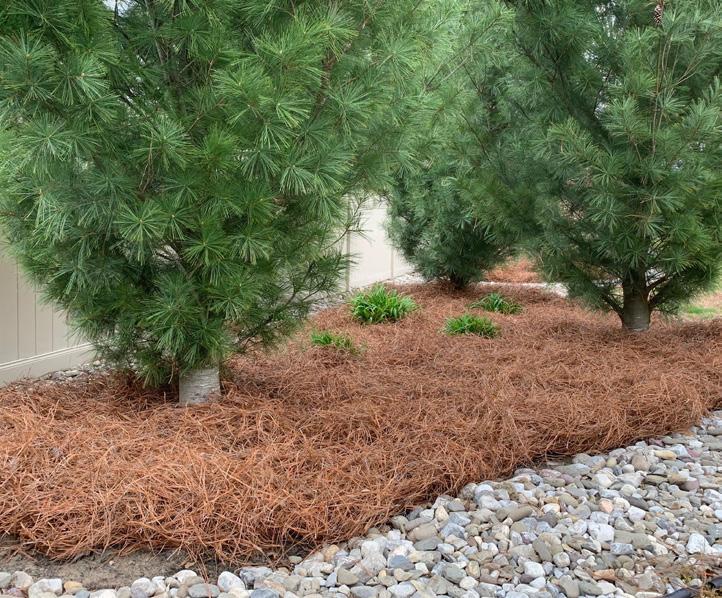
Consumer attitudes, perceptions and behaviors are gradually evolving toward the initiative to demonstrate more social and environmental responsibility and awareness. Pine straw mulch being an obvious natural, renewable, sustainable ‘mulch’, is gradually leading many to the acceptance and adoption of using of pine straw mulch in lieu of hardwood mulch is and is being welcomed as the-mulch-ofchoice for many.
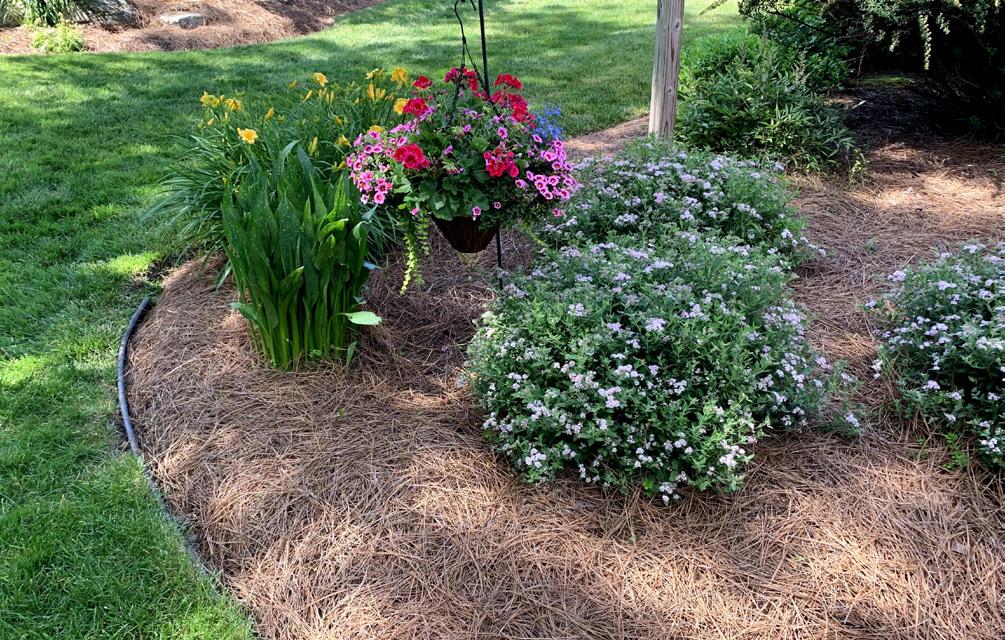
Mid-Atlantic Pine Straw Mulch Inc is a small family-owned and operated business located in Southeastern Pennsylvania, servicing the Continental US. We are staffed by subject matter experts (re: longleaf pine straw) and provide a superior quality product.
Our initiative includes educating customers about the many benefits of pine straw mulch and why it is an ideal mulch for all parts of the US. We supply a natural, renewable, and sustainable mulch without sacrificing environmental integrity. We look forward to working with you. For more info, visit www. midatlanticpinestraw.com.
63 www.NJLCA.org
HARVEST THE LOW-HANGINGFRUIT WHILE CLEANING UP !

Keeping with this year’s Trade Show theme, America the Beautiful, I thought I would bring a couple of my worlds together and offer advice to contractors looking to expand their income potential, simply by helping to clean up their local portion of America. Contractors who are willing to do a little of the groundwork ahead of time can “clean up” by getting on municipal bidding and local contracting sites. Emergency clean-up and park or site maintenance can be great steady income producers. As a collective group, we were all aware of the issues created by the Emerald Ash Borer and the storms that batter our areas. There are several ways for municipalities to deal with issues like EAB and storm work, one is a planned approach, which for local government entities, rarely can happen for these events, and the second is to declare an emergency. The question is. How as contractors do we utilize our resources and bring back the natural beauty?
From my early agrarian business days
by Roger R. Locandro, Pun’kin Hollow Farms & Roger Locandro Jr., Inc.

(Ag Econ, Cook College BS), I studied smaller business models to understand why some farms work and others do not. We know in farming it is hardly ever from the lack of work effort. One of the best models for farms and small businesses is perhaps the General Farm Model. The economic principle is to create income sources from a variety of streams and distribute those incomes over many months. This theory of diversity for income is not limited to agrarian events, it’s also utilized by people in the stock market. Investors routinely direct us to “diversify our investments.” As business managers, we are making investment decisions daily, routinely, and rapidly. For contractors, one of the most critical investment decisions is time. How we maximize our labor’s time through our equipment and capital is critical for a successful project. If you have the equipment and do not use it at the end of the day you still have it, capital can grow if it is in a bank. When a manager fails to apply time correctly it is irreplaceable. An accountant may tell you that you will experience a negative return on your capital if you are paying for labor to stand idle.
Municipalities, schools, and other government institutions suffer greater labor problems than private industry. Government entities move slowly, and employing any person requires a longterm commitment. Current-
ly, the trend is growing in many municipal entities to rely on sub-contractors, especially for items that will not be repetitive. These items include, but are not limited to; storm events, snow plowing, removing all the dead ash trees, chemical applications, tree planting,
The key to successful municipal contracting is a good relationship with the purchasing process. Fortunately, there is a process, how you embrace it will increase your success. Purchasing Agents often are not aware of the skills, nor the effort required to do the project. What they know is their rules, prescribed by the State of New Jersey that explain how they can award contracts and distribute money legally and openly. Their employment is related to how well they monitor the process, not whether the project is completed.
So, the goal is to be prepared, be aware, be ready, and be professional.
The items you will need are: a Pay to Play form, a Business Registration Certificate, insurance, a Public Works Contractor Certificate, and an understanding of Prevailing Wage if applicable.
The first and often the most daunting are the “Pay to Play” forms. 19:44A20.4 & 19:44A-20.26. There are two; one is called Fair and Open and the other is called Not Fair and Open. They’re both focused on political contributions. My advice is to fill out the appropriate form and move forward. If you make political contributions or not, be open and honest.
64 February 2024
A Business Registration Certificate. 34:11-56.
Insurance, if you are working in New Jersey, you have insurance, it’s part of doing business. If you own anything personally and don’t want to lose it, you need insurance.
A Public Works Contractor Certificate. 52:32-44.
Do not fret prevailing wage is not required for every project. 34:11-56, when it is it’s required, it may level the bidding field.
Having the package together in one emailable file is helpful and secures the goal of being prepared. The next step is to make both yourself and the project managers aware. Searching the local municipalities and government entities for Requests for Proposals is an easy task. If the directors of facility management or public works are aware that you’re ready and able to help when needed if an emergency occurs, they can call on you. Do not keep your services a secret. If you have made the connection previously it’s an easy phone call, especially if you’re already on their speed dial. The next piece of advice I preach must be taken carefully. I used to say that everybody eats lunch and everybody sips coffee. An easy way to make a connection is to have a cup of coffee or lunch and make a connection. However, with open public contracting, you must be very careful and not be overly generous with anybody who can award you work. That said friends and people who work together have lunch or coffee all the time, but extravagant gifts are illegal.
Once you are on the job, always be professional. Prepare and educate your employees to be more professional than everyone around them. Company shirts are good for identity and manners are important. Your employees are guests in someone else’s workplace. If they’d like to be invited back, they need to conduct themselves as good guests should. Managers need to lead by example here, good employees will follow your lead. There will always be a range of reactions from the groups you’ll be working with. Some people will respond with, “Oh thank God the cavalry is here,” while another group may say, “Wait you’re taking my job.” During my tree-moving career, I often worked on Union Sites. I did most of those projects myself as an owner-operator. Owner-Operators could be on the site with a lot less paperwork. On a project in New York, I was assigned an operator who rode around all
or accounts payable department to work with. These focus on the purchase order and the process. You want to embrace the process and think of the word “order” as keeping items organized to flow. Understanding this order will prompt payments in a timely fashion making the purchasing process easier. Remember the person who pays the bills needs a narrative explaining what was done on the Purchase Order provided, signed correctly, in whatever manner they deem appropriate. In the building code departments, they call it the AHJ (Authority Having Jurisdiction.) If you want the payment to go as smoothly as the work did, then understanding the requirements of the person with jurisdiction over it is necessary.
If contractors can prepare and align their business models and services with the needs of local contracting agencies, there is low-hanging fruit to be harvested. Landscape Contractors, regardless of the scope of the project are easy candidates to “Make America more Beautiful!” Especially if the low-hanging-beautiful fruit is a paid purchase order for a job well done!

Roger R Locandro holds a Master’s Degree in Public Administration, a BS in Ag Economics, Is NJDCA Registered as a Municipal Clerk, a Qualified Purchasing Agent, a Certified Public Works Manager, and an Affordable Housing Professional.
Once you are prepared and aware you must be ready. When I say ready, I mean ready to do the work. I used to preach to my crews that I wanted all the equipment aimed out. All equipment at the end of the day is ready to go, especially in the winter. Employees coming in at 2:00 in the morning and having to fuel equipment is ridiculous, time-consuming, and dangerous. I applied the same theory for storm work as well, having to sharpen chainsaws before you go out in an emergency reduces response time. Even flat tires reduce efficiencies and contractors get pushed to the bottom of the call list. Being ready for emergency work is being the second wave of first responders.
day, he never spoke. Ron Swanson from Parks and Rec would say, “Best worker I ever had, we still don’t talk to each other often.” When I was in Atlantic City the union loader operators tried to chase me off the site. Fortunately, their boss came out and explained if I got the trees out of the way they could get to work. The comedian Ron White would say “I don’t know how many people it takes to kick my butt, but they had plenty.” With a good work ethic, a professional outlook, and an understanding of what their long-term employees need, I was rewarded with repeat job requests. Often, I just had to reinforce the fact that I was there to help.
Lastly, the most important thing the company owner can do is understand billing. Another mantra I love is, “It is not what you did, it is what you can bill for!” There were several programs for the QPA’s
As a local mayor. He has performed the duties of Police and DPW Commissioner. He has built a police facility, negotiated contracts, labor, and procurement, and dealt with Hurricane Sandy and two other flooding events.
Roger is also the owner and operator of Roger Locandro Jr., Inc. a construction company, Pun’kin Hollow Farms, a nursery that focuses on large tree growing and moving, and Energy Smarts Mechanical, a company that focuses on net zero geothermal solar base company providing highefficiency solutions for heating cooling and electrical generation.
As a contractor, he has worked with projects from 1 to 10 million dollars. He has managed projects with multiple contractors, managed payroll for up to 38 employees and he has even worked for the Nigerian Government briefly.
www.NJLCA.org 65
NORTH JERSEY ORNAMENTAL HORTICULTURE SYMPOSIUM: YESTERDAY, TODAY AND TOMORROW
 by Joel Flagler, Rutgers Cooperative Extension
by Joel Flagler, Rutgers Cooperative Extension
For 63 years the Rutgers North Jersey Ornamental Horticulture Symposium (NJOHS) has been a popular and important event for countless professionals in the green industries. This training series is the oldest continually offered program in all of Rutgers Cooperative Extension, and there are some good reasons why it still is held in high regard. The team of Agricultural Extension agents who deliver the multi-day series work hard to secure the best experts from Rutgers and other land-grant universities, along with the brightest stars in industry. In this way the attendees get the most up-to-date information and problem-solving technology to prepare them for the coming growing season. Over the course of three days, we train hundreds of professionals. On Turf Day, we reach professionals who manage lawns and corporate campuses, golf courses, ballfields, parks and cemeteries. Tree Day attracts arborists and tree experts and professionals who manage urban and suburban forests and street plantings. Landscape Day is for landscape contractors who serve thousands of private and com-

mercial properties all over North Jersey. Rutgers Master Gardeners also attend this program.
Rutgers Cooperative Extension evaluates its programs and outreach methods to be sure they work and allow for improvements as needed. The NJOHS is unique in that we have a very high number of repeat attendees, allowing to see the impacts of our training over time. We are able to measure improved practices and also adoption of IPM tactics, soil testing and more. Thus, we are able to demonstrate that as a result of our training, fewer applications of chemical pesticides and unnecessary fertilizers are being made. This is a huge benefit for the environment. With soil testing results in hand, it becomes clear that less inputs are actually needed in most lawns and landscapes; with greater attention needed to manage optimal pH levels in the soil. Adjusting the soil pH works to release nutrients that were present but unavailable to the plant.
Other key outcomes include: more communication with clients—a need that nearly all homeowners complain about. Ongoing dialog between client and service provider eliminates incorrect assumptions and fosters a sense that everyone is pulling in the same direction. Through evaluations we also see greater use of monitoring tactics to detect pests and cultural problems early on. Likewise, professionals are including Monitoring in their overall menu of services. Simple monitoring tactics include systematic observation, sticky traps and pheromone traps. Monitoring lets us know with certainty which pests are present, and which are not.
Evaluations also tell us that professionals are improving their business practices, and this includes maintaining pesticide licenses with the NJ Department of Environmental Protection
66 February 2024
Pesticide Control Program. Many have encouraged their employees to also become licensed applicators and stay current with training that will help them do their job more effectively. Pests do not stay the same year after year. We have seen new and emerging pests that demand our attention and focus on new management regimens. Some of the recent newcomers include Beech Leaf Disease, Emerald Ash Borer, Sawflies, Spotted Lanternflies, increased Phytophthora infections, Needlecast and many more. Often, the old way of ‘doing things’ is no longer the best way. Rutgers and the NJ Agricultural Experiment Station update their Best Management Practices (BMP’s) yearly to keep up with what the science tell us. Participants tell us that they believe they are able to make more informed decisions about pest control as a direct result of this training. They also have a clearer understanding of Plant Health Care and appreciate the benefits of focusing on plant wellness and pest prevention.
take by plants. The nutrients are locked up until the optimal pH range is restored. Overlimed soils are everywhere. It is due to people applying amendments by habit and not by science. Lowering high soil pH (using sulfur products) can be risky with potential phytotoxicity danger to plant life. It is easier to raise the soil pH if it falls too low, using prescribed amounts of limestone. The key is to test soil before amending with anything. One other deficiency often seen in suburban landscapes is potassium deficiency. This is easy to correct with prescribed amendment, using a fertilizer that has only potassium— the 3rd number in a fertilizer formulation and represented by the letter K. An example would be 0-0-5.
According to feedback from professionals, landscape contractors save anywhere from $500. - $8,000. per year by eliminating unnecessary soil amendments through soil testing—as promoted by Rutgers Cooperative Extension. They are also saving on pesticide applications as monitoring and Biorational approaches show that less is more; fewer pesticides are being applied unnecessarily and at the wrong time of year.
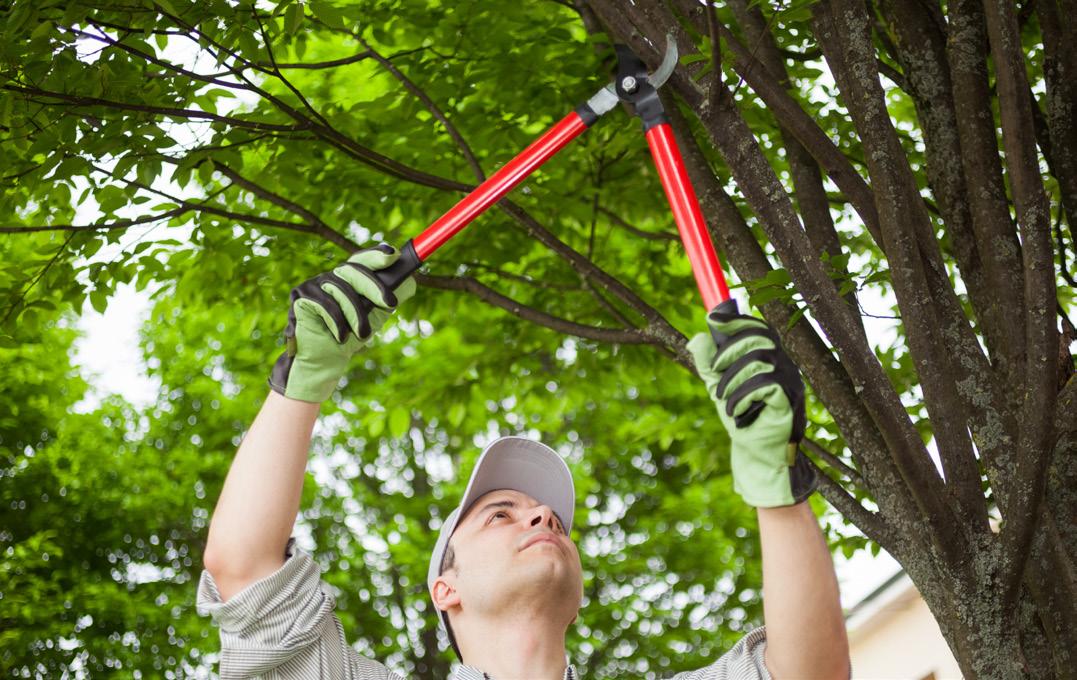
The training provided through the NJOHS also works to bring about additional improved business practices, according to evaluations from participants. The increased use of IPM tactics like monitoring and soil testing has resulted in fewer inputs to the gardens and landscape. Soil tests, in general, show that many soils are overmanaged in the northeastern counties. This means that applications of limestone, in particular, and phosphorous fertilizers are being made without regard to existing pH levels and nutrient profiles. When soil pH is already in the optimal range (around 6-6.3) the addition of limestone raises that pH. Over time you get alkalinity levels that do not allow nutrients, though present, to go into solution and be available for up-
Another IPM tactic that Rutgers promotes widely is the use of pest-resistant species and varieties. Selecting plants that are less likely to get infections and infestations makes good sense. The key is to familiarize ourselves with the options and learn to temper what we expect from plants. We see greater use of native plants, which are well-suited to our climate and zone and often able to resist pests better than exotic species and varieties. No plant or tree is perfect. Yet, we can come to understand the plant’s strengths and weaknesses and make wiser choices for sustained performance and gratification.
Many of our attendees have been participating in the training series since before it was called the NJOHS. Decades ago, the multi-day program was called the Robin Hood Inn, after the venue in Clifton. In recent decades we have been at home in the County College of Morris

in Randolph; a comfortable and learnerfriendly auditorium. It is appropriate that we look back and remember the Rutgers Agricultural Extension Agents from the northeastern counties who delivered the training in the early decades. They include Jack Kupcho, Jonathan Forsell, Aubrey Hampton, Bruce Van Duyne, Ed Milewski, and Steve Bachelder. I joined the team in 1987 and we had outgrown the Robin Hood Inn by the early 1990’s.
The current team includes: Pete Nitzsche, Madeline Flahive DiNardo, Amy Rowe, Jean Epiphan and me. The multiday program is still rated as “highly valuable” in participant evaluations. Over 82% claim they are better able to make informed decisions, especially about pest management, as a result of this training. That alone means a lot, and it tells us we are still meeting the needs of green industry professionals.
Mark the calendar and join us when January rolls around again. Everyone is welcome to attend. It is the best way to prepare for the next growing season that lies ahead.
Joel Flagler is the Rutgers Agriculture and Natural Resources Extension Agent for Bergen County. He has served in that role for 36 years. Joel has his Master’s Degree from Yale University and his BS from Rutgers. He has many published peerreviewed articles and is the recipient of many national and regional awards.

67 www.NJLCA.org
Rendering of the Robin Hood Inn in Clifton, NJ


ASSOCIATE FOCUS: PLANT DETECTIVES
Plant Detectives was founded in 1996 by Art Laster in Ramsey, New Jersey. The operation moved to Chester, New Jersey in 2001 and has called their 10 acre location “home” since. Art’s original mission was simple, yet still guides them today; provide high-quality plant material.
One visit to their Chester nursery and you’ll understand the Plant Detectives difference. Their large caliper trees, specimen evergreens, and Japanese maples are New Jersey’s finest. They take pride in their commodity nursery stock, but if they don’t stock what a project requires, they’ll do their best to accommodate special orders. Plant Detectives also offer an extensive range of top-quality tools, fertilizers, planters, and other essentials.
For more info, visit www.plantdetectives.com.
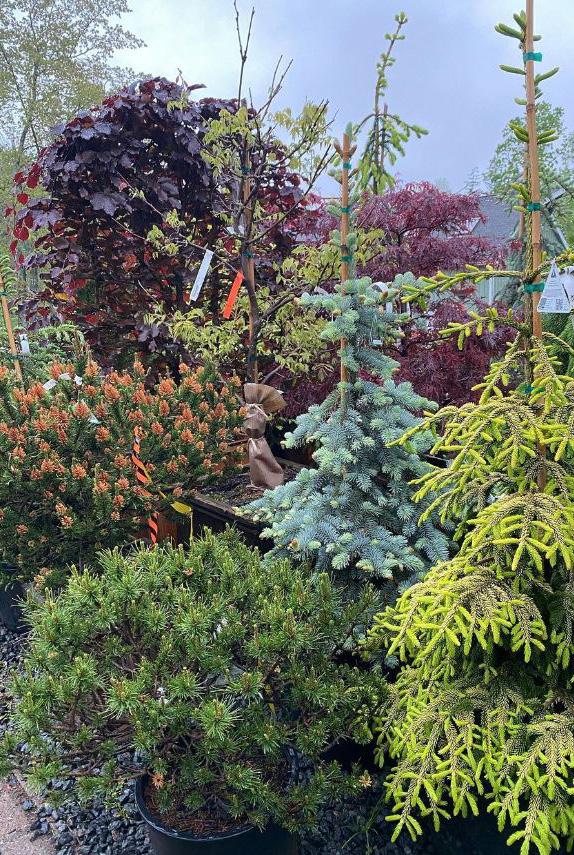
68 February 2024
The Plant Detectives Crew in 2022
CONTRACTOR FOCUS: AMERICAN BEAUTY LANDSCAPE DESIGN
American Beauty Landscape Design is a family run landscape contracting firm established in 1973. The company started as a lawn maintenance company, based in Paramus NJ, working out of a one car garage using only Sensation push lawn mowers and hand held trimmers.
The business grew steadily by offering owner supervised crews and by utilizing new techniques and state-of-the-art equipment.
The company was incorporated in 1985 and became known as American Beauty Landscape Design Inc. and is still based in Paramus, New Jersey in Bergen County and continues to offer owner supervised crews. Amazingly, the company still uses the original old home phone number from 1973!
American Beauty Landscape Design is a well diversified company involved in every aspect of landscape construction and operates as a single resource, offering its clients one contractor for every aspect of their project.
For more info visit www.americanbeautylandscape.com.

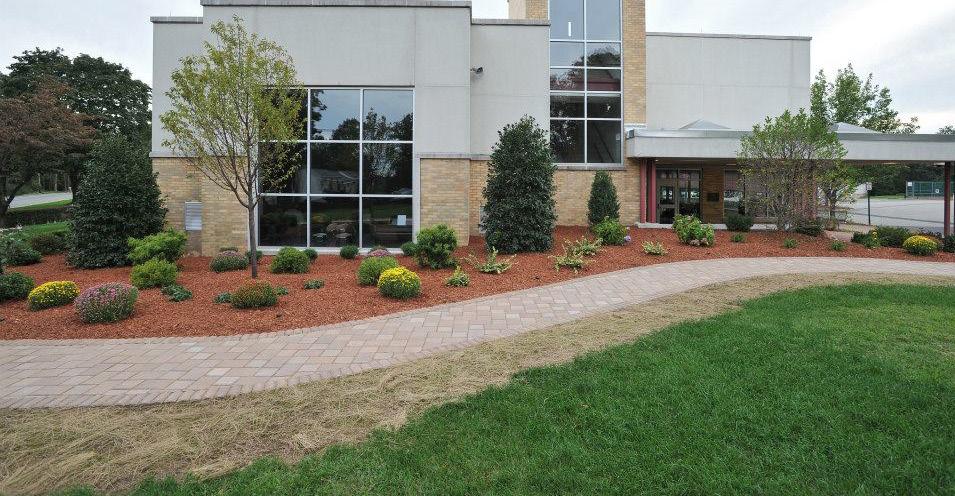

69 www.NJLCA.org

If
soil as part of your
you
likely aware of an impending rule or regulation called “dirty dirt” which is set to be released draft sometime in early 2024. A few years ago, the Legislature passed legislation, which the Governor signed, requiring any business entity involved in the sale, transport, and disposal of soil to be licensed under the A901 program. If you are not familiar with the A901 licensing program, it was enacted decades ago as a means to weed out organized crime in the solid waste business. The A901 process is a lengthy process involving the State Police, the Attorney General’s Office and the New Jersey Department of Environmental Protection. An applicant’s business and financial history and practices are evaluated to determine suitability for the license. New Jersey is looking to extend the
A901 licensing program to entities involved in the soil business. What does this mean to you and your business? Depending on the rule details and possible exemptions, you may need a A901 license to conduct business in New Jersey. So what should you do? It is vital to get involved once the rule is issued draft. Expressing your thoughts and concerns through your involvement in trade and business groups such as the New Jersey Landscape Contractors Association will be vital in assuring that a final rule is passed which accomplishes the stated goal without adversely impacting the industry. For more information, please contact Anthony Russo, president of the Commerce and Industry Association of New Jersey (CIANJ) at arusso@cianj.org or 908-415-4597 or Gail Woolcott at gwoolcott@njlca.org or 201-703-3600.
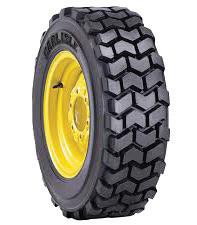
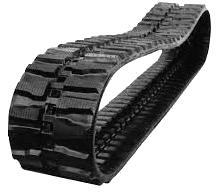
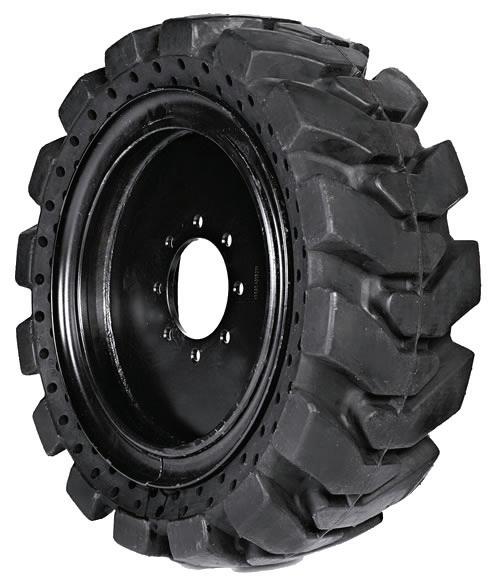
70 Advertiser Index Advance Tire Inc. www.advancetires.com........70 Al D. Landscape, Tree and Garden Supply Stop aldlandscapingandtree.com....72 All Service Contractors Equipment www.allservicerents.com.....26 Association Member Trust www.amt-nj.com..................28 Braen Supply www.braensupply.com........22 Cambridge Pavers www.cambridgepavers.com...10 Cliffside Body Corp www.cliffsidebody.com........16 Downes Forest Products 973-238-4430.........................24 Foley, Inc. www.foleyinc.com................12 Landscape Materials Inc. Landscapematerialsinc.com...56 Little Acre Farm littleacrefarm.com................35 Matera’s Nursery 201-943-8288 ..........................2 Middletown Trailer www.middletowntrailer.com...38 NJCSE www.njcse.com.....................50 Tech Terra techterraenvironmental.com...71
you move
business,
are

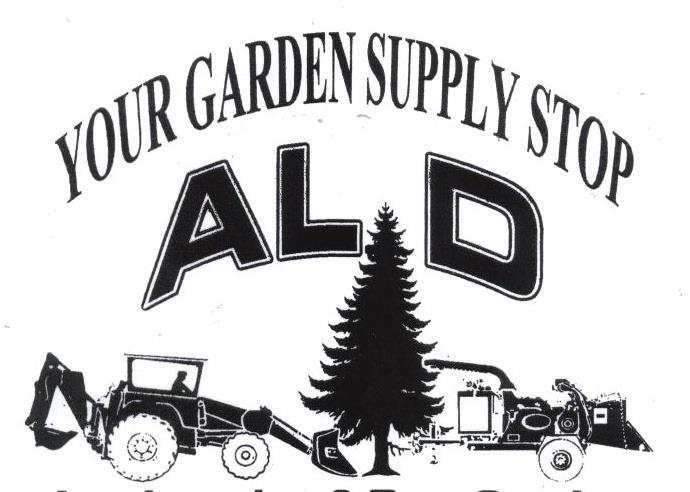

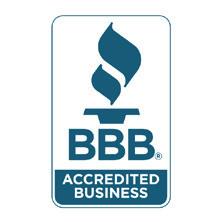

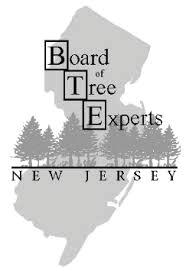


Contractors Welcome 174 Sedore Ave. Fairview, NJ 07022 Bulk & Bag Mulch and Topsoil Pickup or Delivery Grass Seed, Fertilizer, Hand Tools and Accessories Complete Tree Service • Trimming • Pruning • Trees • Shrubs • Fertilizing • Stump Removal • Land Clearing • Storm Damage Rubbish and Debris Removal • Seasoned Firewood Our family has been serving the community for over 100 years! No job is too small, we offer competitive rates Fully Insured • Year-Round Service • Free Estimates Albert DeMuro - CLT, LTCO #129 Brian DeMuro - CLT, LTCO #633 God Bless America! (201) 945-0069 Al D Landscaping Tree Service and Garden Supply Stop www.aldlandscapingandtreeservice.com facebook.com/aldlandscapingandtreeservice Registered with the NJ Department of Consumer Affairs #13VH00121800 and the New Jersey Board of Tree Experts #NJTC768014












 Richard Goldstein, President
Richard Goldstein, President


 Gail Woolcott, Executive Director Editor of The New Jersey Landscape Contractor
Gail Woolcott, Executive Director Editor of The New Jersey Landscape Contractor




















































 by Greg Carpenter, CLT, American Beauty Landscape
by Greg Carpenter, CLT, American Beauty Landscape








 by Steven Cesare, PhD, The Harvest Group
by Steven Cesare, PhD, The Harvest Group
































 Euonymus ‘Green Spire’ Hedge
Euonymus ‘Green Spire’ Hedge





 Viburnum x burkwoodii ‘Conoy’
Viburnum obovatum ‘Reifler’s Dwarf’
Viburnum x burkwoodii ‘Conoy’
Viburnum obovatum ‘Reifler’s Dwarf’

 by Anna McPeek, Seasons Matter
by Anna McPeek, Seasons Matter






































 by Joel Flagler, Rutgers Cooperative Extension
by Joel Flagler, Rutgers Cooperative Extension





















